Shows
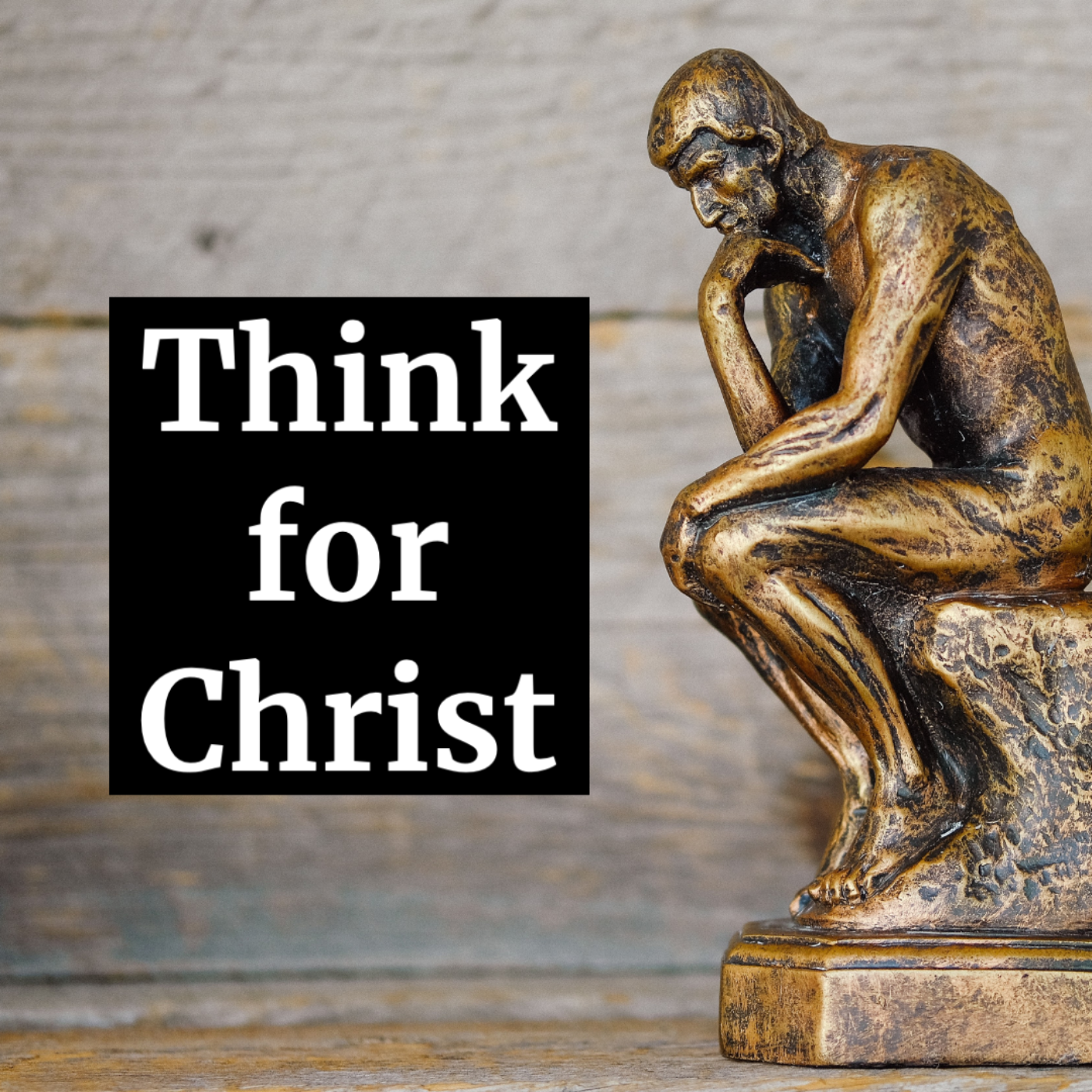 Think for ChristCan Machines Really Think? The Basic Argument Against Machine Intelligence.In this video, Anthony Alberino presents a basic argument against the idea that machines—no matter how advanced—can actually think or possess understanding. Drawing from philosopher Edward Feser's 2024 book Immortal Souls: A Treatise on Human Nature, Alberino examines why understanding the nature of a computer is the key to seeing why Artificial Intelligence can only ever simulate or mimic human intelligence.2025-07-2815 min
Think for ChristCan Machines Really Think? The Basic Argument Against Machine Intelligence.In this video, Anthony Alberino presents a basic argument against the idea that machines—no matter how advanced—can actually think or possess understanding. Drawing from philosopher Edward Feser's 2024 book Immortal Souls: A Treatise on Human Nature, Alberino examines why understanding the nature of a computer is the key to seeing why Artificial Intelligence can only ever simulate or mimic human intelligence.2025-07-2815 min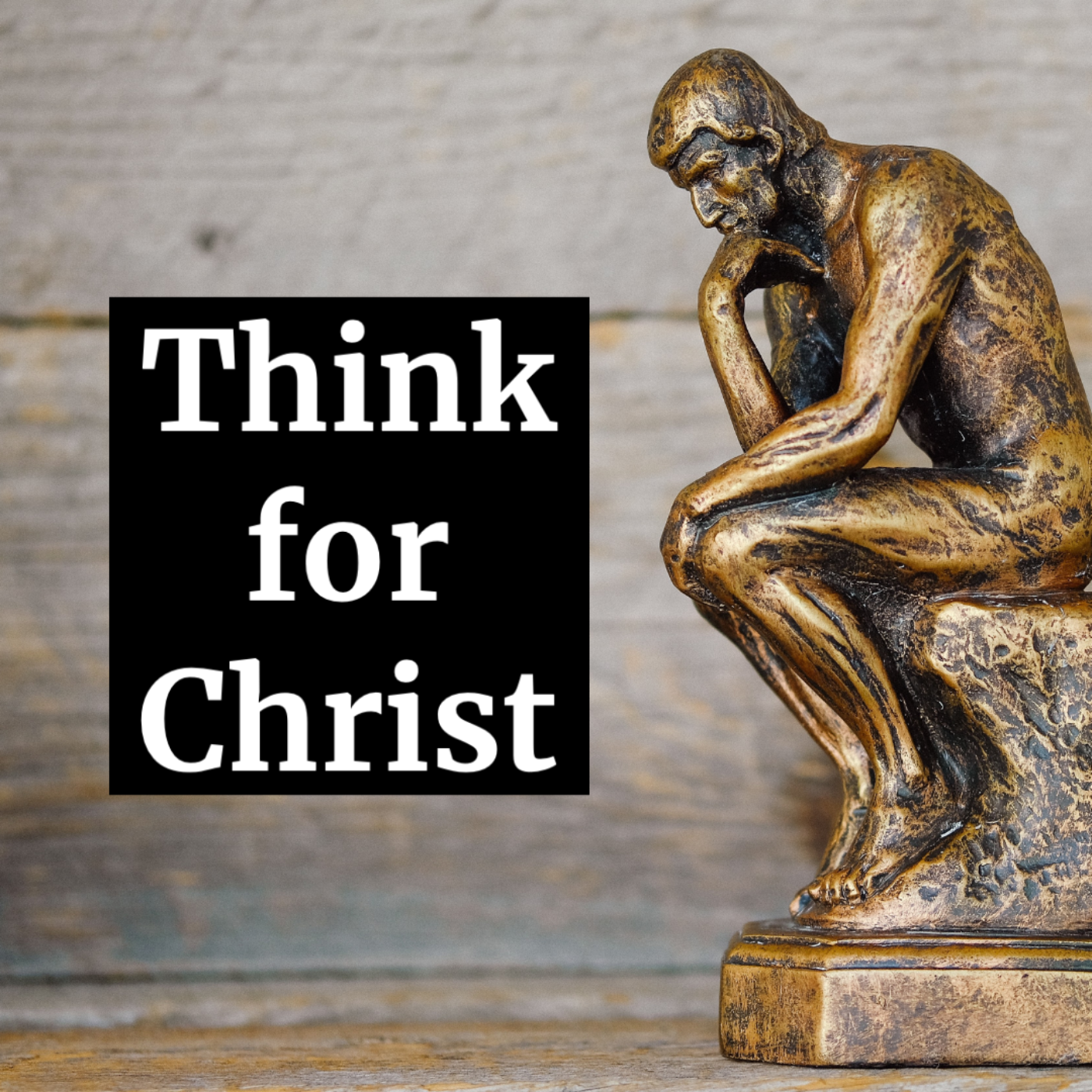 Think for ChristWas the Death of Christ a Ransom Paid to Satan?In recent years, an old and largely discarded view of Christ’s atonement has been quietly resurfacing on the internet. Known historically as the Ransom Theory (or the Ransom from Satan Theory) this idea suggests that Jesus died as a payment to Satan in order to free humanity from his grasp. According to this view, as a result of Adam's sin, Satan was given legal and rightful authority over the lost souls of humans. Since Satan had rightful claim, God could not simply exercise his power over him and instead offered the soul of Christ in exchange for the th...2025-07-1518 min
Think for ChristWas the Death of Christ a Ransom Paid to Satan?In recent years, an old and largely discarded view of Christ’s atonement has been quietly resurfacing on the internet. Known historically as the Ransom Theory (or the Ransom from Satan Theory) this idea suggests that Jesus died as a payment to Satan in order to free humanity from his grasp. According to this view, as a result of Adam's sin, Satan was given legal and rightful authority over the lost souls of humans. Since Satan had rightful claim, God could not simply exercise his power over him and instead offered the soul of Christ in exchange for the th...2025-07-1518 min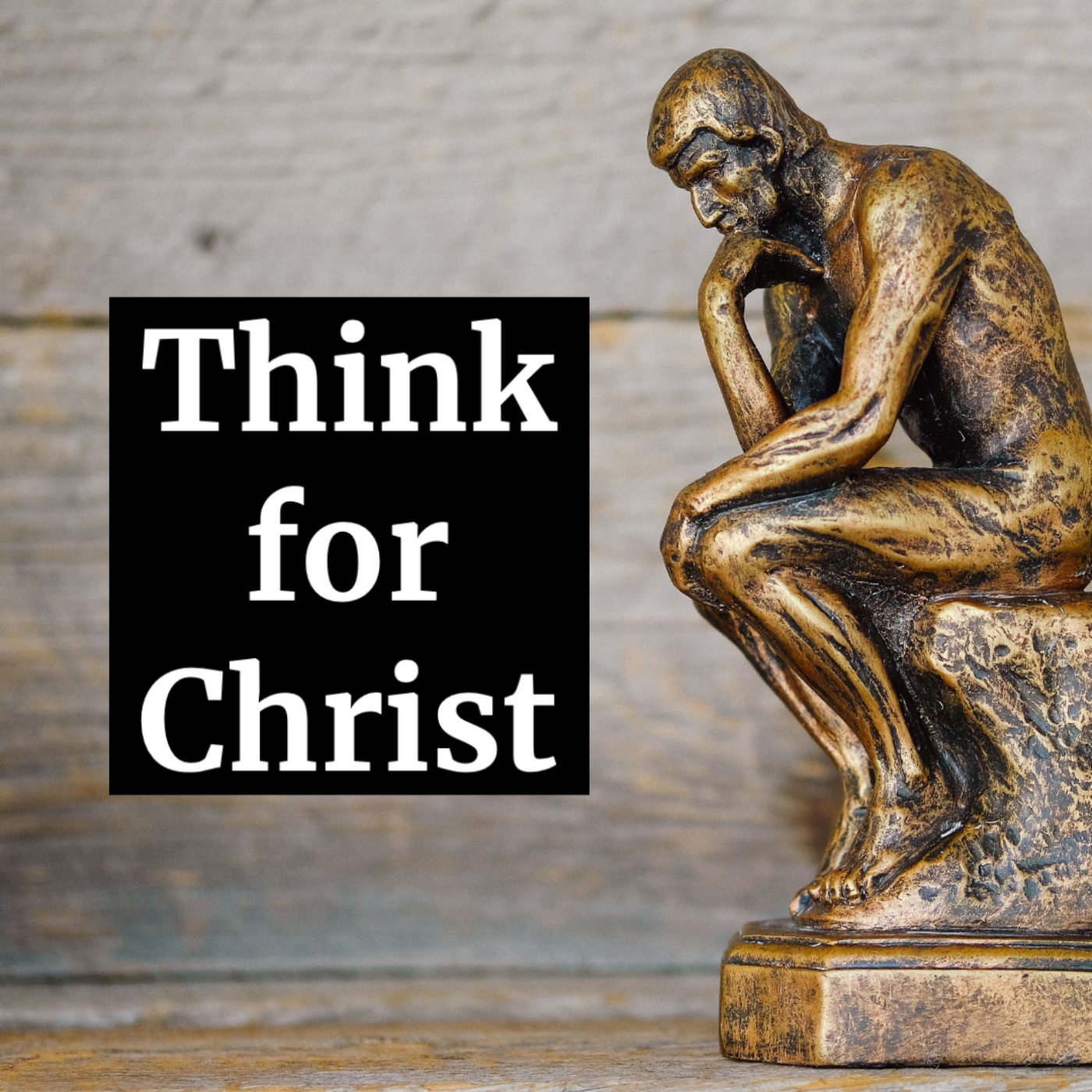 Think for ChristDivine Simplicity, Monotheism, and the Trinity with Dr. James DolezalIn this compelling conversation, James Dolezal returns to Think for Christ with Anthony Alberino to explore the classical doctrine of the Trinity. For centuries, divine simplicity was considered essential to maintaining a truly monotheistic understanding of the Christian God—Father, Son, and Holy Spirit. But in modern Protestant theology, the neglect of this doctrine has led to confusion and, in many cases, a drift toward tri-theism. Dr. Dolezal explains why recovering the classical view—especially as articulated by Thomas Aquinas—is critical for upholding both the unity of God and the real distinction of the Persons within the Trinity. Togeth...2025-07-0751 min
Think for ChristDivine Simplicity, Monotheism, and the Trinity with Dr. James DolezalIn this compelling conversation, James Dolezal returns to Think for Christ with Anthony Alberino to explore the classical doctrine of the Trinity. For centuries, divine simplicity was considered essential to maintaining a truly monotheistic understanding of the Christian God—Father, Son, and Holy Spirit. But in modern Protestant theology, the neglect of this doctrine has led to confusion and, in many cases, a drift toward tri-theism. Dr. Dolezal explains why recovering the classical view—especially as articulated by Thomas Aquinas—is critical for upholding both the unity of God and the real distinction of the Persons within the Trinity. Togeth...2025-07-0751 min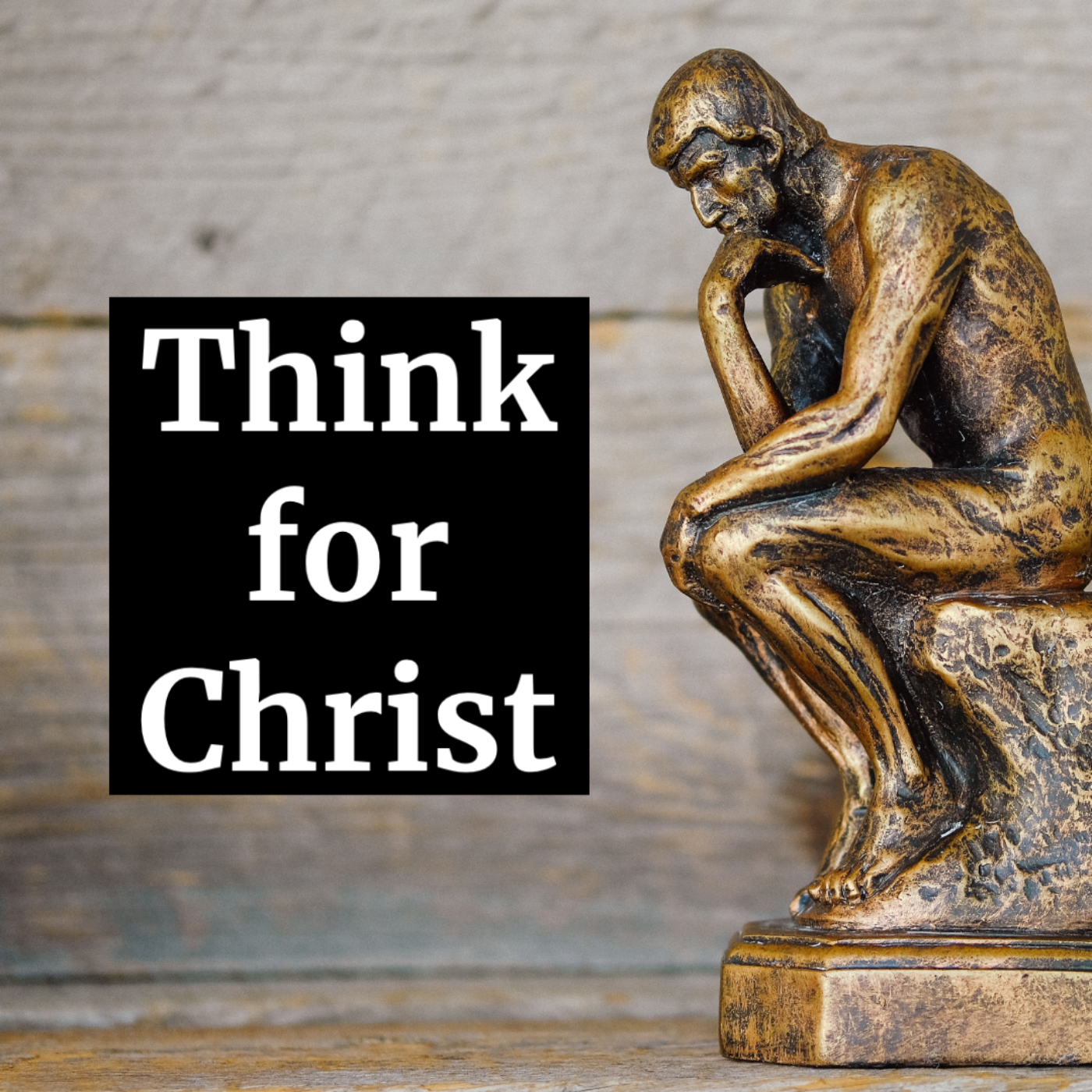 Think for ChristOn Cosmological Nihilism and the Quest to Regain Our Metaphysical Sanity with Dr. Brian KempleIs the universe bereft of meaning, goodness, and purpose? Has modern science revealed to us our ultimate cosmic insignificance? According to the intellectual vision of cosmological nihilism, the answer to these questions is yes. What is the nature of this view? What motivates it? And how has it come to form the background image of Western society? Philosopher Dr. Brian Kemple joins Anthony Alberino to talk about the bleak specter of cosmological nihilism and the need for a true philosophical turn to regain our metaphysical sanity and to reorient our intellectual vision so that we can once again behold...2025-06-301h 03
Think for ChristOn Cosmological Nihilism and the Quest to Regain Our Metaphysical Sanity with Dr. Brian KempleIs the universe bereft of meaning, goodness, and purpose? Has modern science revealed to us our ultimate cosmic insignificance? According to the intellectual vision of cosmological nihilism, the answer to these questions is yes. What is the nature of this view? What motivates it? And how has it come to form the background image of Western society? Philosopher Dr. Brian Kemple joins Anthony Alberino to talk about the bleak specter of cosmological nihilism and the need for a true philosophical turn to regain our metaphysical sanity and to reorient our intellectual vision so that we can once again behold...2025-06-301h 03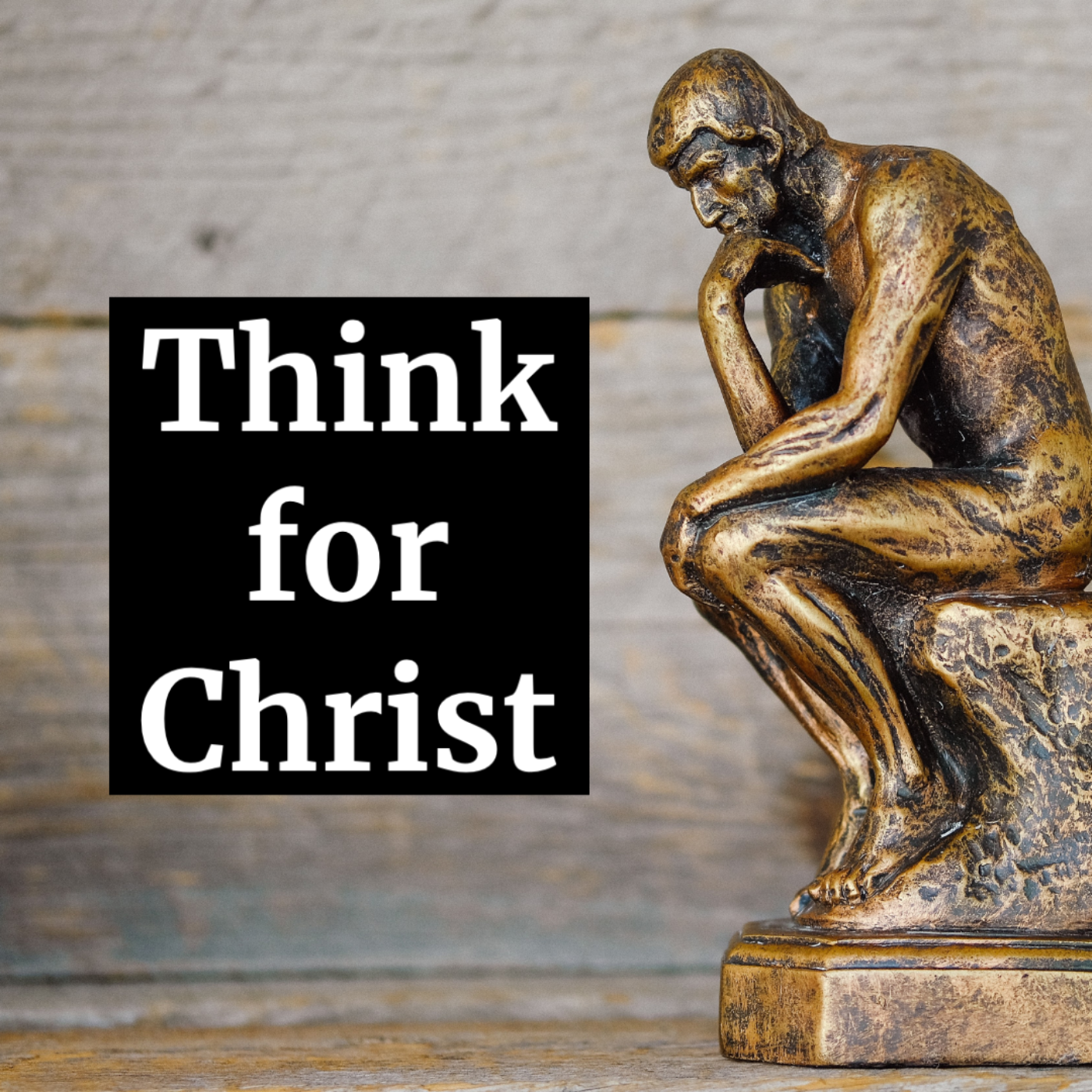 Think for ChristDoes God Have Emotions? | Dr. James Dolezal on Divine ImpassibilityWhat does it mean to say that God is without passions? Why does it matter? In this thought-provoking episode of Think for Christ, Dr. James Dolezal joins Anthony Alberino to explore the vital doctrine of divine impassibility. Together, they dive deep into questions like: Does God feel emotions the way we do? Can He truly understand human suffering if He doesn’t experience it? Dr. Dolezal brings clear, biblical, and philosophical insight to these challenging topics. Don't miss this engaging conversation on why denying passions in God is essential to a proper understanding of His nature.2025-06-2348 min
Think for ChristDoes God Have Emotions? | Dr. James Dolezal on Divine ImpassibilityWhat does it mean to say that God is without passions? Why does it matter? In this thought-provoking episode of Think for Christ, Dr. James Dolezal joins Anthony Alberino to explore the vital doctrine of divine impassibility. Together, they dive deep into questions like: Does God feel emotions the way we do? Can He truly understand human suffering if He doesn’t experience it? Dr. Dolezal brings clear, biblical, and philosophical insight to these challenging topics. Don't miss this engaging conversation on why denying passions in God is essential to a proper understanding of His nature.2025-06-2348 min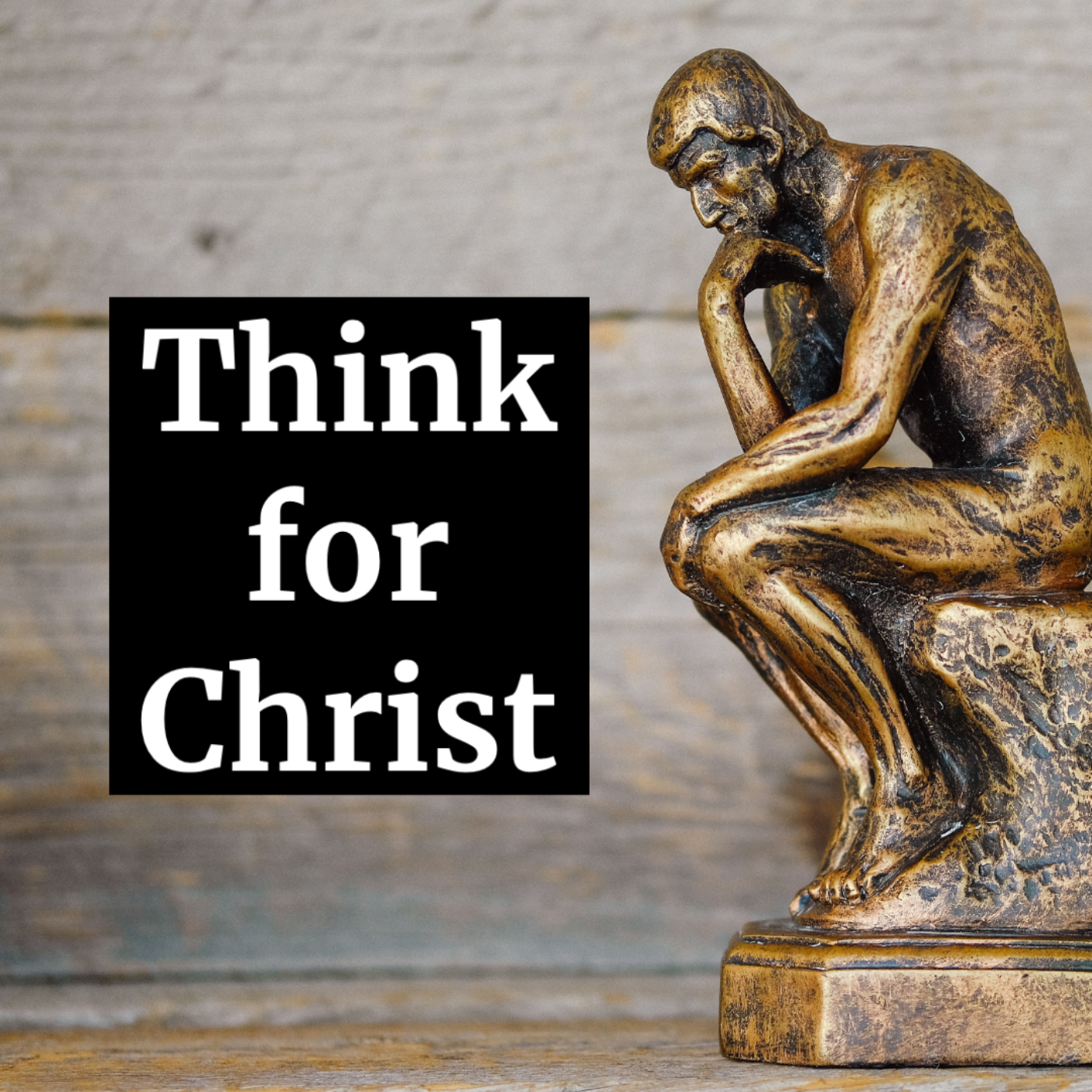 Think for ChristBret Weinstein Should Believe in GodIn an interview with Tucker Carlson, evolutionary biologist and podcaster Bret Weinstein explains why he does not believe in God. In the is episode, Anthony Alberino critically analyzes Weinstein's case for atheism. Alberino argues that given Weinstein's guiding principle for getting at the truth, he ought to embrace theism and not atheism.2025-06-1631 min
Think for ChristBret Weinstein Should Believe in GodIn an interview with Tucker Carlson, evolutionary biologist and podcaster Bret Weinstein explains why he does not believe in God. In the is episode, Anthony Alberino critically analyzes Weinstein's case for atheism. Alberino argues that given Weinstein's guiding principle for getting at the truth, he ought to embrace theism and not atheism.2025-06-1631 min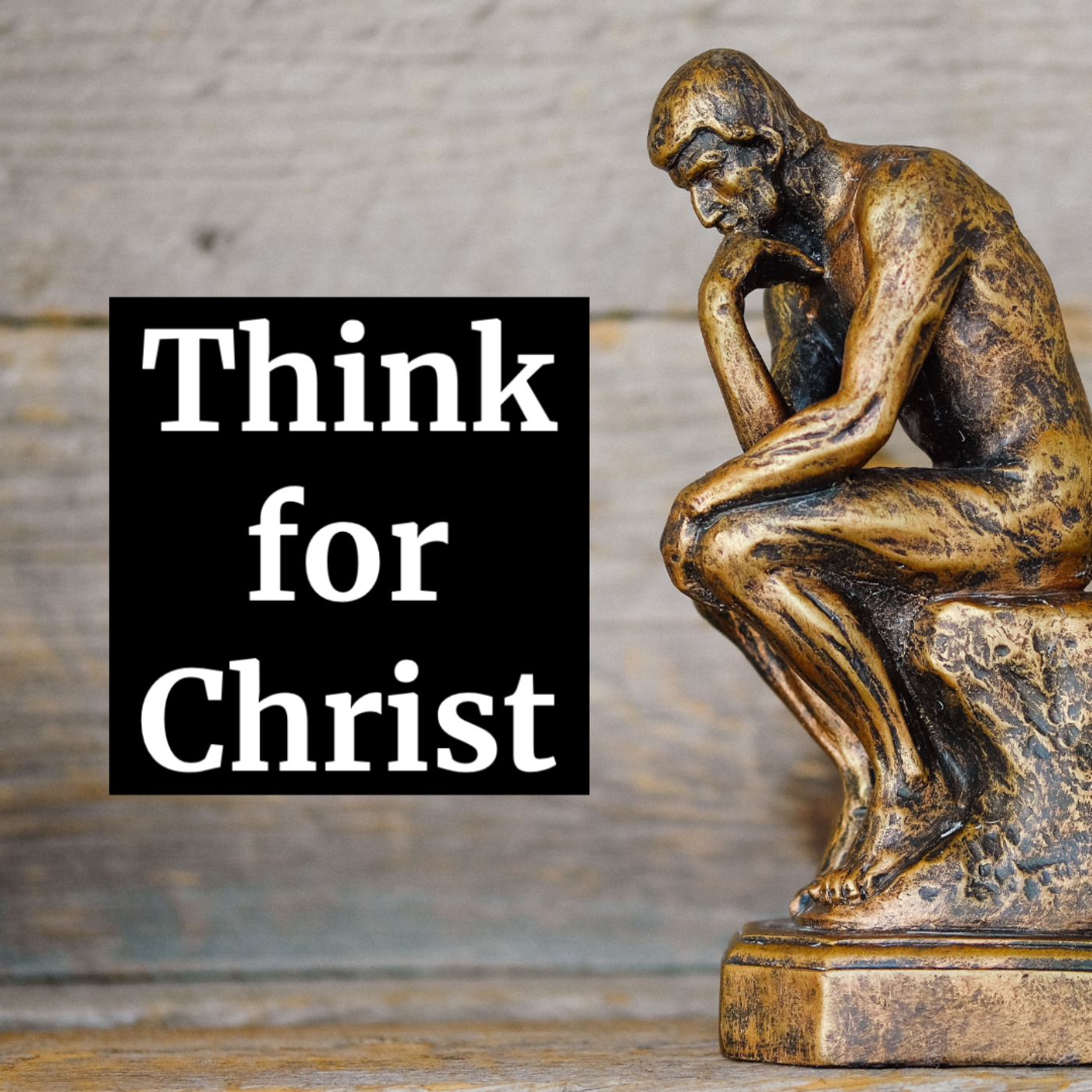 Think for ChristA New Euthyphro Dilemma for Complex Theists with Daniel Vecchio and Pat FlynnPhilosophers Dr. Daniel Vecchio and Pat Flynn are back to chat with Anthony Alberino about another paper that they've collaborated on titled "Euthyphro 2.0: The Metaphysical Dilemma of (God's) Essence and Existence." Daniel and Pat argue that theists who reject the classical notion of divine simplicity face an ontological priority problem that is structurally similar to the Euthyphro Dilemma. Moreover, they contend that to reject divine simplicity is to give up the principles needed for divine ultimacy and ontological grounding. Pat's Philosophy for the People YouTube channel: https://www.youtube.com/c/PhilosophyforthePeople Pat's Journal of Absolute Truth Substack...2025-06-0947 min
Think for ChristA New Euthyphro Dilemma for Complex Theists with Daniel Vecchio and Pat FlynnPhilosophers Dr. Daniel Vecchio and Pat Flynn are back to chat with Anthony Alberino about another paper that they've collaborated on titled "Euthyphro 2.0: The Metaphysical Dilemma of (God's) Essence and Existence." Daniel and Pat argue that theists who reject the classical notion of divine simplicity face an ontological priority problem that is structurally similar to the Euthyphro Dilemma. Moreover, they contend that to reject divine simplicity is to give up the principles needed for divine ultimacy and ontological grounding. Pat's Philosophy for the People YouTube channel: https://www.youtube.com/c/PhilosophyforthePeople Pat's Journal of Absolute Truth Substack...2025-06-0947 min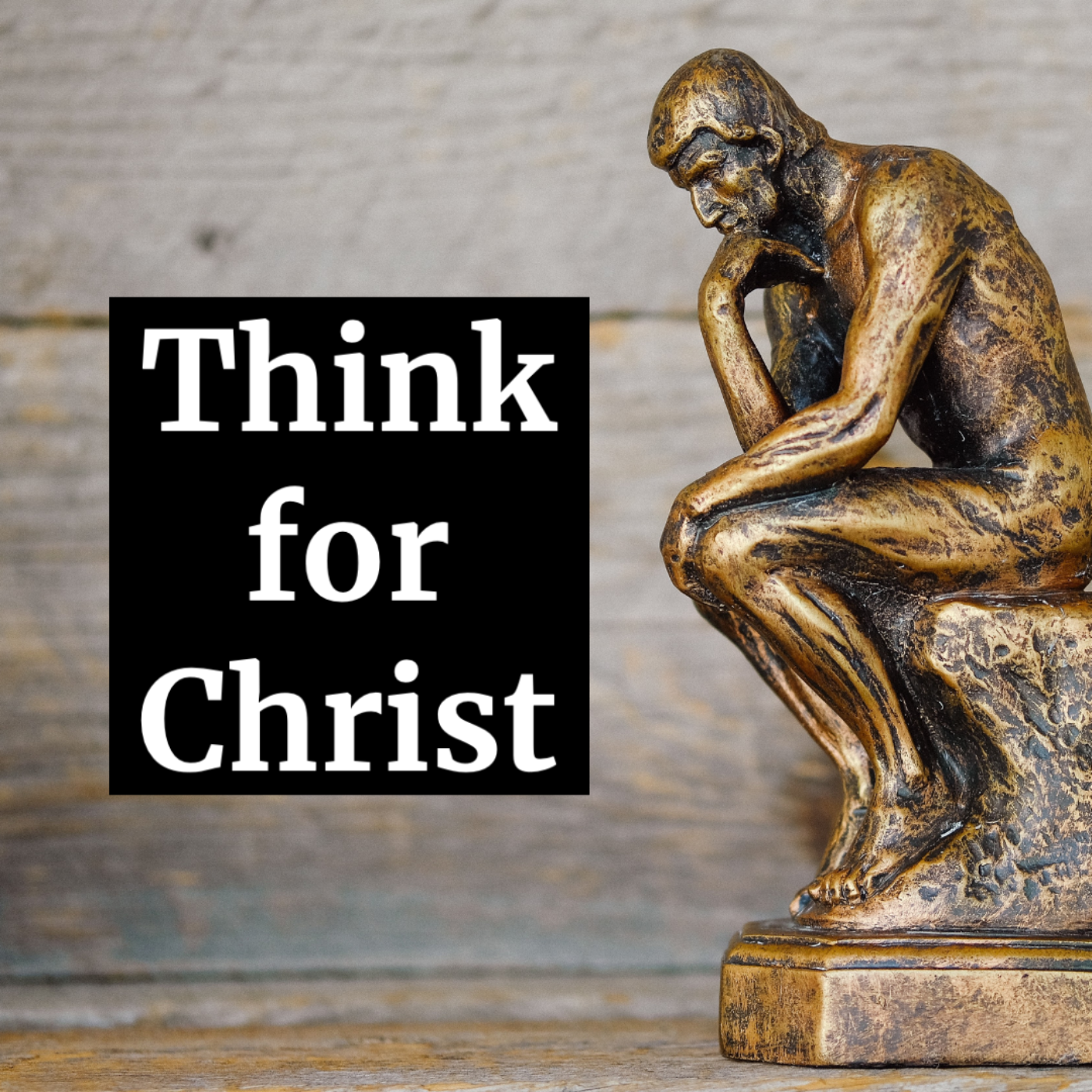 Think for ChristThe Logical Problem of Evil is Dead with Daniel Vecchio and Pat FlynnThe logical problem of evil is dead and cannot be resurrected as an argument against a philosophically robust understanding of God. Dr. Daniel Vecchio and Pat Flynn join Anthony Alberino to defend this claim and to discuss their paper, "There Can Be No Succesful Logical Argument from Evil." You can find a link to the paper here: https://www.cambridge.org/core/journals/new-blackfriars/article/abs/there-can-be-no-successful-logical-argument-from-evil/F15FE474998459B90C70849E58088385 Pat's Philosophy for the People YouTube channel: https://www.youtube.com/c/PhilosophyforthePeople Pat's Journal of Absolute Truth Substack: https://journalofabsolutetruth.substack.com Daniel's Vexing Questions...2025-06-0351 min
Think for ChristThe Logical Problem of Evil is Dead with Daniel Vecchio and Pat FlynnThe logical problem of evil is dead and cannot be resurrected as an argument against a philosophically robust understanding of God. Dr. Daniel Vecchio and Pat Flynn join Anthony Alberino to defend this claim and to discuss their paper, "There Can Be No Succesful Logical Argument from Evil." You can find a link to the paper here: https://www.cambridge.org/core/journals/new-blackfriars/article/abs/there-can-be-no-successful-logical-argument-from-evil/F15FE474998459B90C70849E58088385 Pat's Philosophy for the People YouTube channel: https://www.youtube.com/c/PhilosophyforthePeople Pat's Journal of Absolute Truth Substack: https://journalofabsolutetruth.substack.com Daniel's Vexing Questions...2025-06-0351 min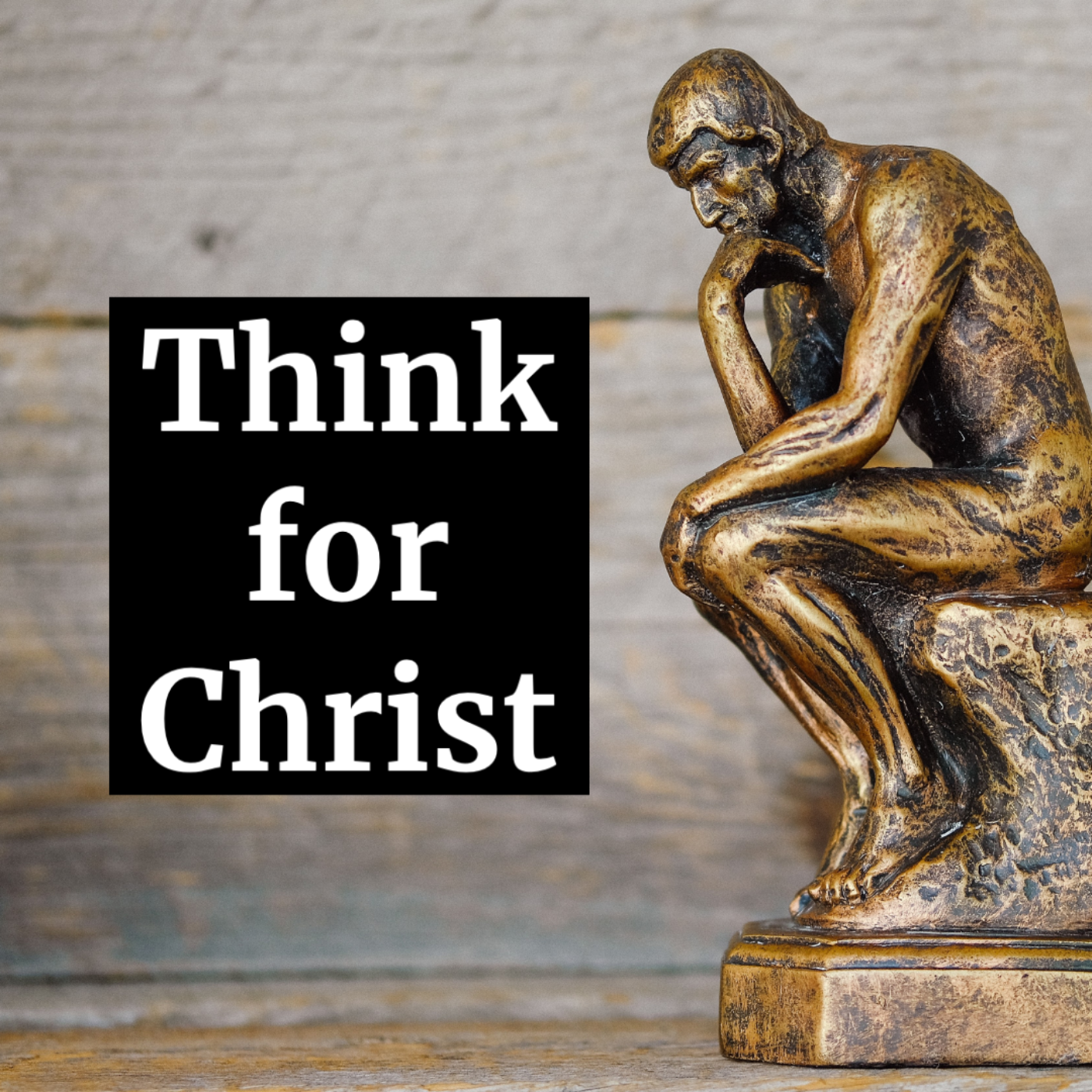 Think for ChristEvaluating the Presuppositional Transcendental ArgumentJoin philosophers Anthony Alberino and Andrew Payne as they dive deep into a thought-provoking critique of the presuppositional transcendental argument. In this engaging discussion, they explore the origins, nature, and limits of transcendental reasoning. They also seek to answer the question of whether a presuppositional transcendental argument for Christian Theism has ever actually been formulated in a philosophically rigorous way and in way that sufficiently distinguishes it from arguments in the classical method of apologetics. Find the article referenced in this video by Dr. James Anderson titled "If Knowledge Then God" here: https://www.proginosko.com/docs/If_Knowledge...2025-05-271h 09
Think for ChristEvaluating the Presuppositional Transcendental ArgumentJoin philosophers Anthony Alberino and Andrew Payne as they dive deep into a thought-provoking critique of the presuppositional transcendental argument. In this engaging discussion, they explore the origins, nature, and limits of transcendental reasoning. They also seek to answer the question of whether a presuppositional transcendental argument for Christian Theism has ever actually been formulated in a philosophically rigorous way and in way that sufficiently distinguishes it from arguments in the classical method of apologetics. Find the article referenced in this video by Dr. James Anderson titled "If Knowledge Then God" here: https://www.proginosko.com/docs/If_Knowledge...2025-05-271h 09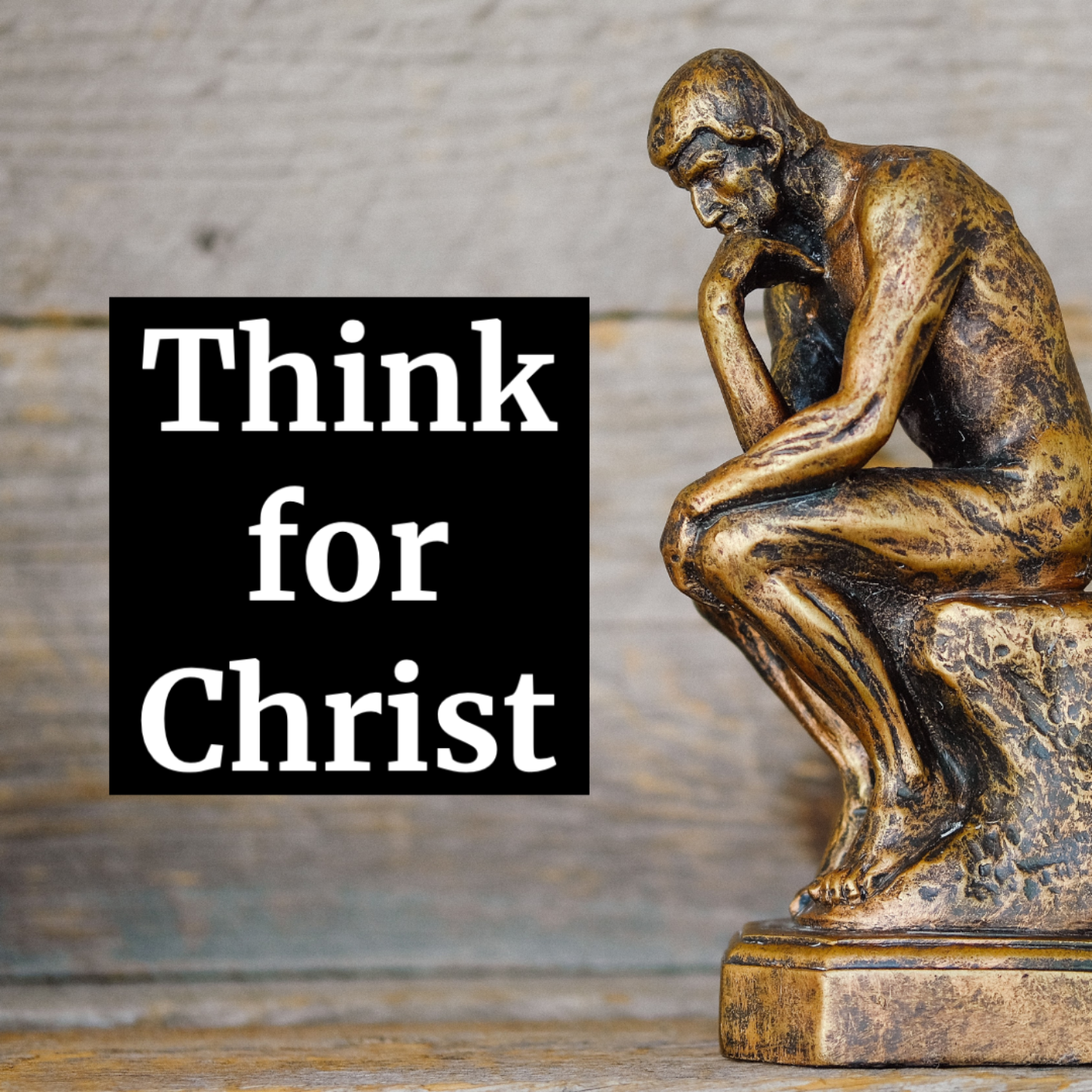 Think for ChristA Critique of Presuppositional Apologetics with Dr. Richard HoweJoin philosophers Richard Howe, Anthony Alberino, and Andrew Payne as they examine the foundations and challenges of presuppositional apologetics. While acknowledging its influence in contemporary Christian thought, the panel explores philosophical concerns, internal tensions, and practical limitations of the presuppositional method. The dialogue contrasts it with classical apologetics and probes whether presuppositionalism provides a coherent basis for defending the Christian faith.2025-05-191h 36
Think for ChristA Critique of Presuppositional Apologetics with Dr. Richard HoweJoin philosophers Richard Howe, Anthony Alberino, and Andrew Payne as they examine the foundations and challenges of presuppositional apologetics. While acknowledging its influence in contemporary Christian thought, the panel explores philosophical concerns, internal tensions, and practical limitations of the presuppositional method. The dialogue contrasts it with classical apologetics and probes whether presuppositionalism provides a coherent basis for defending the Christian faith.2025-05-191h 36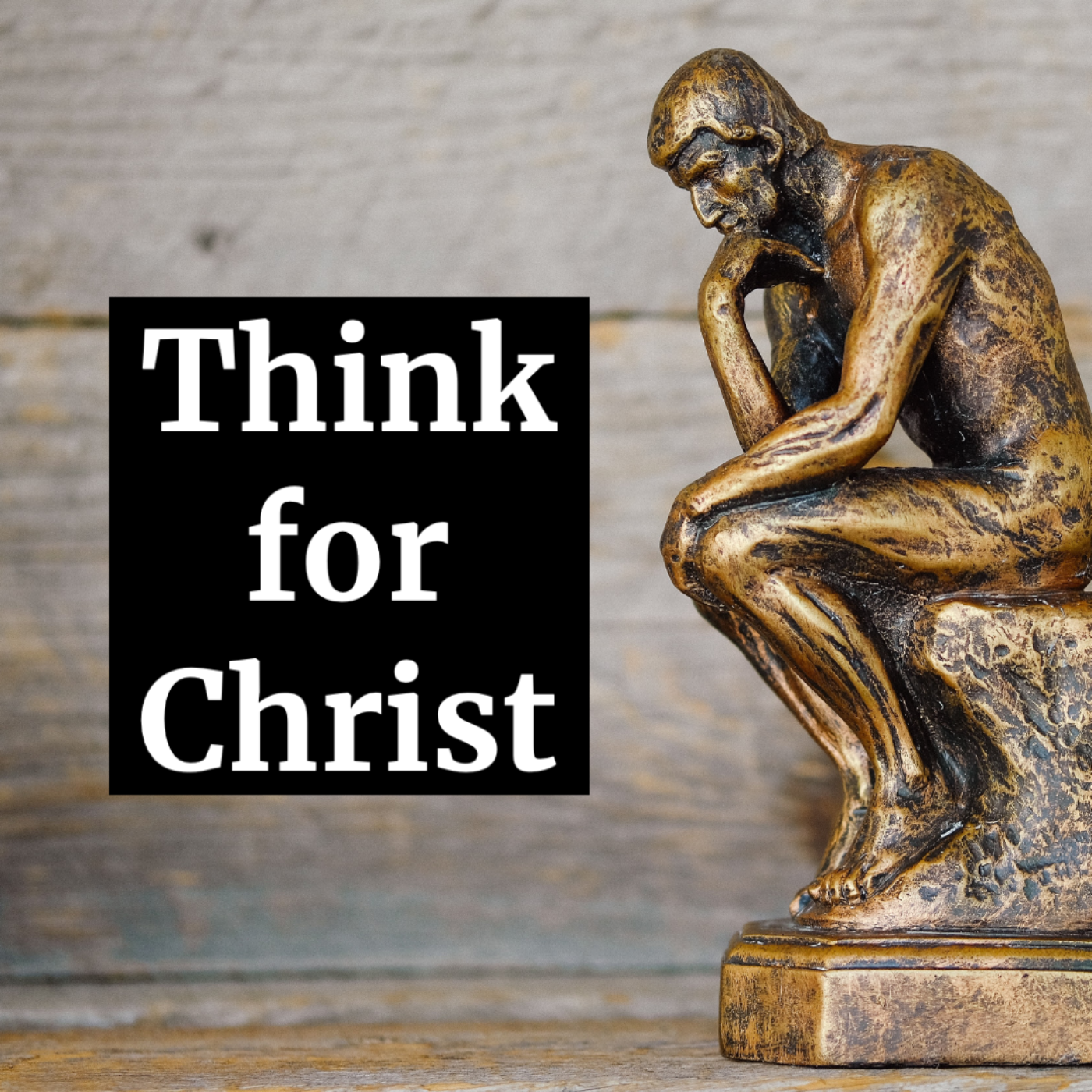 Think for ChristDivine Revelation, Natural Theology, and Faith and ReasonIn this episode Anthony Alberino explains the classical and traditional understanding of divine revelation as expressed in Scripture and in creation. The notions of supernatural theology and natural theology are explored as are the related ideas of faith and reason. The traditional view of philosophy as the handmaiden of theology and of the idea that grace perfects nature are also considered.2025-05-0520 min
Think for ChristDivine Revelation, Natural Theology, and Faith and ReasonIn this episode Anthony Alberino explains the classical and traditional understanding of divine revelation as expressed in Scripture and in creation. The notions of supernatural theology and natural theology are explored as are the related ideas of faith and reason. The traditional view of philosophy as the handmaiden of theology and of the idea that grace perfects nature are also considered.2025-05-0520 min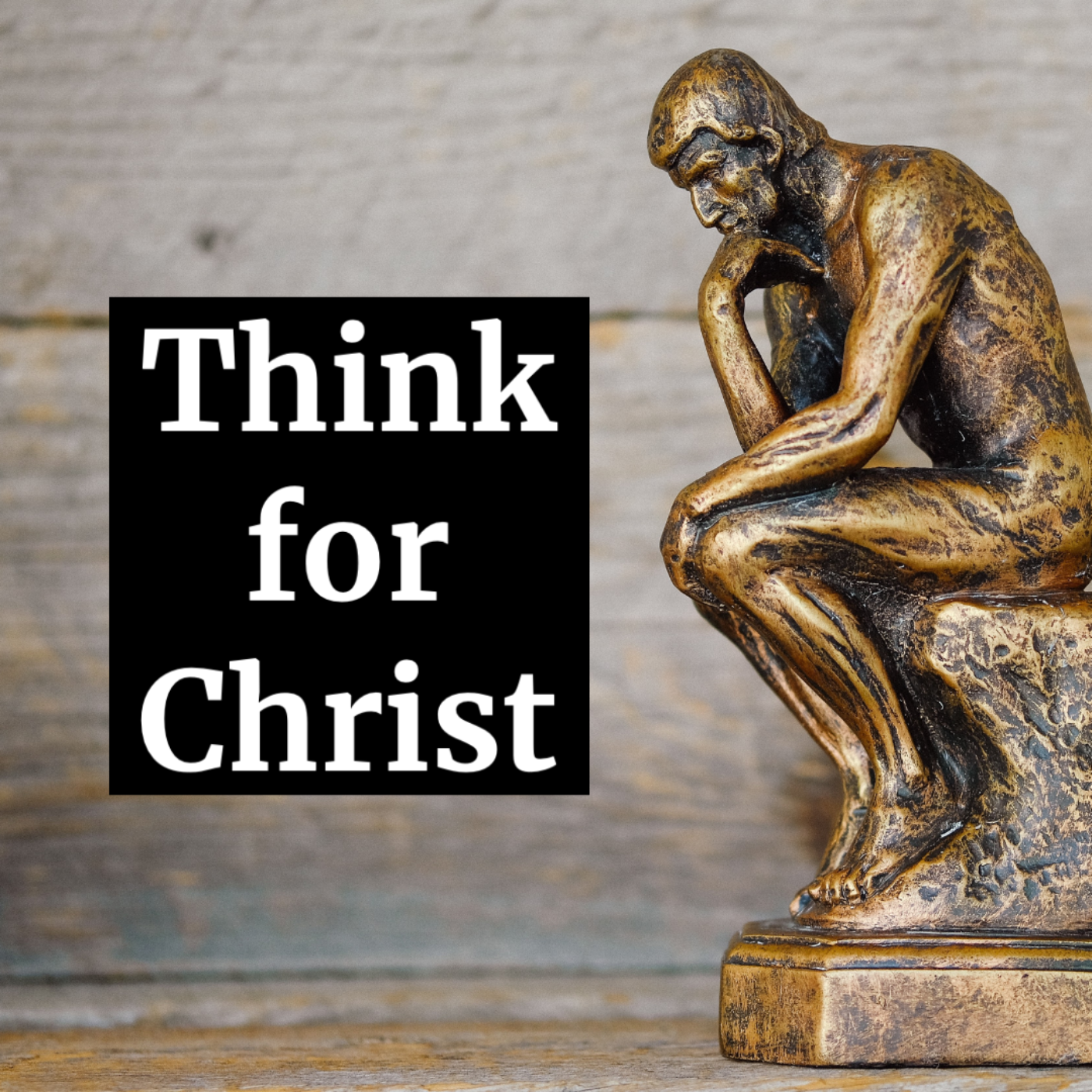 Think for ChristWhat is Classical Theism?What is classical theism? In its broadest characterization, classical theism is a theological and philosophical tradition committed to a certain way of understanding the nature of God and his relationship to the world. Classical theists are united in their commitment to a single, fundamental, controlling idea: divine ultimacy. For the classical theist, God is to be conceived of first and foremost as the ultimate reality in the order of being, and the ultimate explanation of things in the order of discovery.2025-04-1815 min
Think for ChristWhat is Classical Theism?What is classical theism? In its broadest characterization, classical theism is a theological and philosophical tradition committed to a certain way of understanding the nature of God and his relationship to the world. Classical theists are united in their commitment to a single, fundamental, controlling idea: divine ultimacy. For the classical theist, God is to be conceived of first and foremost as the ultimate reality in the order of being, and the ultimate explanation of things in the order of discovery.2025-04-1815 min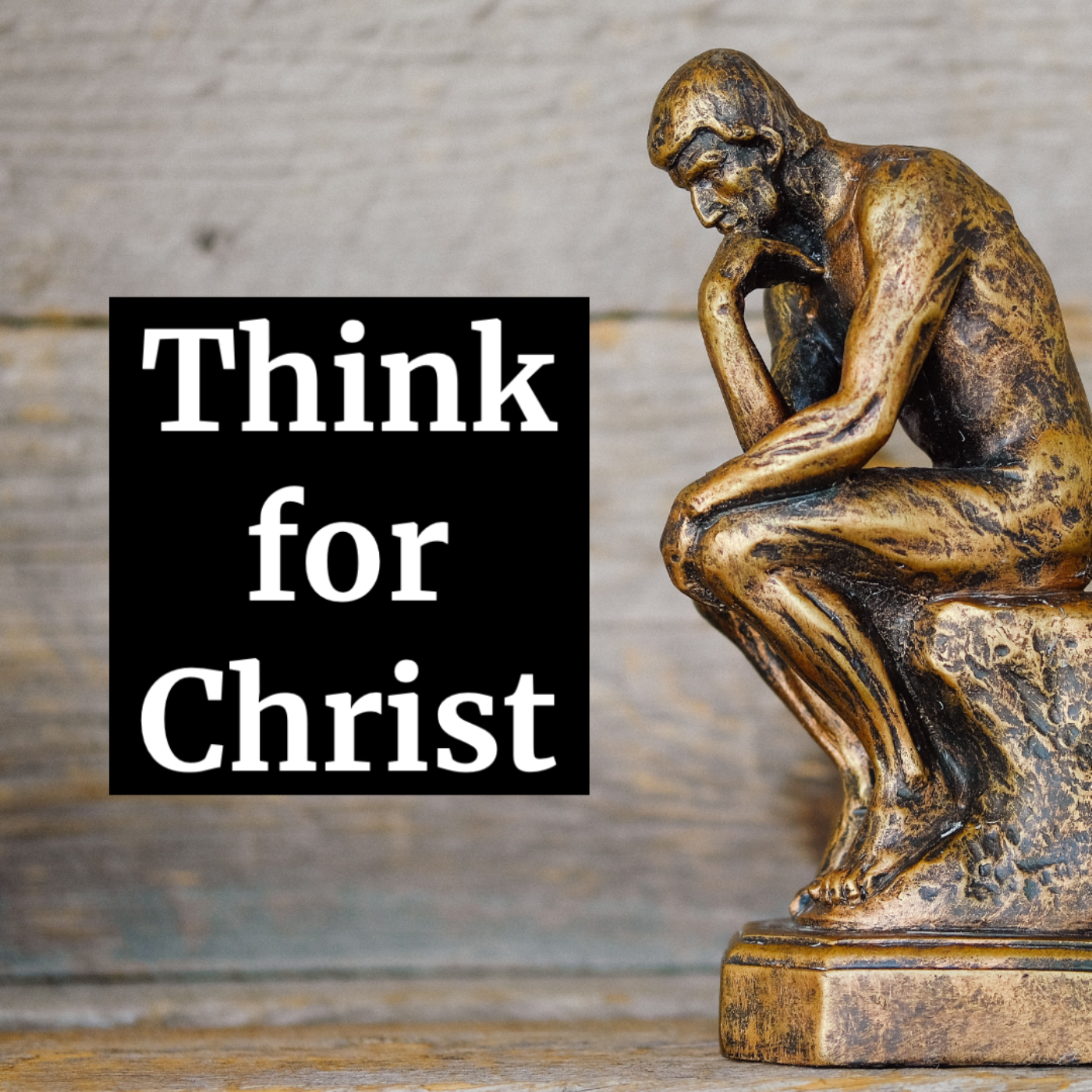 Think for ChristJordan Peterson on Jonah and the WhaleIn this concluding episode of the series, We Who Wrestle with Jordan Peterson, Anthony Alberino and Andrew Payne review the final chapter of We Who Wrestle with God: Perceptions of the Divine in which Jordan Peterson treats of the biblical story of Jonah. Anthony and Andrew then provide their final summary analysis of the book.2025-04-071h 10
Think for ChristJordan Peterson on Jonah and the WhaleIn this concluding episode of the series, We Who Wrestle with Jordan Peterson, Anthony Alberino and Andrew Payne review the final chapter of We Who Wrestle with God: Perceptions of the Divine in which Jordan Peterson treats of the biblical story of Jonah. Anthony and Andrew then provide their final summary analysis of the book.2025-04-071h 10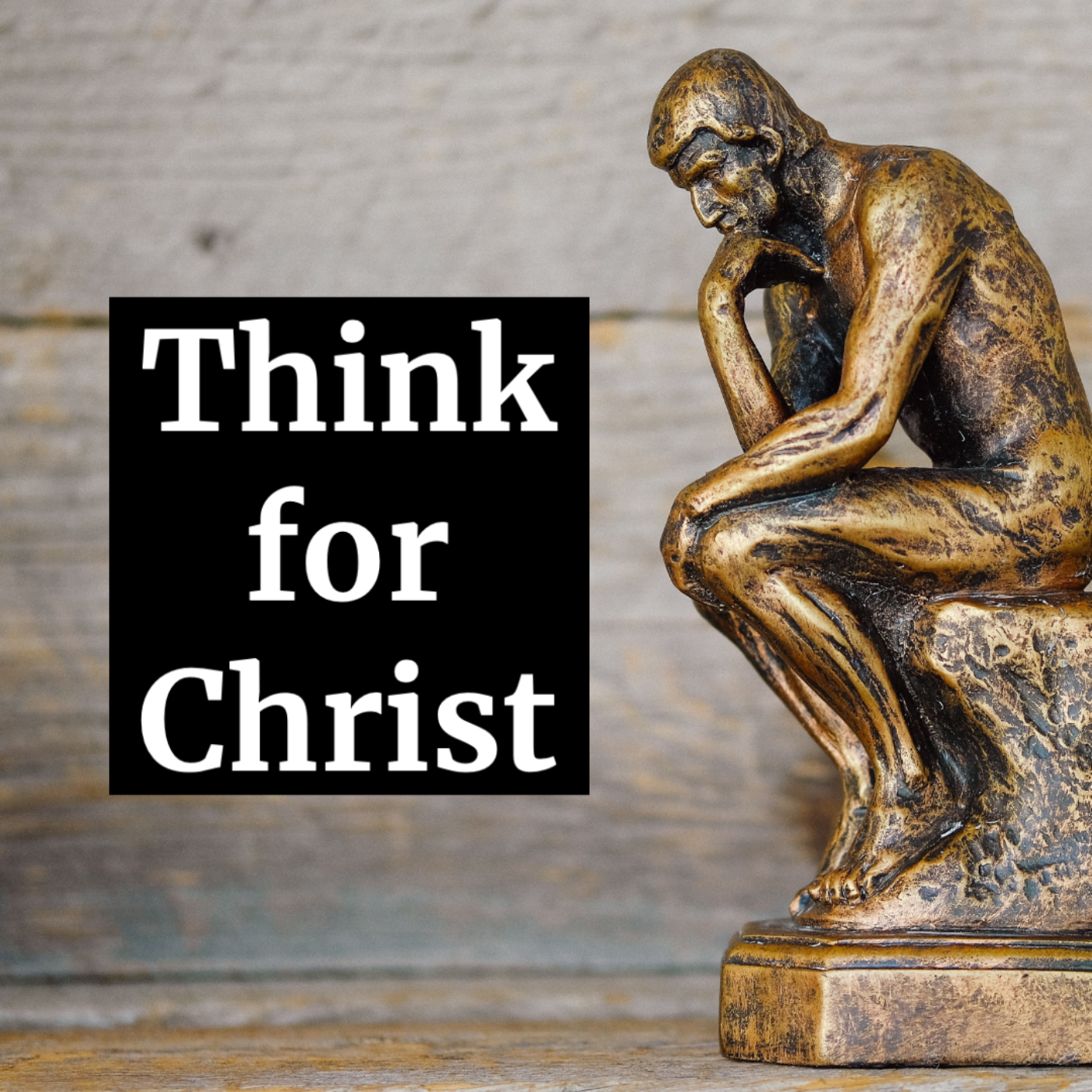 Think for ChristJordan Peterson on the Golden Calf and Wilderness WanderingThe critical review of Jordan Peterson's book, We Who Wrestle with God: Perceptions of Divine continues as Anthony and Andrew consider chapter 8 of the work in which Peterson treats of the golden calf incident and the subsequent 40 years of wilderness wandering by Moses, Aaron, and the Children of Israel. 2025-03-3140 min
Think for ChristJordan Peterson on the Golden Calf and Wilderness WanderingThe critical review of Jordan Peterson's book, We Who Wrestle with God: Perceptions of Divine continues as Anthony and Andrew consider chapter 8 of the work in which Peterson treats of the golden calf incident and the subsequent 40 years of wilderness wandering by Moses, Aaron, and the Children of Israel. 2025-03-3140 min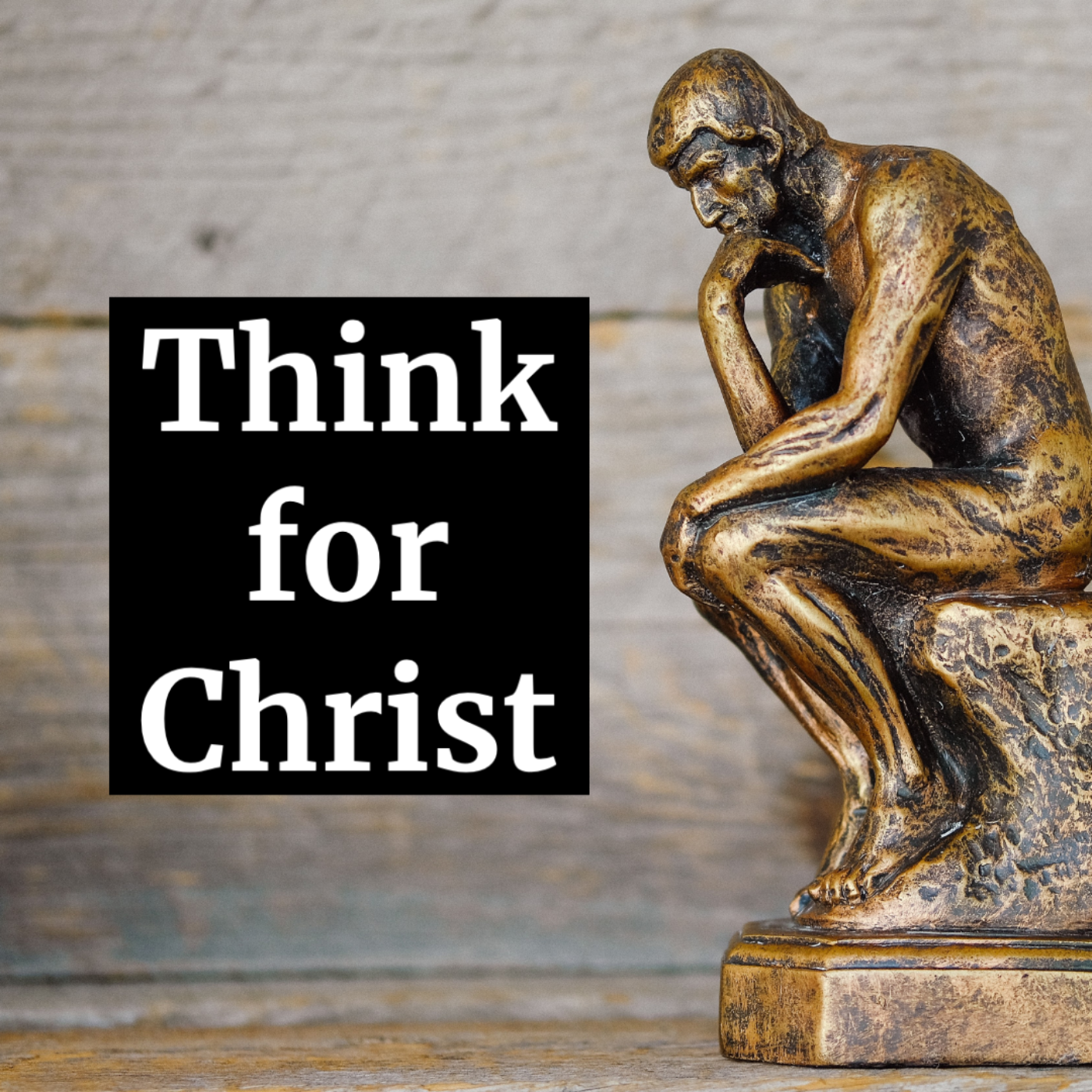 Think for ChristJordan Peterson on Moses, Pharaoh, and the ExodusAnthony and Andrew continue their critical analysis of Jordan Peterson's best selling book, We Who Wrestle with God: Perceptions of the Divine. In this episode, they review and analyze chapter seven of the book in which Peterson considers the biblical story of Moses and the Exodus.2025-03-2443 min
Think for ChristJordan Peterson on Moses, Pharaoh, and the ExodusAnthony and Andrew continue their critical analysis of Jordan Peterson's best selling book, We Who Wrestle with God: Perceptions of the Divine. In this episode, they review and analyze chapter seven of the book in which Peterson considers the biblical story of Moses and the Exodus.2025-03-2443 min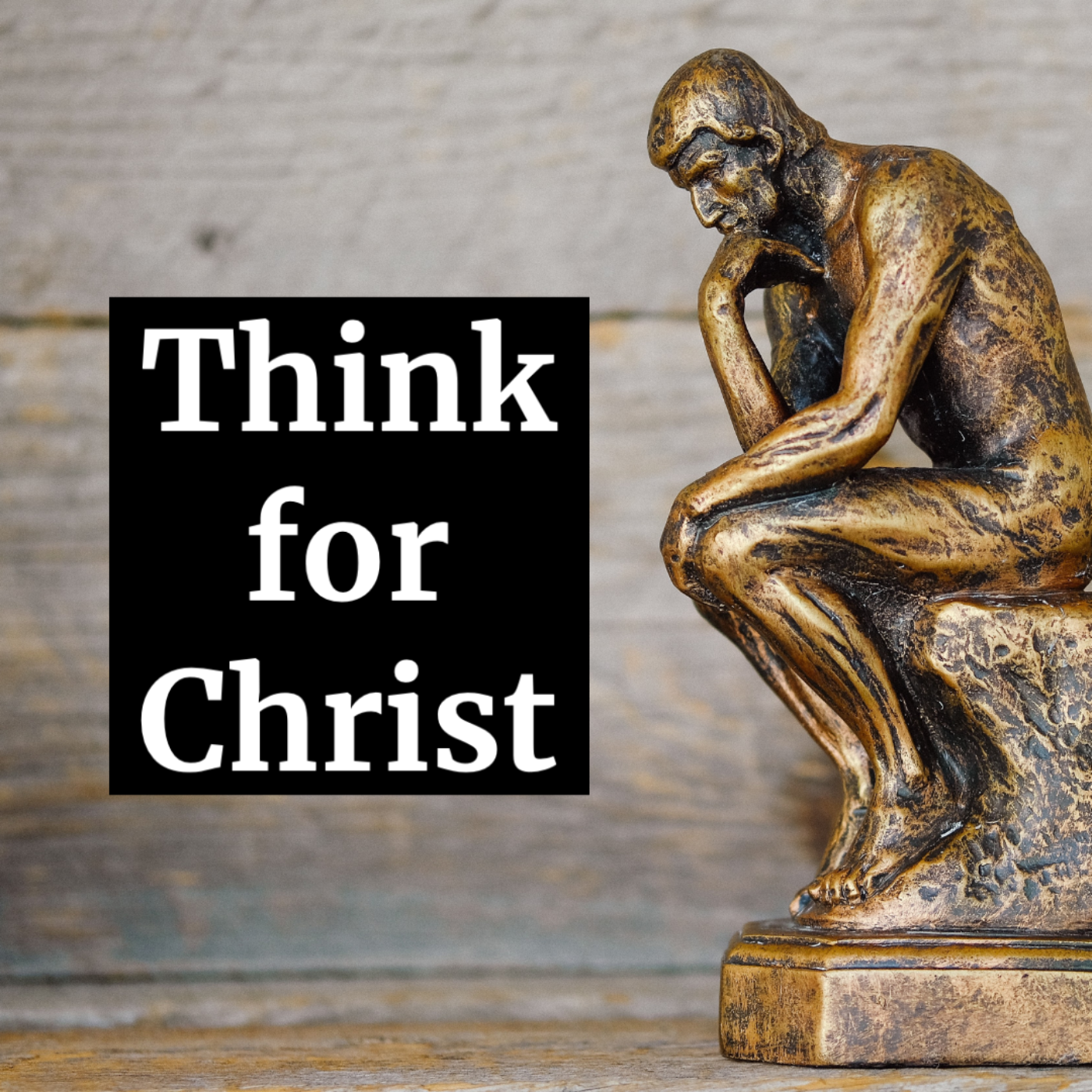 Think for ChristIs Christianity making a comeback in America and the Western world?In his book, The Surprising Rebirth of Belief in God, former UK broadcaster Justin Brierley offers a bold proposition: That the "withdrawing Sea of Faith is beginning to reach its farthest limit and that we may yet see the tide of faith come rushing back in again within our lifetimes.” Brierley argues that the first two decades of the 21st century represent the low tide of Christian belief in the West, a period that coincides with the rise and triumph of the New Atheism in popular culture. But recently things have begun to change. The New Atheism has suddenly be...2025-03-1719 min
Think for ChristIs Christianity making a comeback in America and the Western world?In his book, The Surprising Rebirth of Belief in God, former UK broadcaster Justin Brierley offers a bold proposition: That the "withdrawing Sea of Faith is beginning to reach its farthest limit and that we may yet see the tide of faith come rushing back in again within our lifetimes.” Brierley argues that the first two decades of the 21st century represent the low tide of Christian belief in the West, a period that coincides with the rise and triumph of the New Atheism in popular culture. But recently things have begun to change. The New Atheism has suddenly be...2025-03-1719 min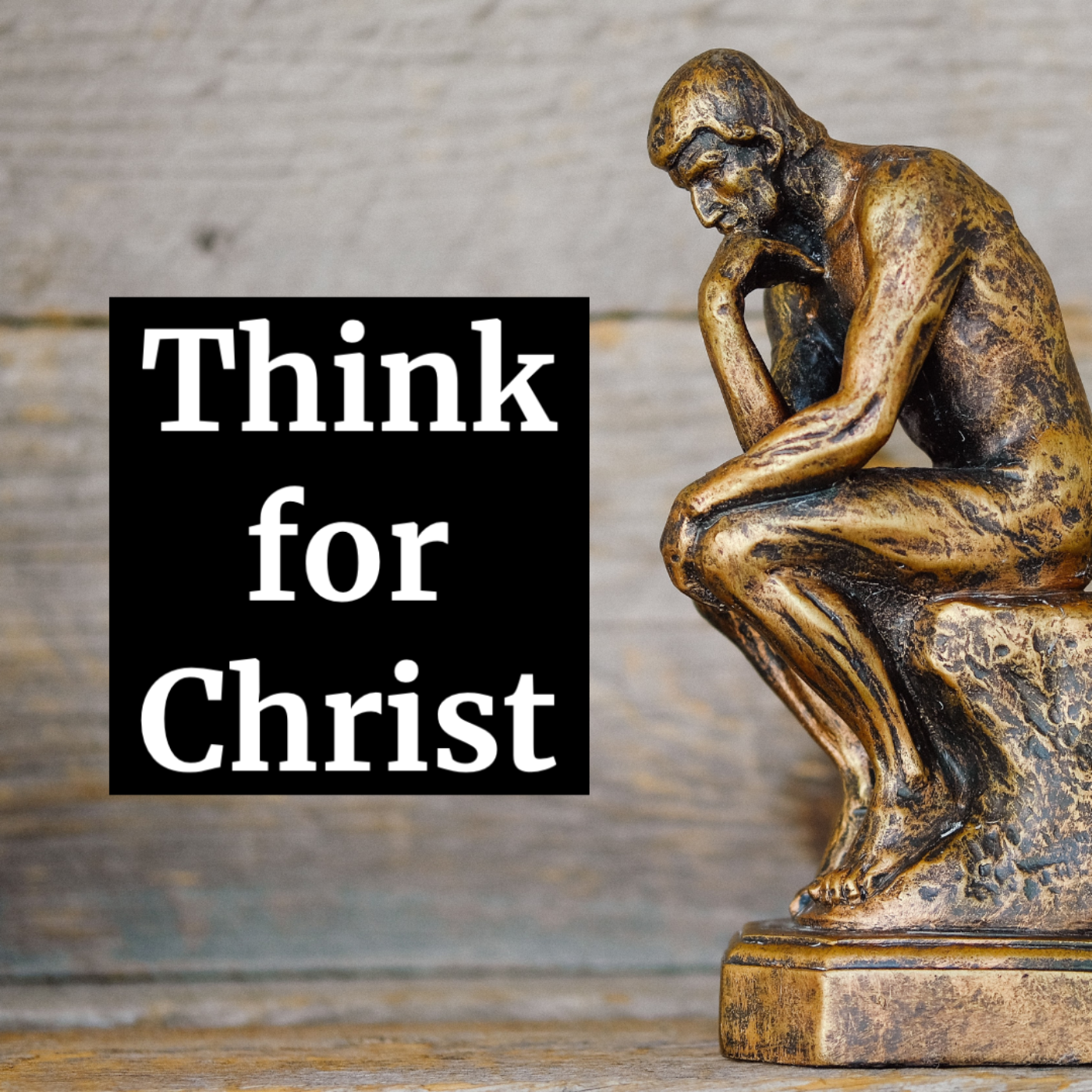 Think for ChristJordan Peterson on Abraham and the spirited call to adventureIn Chapter Six of We Who Wrestle with God: Perceptions of the Divine Jordan Peterson takes up the story of Abraham and Jacob to draw from them characteristics of the divine as well as deep universal lessons for life. Peterson sees in Abraham the divine call to live a life of adventure, a life of risk, a life of courage, a life of sacrifice, a life of upward striving. The story of Jacob is understood by Peterson as one of transformative identity that comes from the unavoidable struggle with the divine that each of us must engage in. This...2025-03-1047 min
Think for ChristJordan Peterson on Abraham and the spirited call to adventureIn Chapter Six of We Who Wrestle with God: Perceptions of the Divine Jordan Peterson takes up the story of Abraham and Jacob to draw from them characteristics of the divine as well as deep universal lessons for life. Peterson sees in Abraham the divine call to live a life of adventure, a life of risk, a life of courage, a life of sacrifice, a life of upward striving. The story of Jacob is understood by Peterson as one of transformative identity that comes from the unavoidable struggle with the divine that each of us must engage in. This...2025-03-1047 min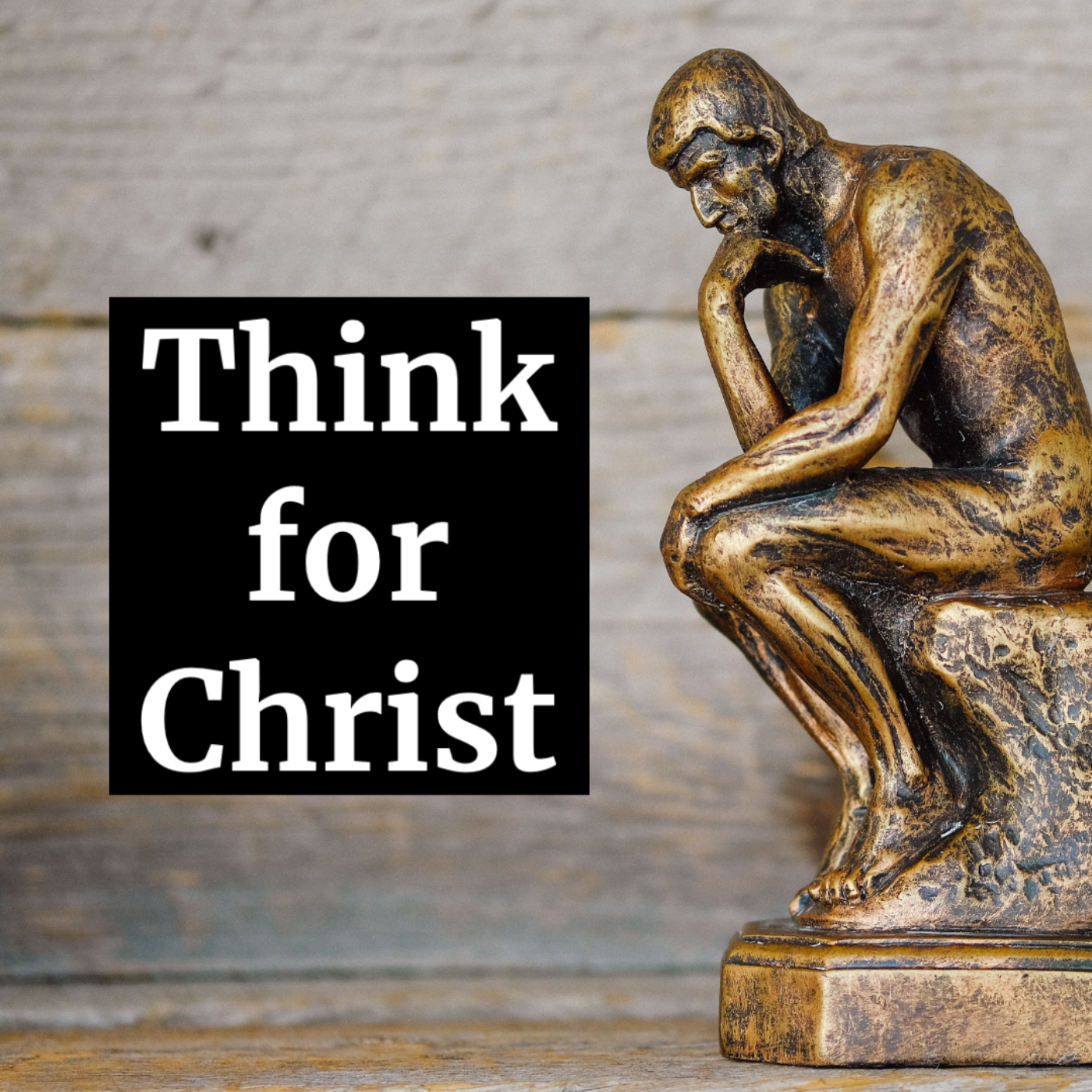 Think for ChristJordan Peterson on the Tower of BabelThe next biblical story up for consideration in Chapter Five of Jordan Peterson's book, We Who Wrestle with God: Perceptions of the Divine, is the Tower of Babel as found in Genesis 11:1-9. What is the spirit that led mankind to pridefully and presumptuously build a tower as a monument to human ingenuity and greatness in direct opposition to the command of God? How is that sprit manifested today? What are the consequences of following a spirit that worships technology and seeks to usurp the divine order, both for individuals and for society. Peterson is at his very best...2025-03-0337 min
Think for ChristJordan Peterson on the Tower of BabelThe next biblical story up for consideration in Chapter Five of Jordan Peterson's book, We Who Wrestle with God: Perceptions of the Divine, is the Tower of Babel as found in Genesis 11:1-9. What is the spirit that led mankind to pridefully and presumptuously build a tower as a monument to human ingenuity and greatness in direct opposition to the command of God? How is that sprit manifested today? What are the consequences of following a spirit that worships technology and seeks to usurp the divine order, both for individuals and for society. Peterson is at his very best...2025-03-0337 min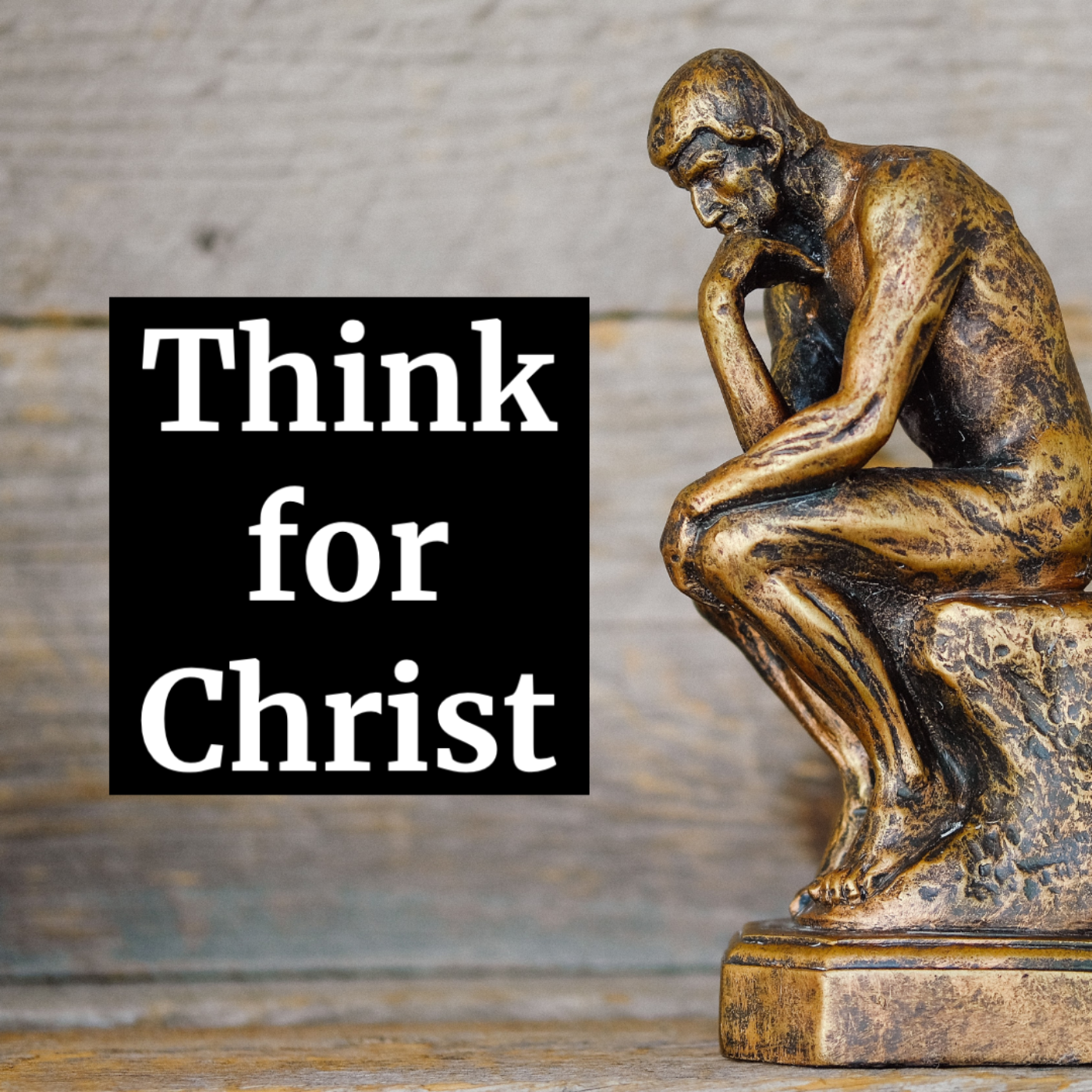 Think for ChristPostmodernism, meta-narratives, and the liberalization of ChristianityIn this lecture Andrew Payne considers the central importance of meta-narrative as a framework for meaning and the dire consequences of the postmodern dissolution of meta-narratives for the western world in general and for Christianity in particular. Using critical texts as his guide, Andrew surveys the downward spiral of the postmodern dissolution from the relativistic postwar consensus, to the therapeutic atomization of the individual, to the politicization and moralization of Christianity.2025-02-2450 min
Think for ChristPostmodernism, meta-narratives, and the liberalization of ChristianityIn this lecture Andrew Payne considers the central importance of meta-narrative as a framework for meaning and the dire consequences of the postmodern dissolution of meta-narratives for the western world in general and for Christianity in particular. Using critical texts as his guide, Andrew surveys the downward spiral of the postmodern dissolution from the relativistic postwar consensus, to the therapeutic atomization of the individual, to the politicization and moralization of Christianity.2025-02-2450 min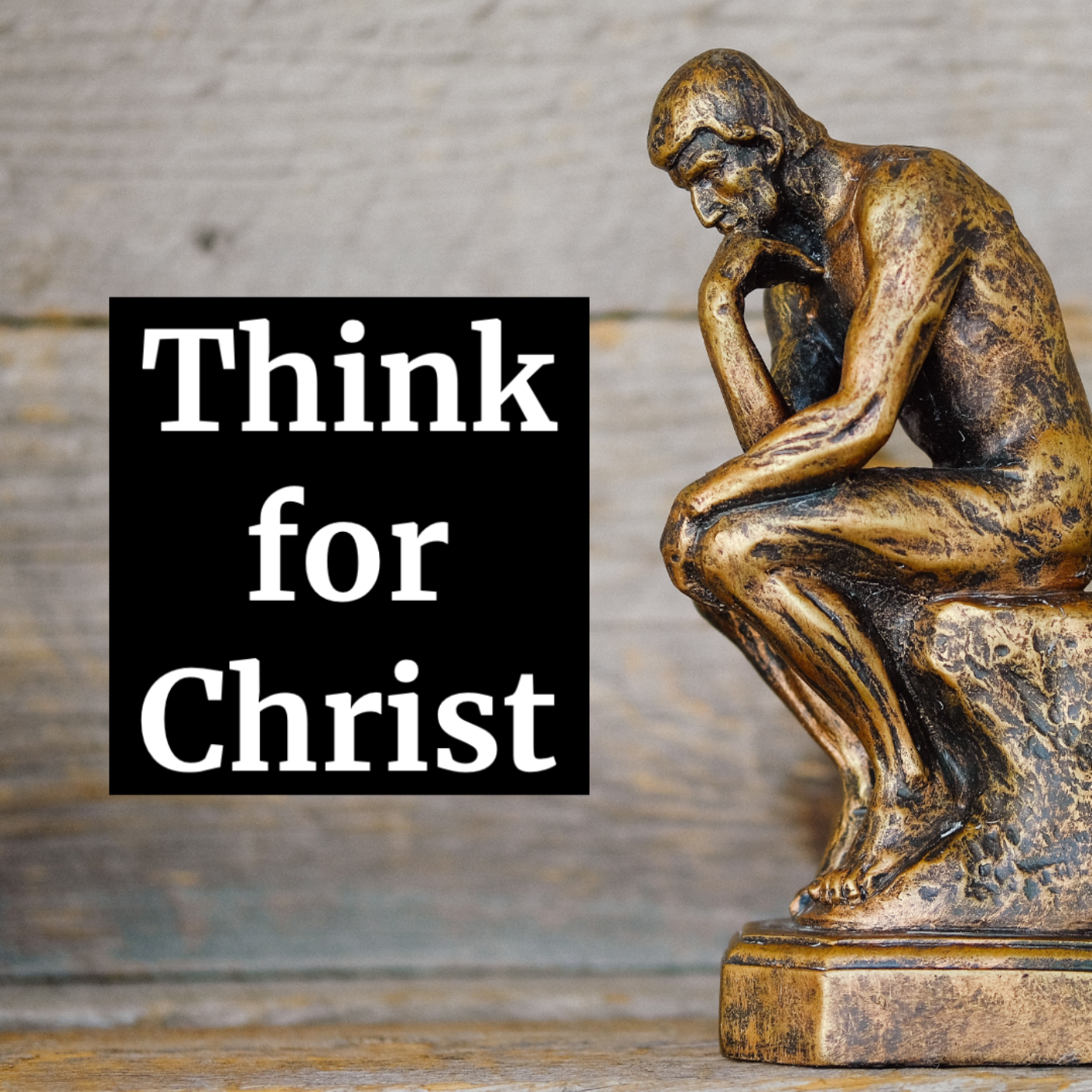 Think for ChristJordan Peterson on Cain and Abel and Noah and the Great Flood.In this episode Anthony Alberino and Andrew Payne critical review chapters 3 and 4 of Jordan Peterson's We Who Wrestle with God: Perceptions of the Divine. In these chapters, Peterson takes on the biblical accounts of Cain and Abel and Noah and the Great Flood.2025-02-161h 28
Think for ChristJordan Peterson on Cain and Abel and Noah and the Great Flood.In this episode Anthony Alberino and Andrew Payne critical review chapters 3 and 4 of Jordan Peterson's We Who Wrestle with God: Perceptions of the Divine. In these chapters, Peterson takes on the biblical accounts of Cain and Abel and Noah and the Great Flood.2025-02-161h 28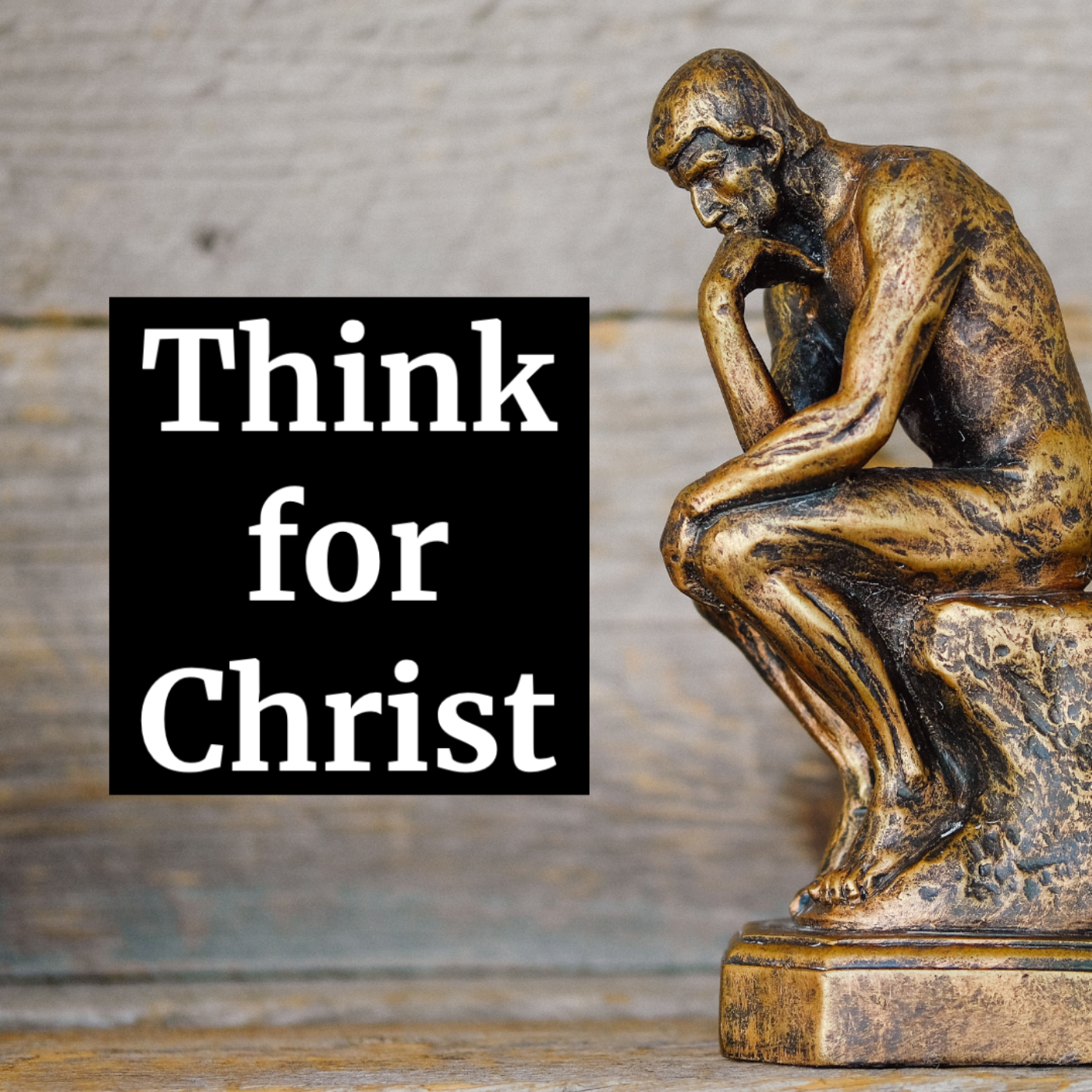 Think for ChristJordan Peterson on Creation, Adam and Eve, the Garden, and the FallIn this episode Anthony Alberino and Andrew Payne critically review the first two chapters of Jordan Peterson's book, We Who Wrestle with God. Peterson begins the first chapter of his work with a consideration of the creation account at the opening of the biblical book of Genesis and then moves to an interpretation of the divine likeness within man and woman. Along the way Peterson draws insights from the text related to the nature of the Garden of Eden, the Serpent, and the Fall.2025-02-031h 33
Think for ChristJordan Peterson on Creation, Adam and Eve, the Garden, and the FallIn this episode Anthony Alberino and Andrew Payne critically review the first two chapters of Jordan Peterson's book, We Who Wrestle with God. Peterson begins the first chapter of his work with a consideration of the creation account at the opening of the biblical book of Genesis and then moves to an interpretation of the divine likeness within man and woman. Along the way Peterson draws insights from the text related to the nature of the Garden of Eden, the Serpent, and the Fall.2025-02-031h 33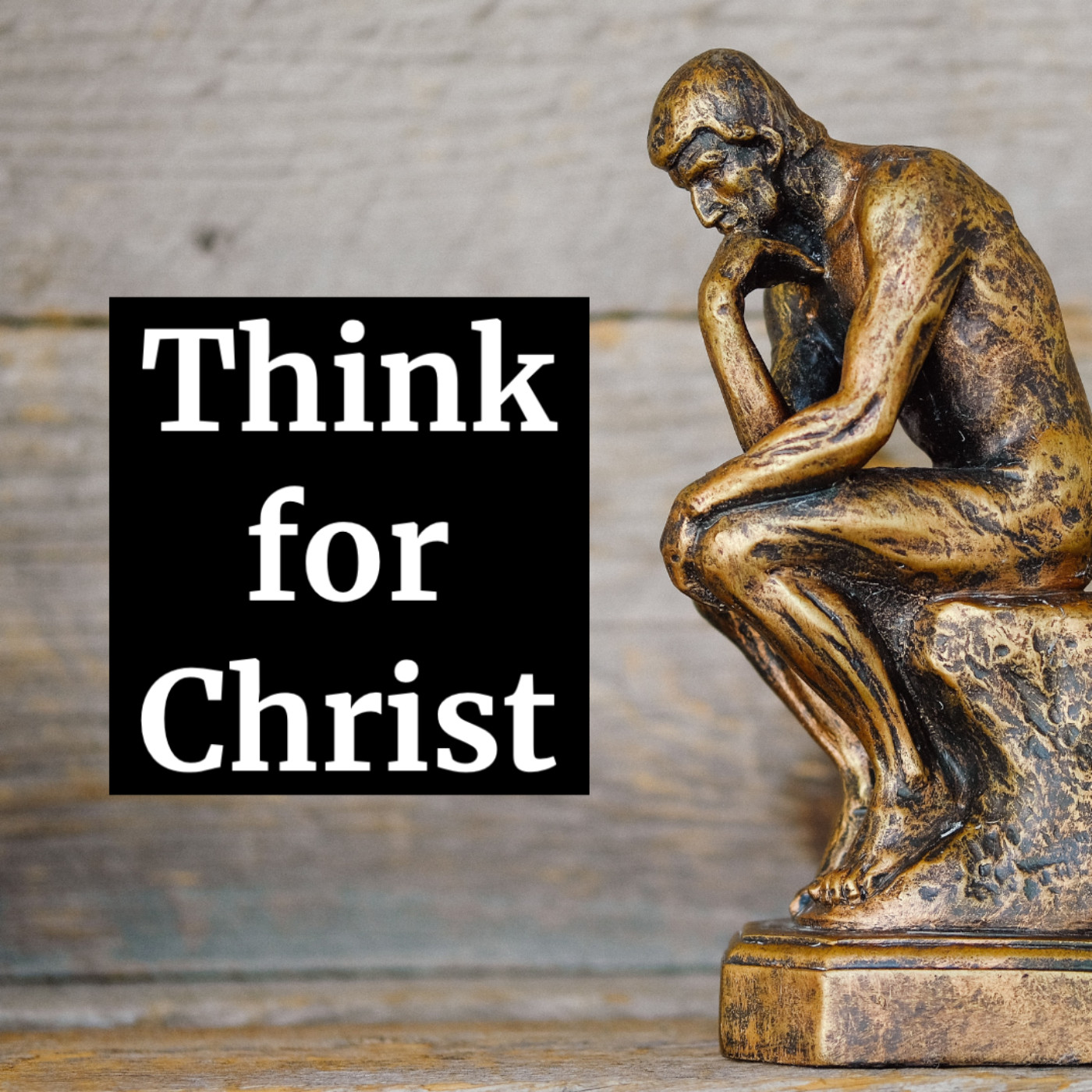 Think for ChristAlternative Explanations for the Evidence of the Resurrection of JesusIn Part 29 of this Introduction to Apologetics series we conclude our look at the historical case for the resurrection of Jesus by considering some of the most prominent and promising of alternative naturalistic explanations that have been offered over the centuries. Examined here are the Conspiracy/Fraud Theory, the Apparent Death (or Swoon) Theory, the Wrong Tomb Theory, the Hallucination Theory, and Combination Theories.2025-01-2733 min
Think for ChristAlternative Explanations for the Evidence of the Resurrection of JesusIn Part 29 of this Introduction to Apologetics series we conclude our look at the historical case for the resurrection of Jesus by considering some of the most prominent and promising of alternative naturalistic explanations that have been offered over the centuries. Examined here are the Conspiracy/Fraud Theory, the Apparent Death (or Swoon) Theory, the Wrong Tomb Theory, the Hallucination Theory, and Combination Theories.2025-01-2733 min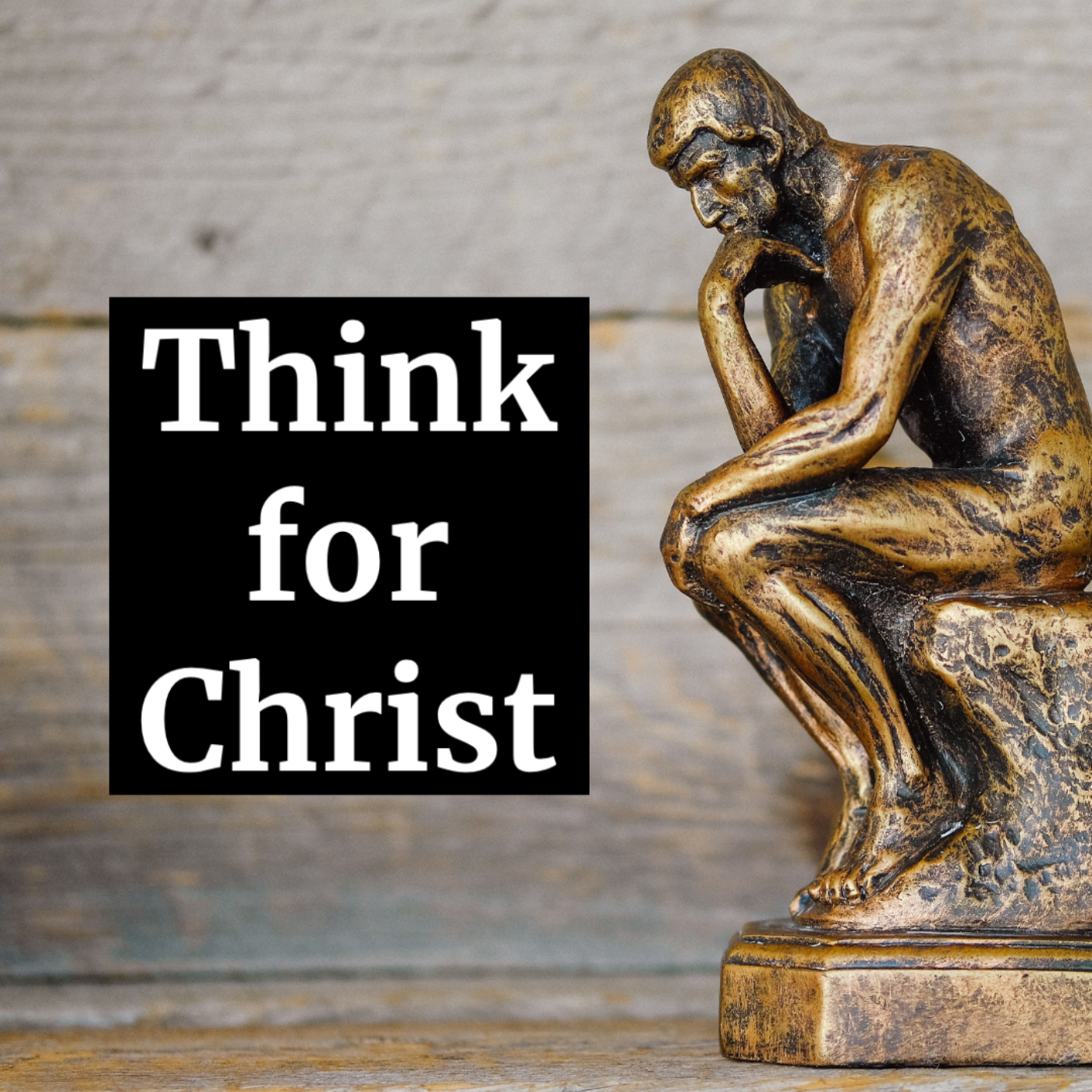 Think for ChristWe Who Wrestle with Jordan PetersonAnthony Alberino and Andrew Payne launch a new series of episodes dedicated to a critical evaluation of Jordan Peterson's 2024 book, We Who Wrestle with God: Perceptions of the Divine. In this introductory episode we discuss Jordan Peterson and his influence on western culture in general and on western Christianity in particular. We then seek to identify and unpack the ideological framework that control's Peterson's interpretation of biblical texts throughout his work. Finally, we take a look at the introductory chapter of the book which Peterson titles, "Foreshadowing: The Still, Small Voice."2025-01-201h 37
Think for ChristWe Who Wrestle with Jordan PetersonAnthony Alberino and Andrew Payne launch a new series of episodes dedicated to a critical evaluation of Jordan Peterson's 2024 book, We Who Wrestle with God: Perceptions of the Divine. In this introductory episode we discuss Jordan Peterson and his influence on western culture in general and on western Christianity in particular. We then seek to identify and unpack the ideological framework that control's Peterson's interpretation of biblical texts throughout his work. Finally, we take a look at the introductory chapter of the book which Peterson titles, "Foreshadowing: The Still, Small Voice."2025-01-201h 37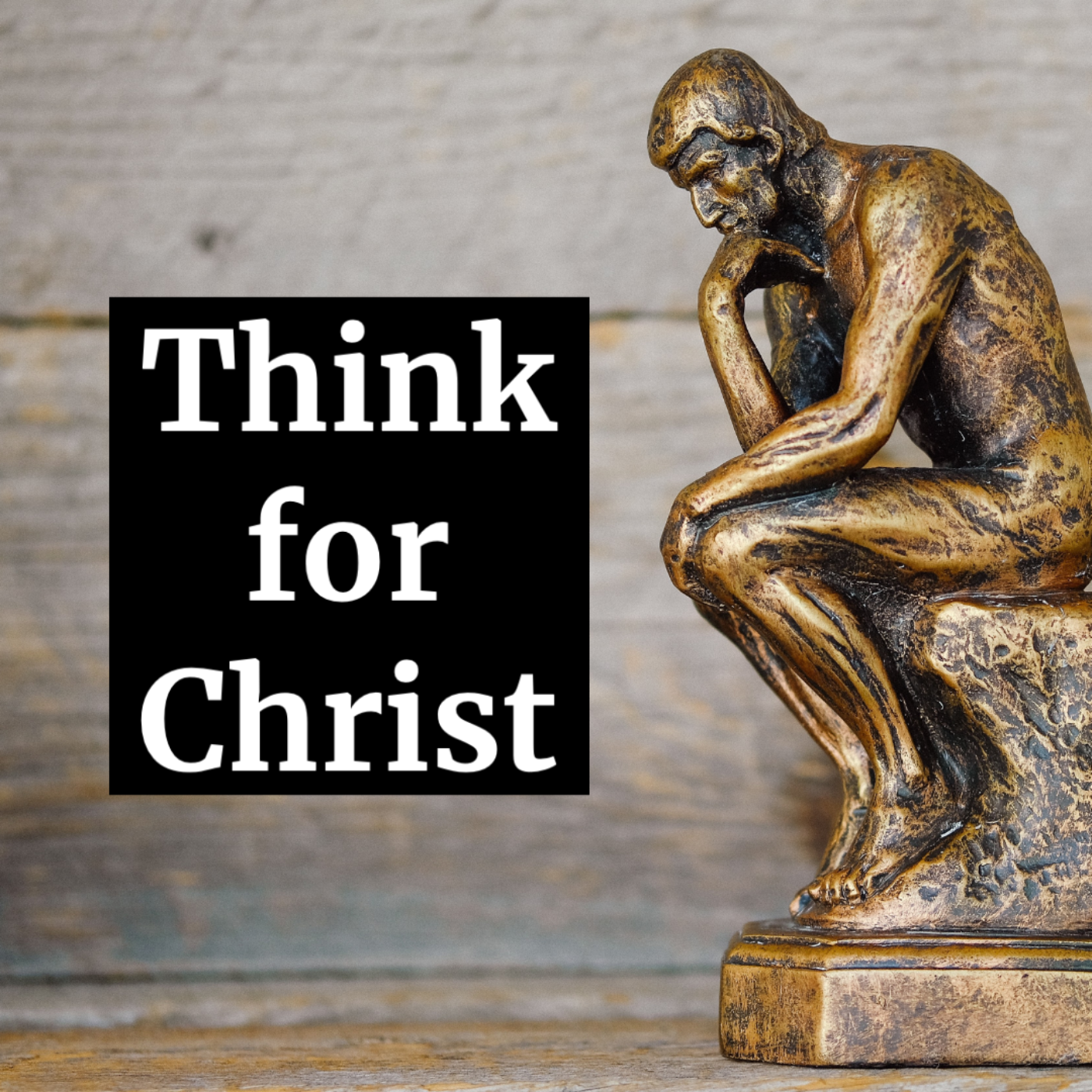 Think for ChristEvidence of the Resurrection of Jesus. Part Two.In Part 28 of this Introduction to Apologetics series we continue our review of six well-attested facts that provide evidence for the historical case for the resurrection of Jesus and from which the resurrection can be inferred. Last time we looked at the first three, in this episode we review the final three, which are: 4. The origin of the Christian faith depends on the belief of the earliest disciples that God had raised Jesus from the dead. 5. The church persecutor Paul was suddenly changed. 6. The skeptic James, brother of Jesus, was suddenly changed.2025-01-1316 min
Think for ChristEvidence of the Resurrection of Jesus. Part Two.In Part 28 of this Introduction to Apologetics series we continue our review of six well-attested facts that provide evidence for the historical case for the resurrection of Jesus and from which the resurrection can be inferred. Last time we looked at the first three, in this episode we review the final three, which are: 4. The origin of the Christian faith depends on the belief of the earliest disciples that God had raised Jesus from the dead. 5. The church persecutor Paul was suddenly changed. 6. The skeptic James, brother of Jesus, was suddenly changed.2025-01-1316 min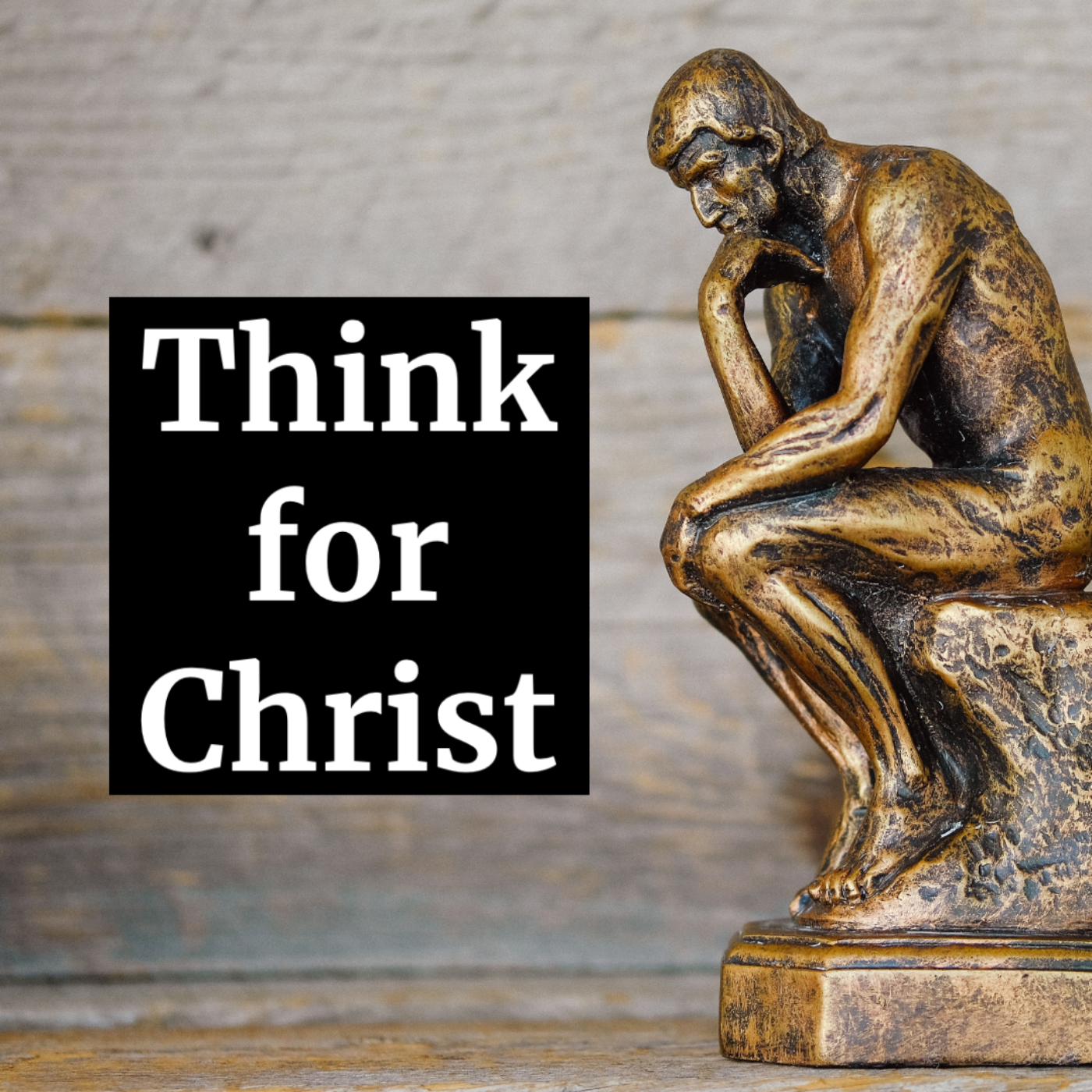 Think for ChristEvidence of the Resurrection of Jesus. Part One.In Part 27 of this Introduction to Apologetics series we continue our review of the historical case for resurrection of Jesus by considering six well attested historical facts that will serve as our evidence for the resurrection. In this episode we look at the first three, which are: 1. Jesus died by crucifixion. 2. The tomb of Jesus was found empty by a group of women followers on the first day of the week following his crucifixion. 3. On separate occasions different individuals and groups had experiences of seeing Jesus alive from the dead.2025-01-0619 min
Think for ChristEvidence of the Resurrection of Jesus. Part One.In Part 27 of this Introduction to Apologetics series we continue our review of the historical case for resurrection of Jesus by considering six well attested historical facts that will serve as our evidence for the resurrection. In this episode we look at the first three, which are: 1. Jesus died by crucifixion. 2. The tomb of Jesus was found empty by a group of women followers on the first day of the week following his crucifixion. 3. On separate occasions different individuals and groups had experiences of seeing Jesus alive from the dead.2025-01-0619 min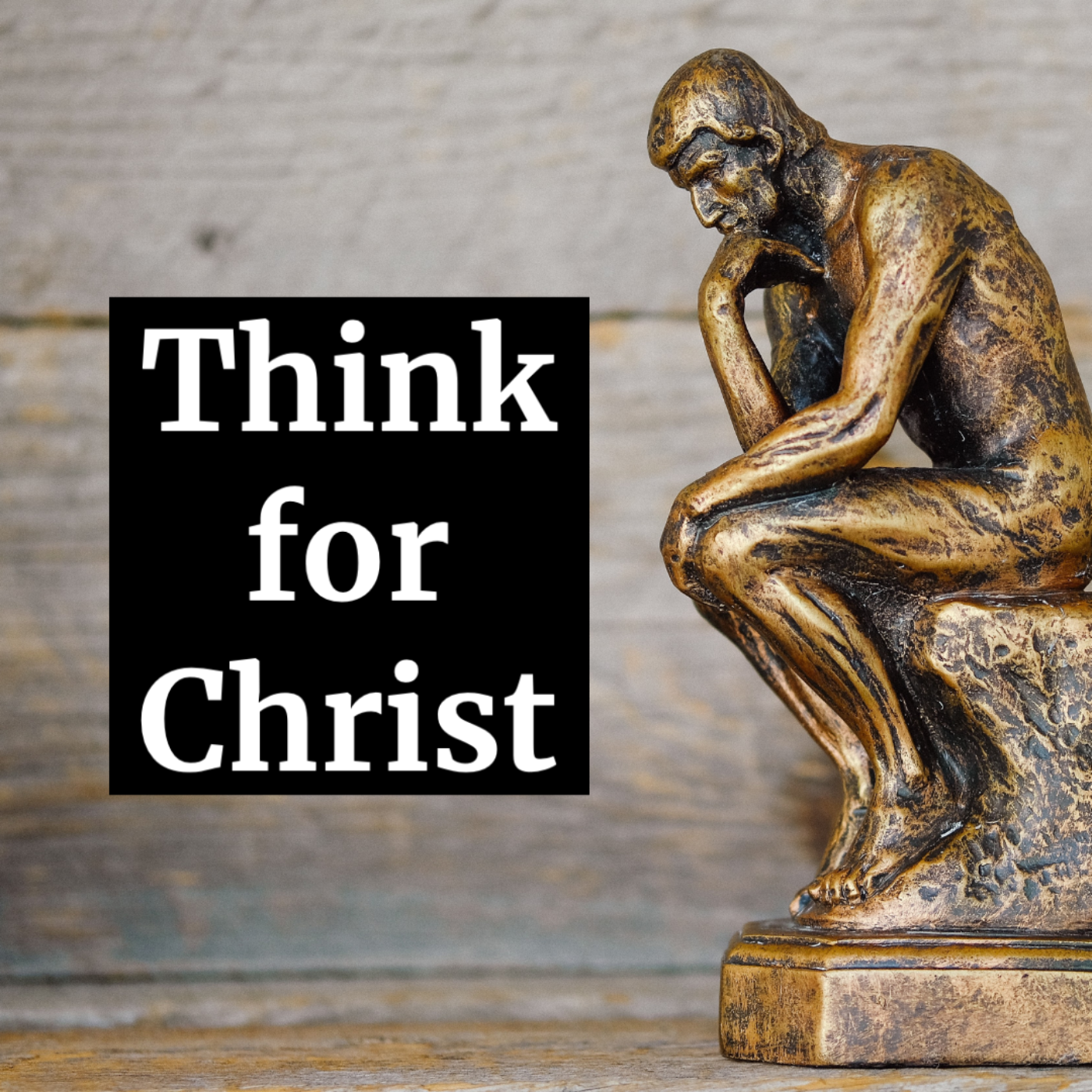 Think for ChristThe top-down vs. bottom-up approach to arguing for the resurrection of JesusIn Part 26 of this Introduction to Apologetics series we set the stage for making a historical case for resurrection of Jesus by comparing the top-down method with a bottom-up method. That is we can arrive to the truth of the Resurrection by first establishing the historical credibility of the New Testament sources which testify to the Resurrection (top-down) or by starting from some well-attested historical facts and arguing that the Resurrection is the best explanation for those facts.2024-12-2709 min
Think for ChristThe top-down vs. bottom-up approach to arguing for the resurrection of JesusIn Part 26 of this Introduction to Apologetics series we set the stage for making a historical case for resurrection of Jesus by comparing the top-down method with a bottom-up method. That is we can arrive to the truth of the Resurrection by first establishing the historical credibility of the New Testament sources which testify to the Resurrection (top-down) or by starting from some well-attested historical facts and arguing that the Resurrection is the best explanation for those facts.2024-12-2709 min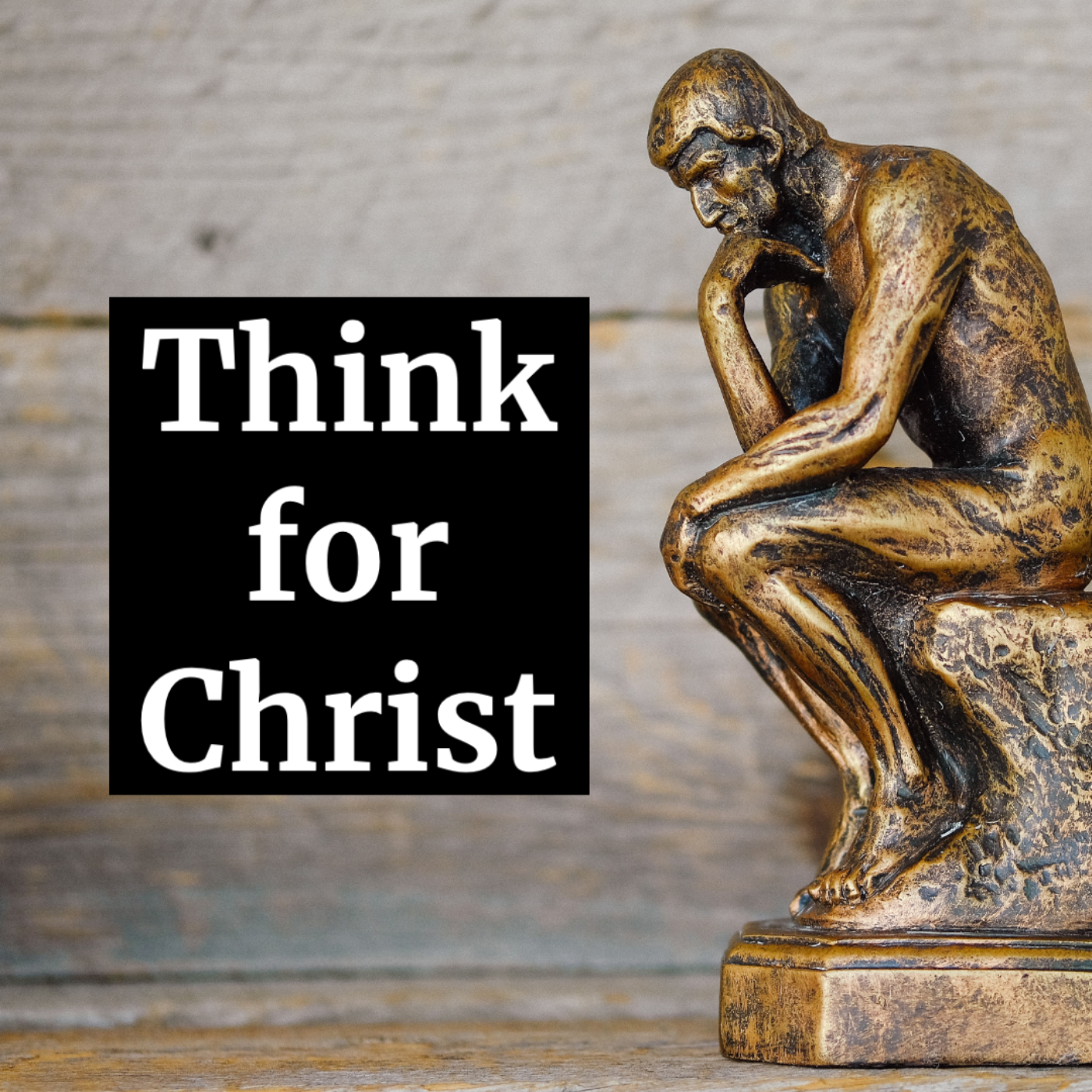 Think for ChristThe religious life and the absolute duty to a transcendent GodIn this episode of Think for Christ Andrew continues to walk us through Soren Kierkegaard's highly influential work Fear and Trembling. Andrew reviews the structure of the work and explains some of Kierkegaard's big ideas. Among the central themes of the book is the "Knight of Faith" which is Kierkegaard's name for the heroic believer who recognizes his absolute duty to God above all else. Kierkegaard illustrates the radical nature of faith through the story of Abraham's willingness to sacrifice Isaac at God's command.2024-12-171h 06
Think for ChristThe religious life and the absolute duty to a transcendent GodIn this episode of Think for Christ Andrew continues to walk us through Soren Kierkegaard's highly influential work Fear and Trembling. Andrew reviews the structure of the work and explains some of Kierkegaard's big ideas. Among the central themes of the book is the "Knight of Faith" which is Kierkegaard's name for the heroic believer who recognizes his absolute duty to God above all else. Kierkegaard illustrates the radical nature of faith through the story of Abraham's willingness to sacrifice Isaac at God's command.2024-12-171h 06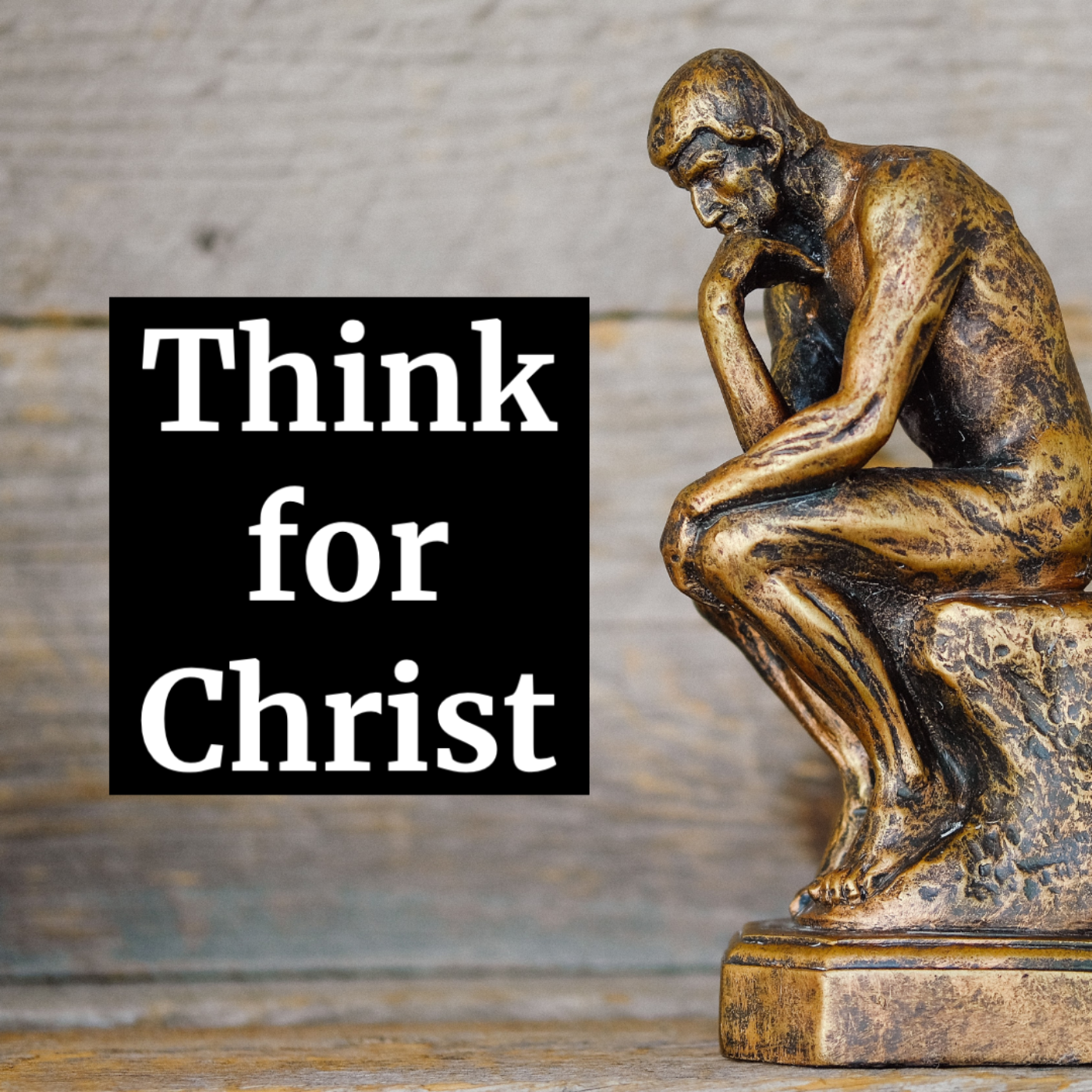 Think for ChristA new version of an old argument for God with Pat FlynnPat Flynn joins Anthony Alberino to discuss a new version of Thomas Aquinas's cosmological Argument for God. Following on the work of philosopher Barry Miller, Pat makes the case for the existence of God without appealing to the Principle of Sufficient Reason (PSR) allowing him to bypass two of the most recurrent objections to cosmological reasoning: (a) the possibility of brute facts (i.e., that not everything needs an adequate explanation of its existence) and (b) the accusation of the composition fallacy. Pat argues that any contingent entity, upon metaphysical analysis, is either a contradictory structure and therefore an...2024-12-091h 10
Think for ChristA new version of an old argument for God with Pat FlynnPat Flynn joins Anthony Alberino to discuss a new version of Thomas Aquinas's cosmological Argument for God. Following on the work of philosopher Barry Miller, Pat makes the case for the existence of God without appealing to the Principle of Sufficient Reason (PSR) allowing him to bypass two of the most recurrent objections to cosmological reasoning: (a) the possibility of brute facts (i.e., that not everything needs an adequate explanation of its existence) and (b) the accusation of the composition fallacy. Pat argues that any contingent entity, upon metaphysical analysis, is either a contradictory structure and therefore an...2024-12-091h 10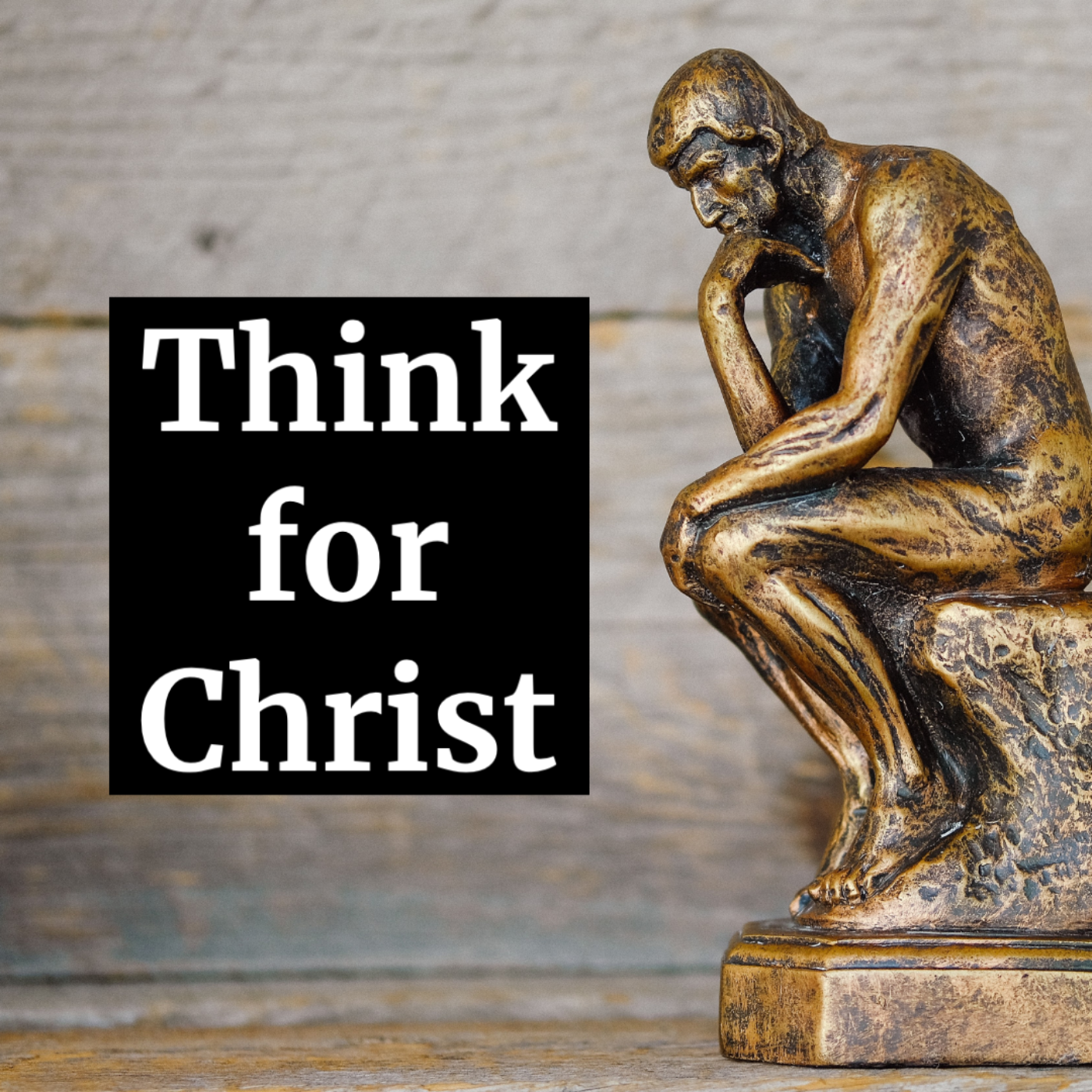 Think for ChristDoes Scripture intend to order us to an ethical system or to a transcendent God?Anthony and Andrew discuss the main theme of Soren Kierkegaard's famous short work, Fear and Trembling. We consider the main theme and aim of the book and how Kierkegaard intends us to see that the intent of Scripture is to order us to God rather than to order us to a system of ethics or morality. True faith, as seen in the story of Abraham's willingness to offer Isaac as sacrifice, requires a radical alignment of one's life to God as to the ultimate authority, an authority which transcends all our ethical rationalizations and culturally conditioned expectations.2024-11-291h 36
Think for ChristDoes Scripture intend to order us to an ethical system or to a transcendent God?Anthony and Andrew discuss the main theme of Soren Kierkegaard's famous short work, Fear and Trembling. We consider the main theme and aim of the book and how Kierkegaard intends us to see that the intent of Scripture is to order us to God rather than to order us to a system of ethics or morality. True faith, as seen in the story of Abraham's willingness to offer Isaac as sacrifice, requires a radical alignment of one's life to God as to the ultimate authority, an authority which transcends all our ethical rationalizations and culturally conditioned expectations.2024-11-291h 36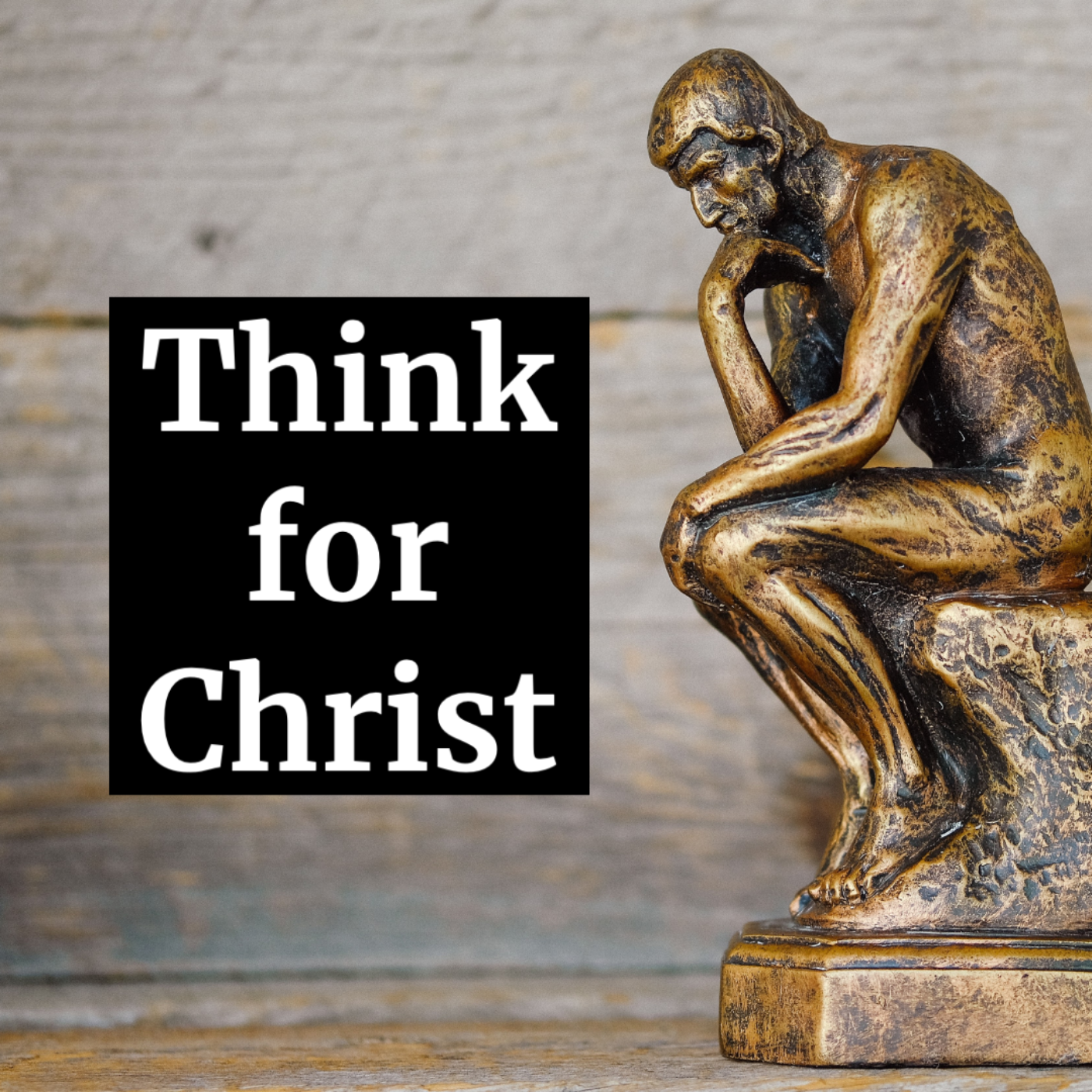 Think for ChristDid the New Testament authors actually provide a reliable account about Jesus?In Part 25 of this Introduction to Apologetics series we continue our consideration of the historical reliability of the New Testament by reviewing some reasons that can be given in support of the claim that the New Testament authors actually did provide a reliable account about Jesus. Three general categories of evidence for New Testament reliability are considered. First there is what sometimes goes by the name "signs of credibility" (or sometimes also "marks of authenticity"). Here we see that much of what the New Testament reports about the life, death, and resurrection of Jesus meets the criteria historians use...2024-11-2230 min
Think for ChristDid the New Testament authors actually provide a reliable account about Jesus?In Part 25 of this Introduction to Apologetics series we continue our consideration of the historical reliability of the New Testament by reviewing some reasons that can be given in support of the claim that the New Testament authors actually did provide a reliable account about Jesus. Three general categories of evidence for New Testament reliability are considered. First there is what sometimes goes by the name "signs of credibility" (or sometimes also "marks of authenticity"). Here we see that much of what the New Testament reports about the life, death, and resurrection of Jesus meets the criteria historians use...2024-11-2230 min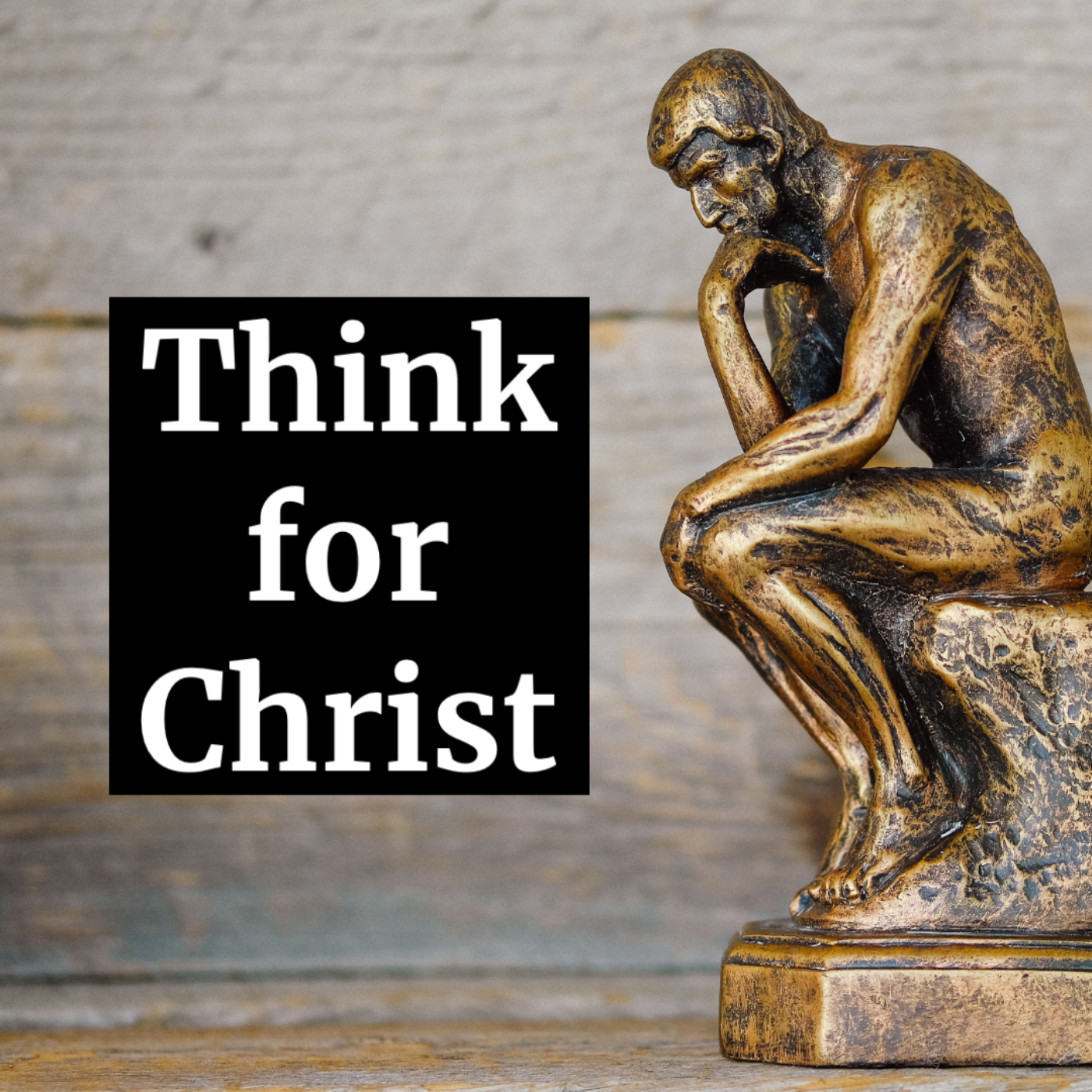 Think for ChristThe Dangers of Democracy: A Warning from Plato's RepublicIn his dialogue the Republic the ancient Greek philosopher Plato famously warned us about the perils of democracy and the moral degradation of what he calls the "democratic man". In this episode, and on the heels of the historic election of Donald Trump to a second term as President of the United States, Anthony Alberino and Andrew Payne discuss what Plato has to say about democracy and its relevance to modern political society.2024-11-111h 17
Think for ChristThe Dangers of Democracy: A Warning from Plato's RepublicIn his dialogue the Republic the ancient Greek philosopher Plato famously warned us about the perils of democracy and the moral degradation of what he calls the "democratic man". In this episode, and on the heels of the historic election of Donald Trump to a second term as President of the United States, Anthony Alberino and Andrew Payne discuss what Plato has to say about democracy and its relevance to modern political society.2024-11-111h 17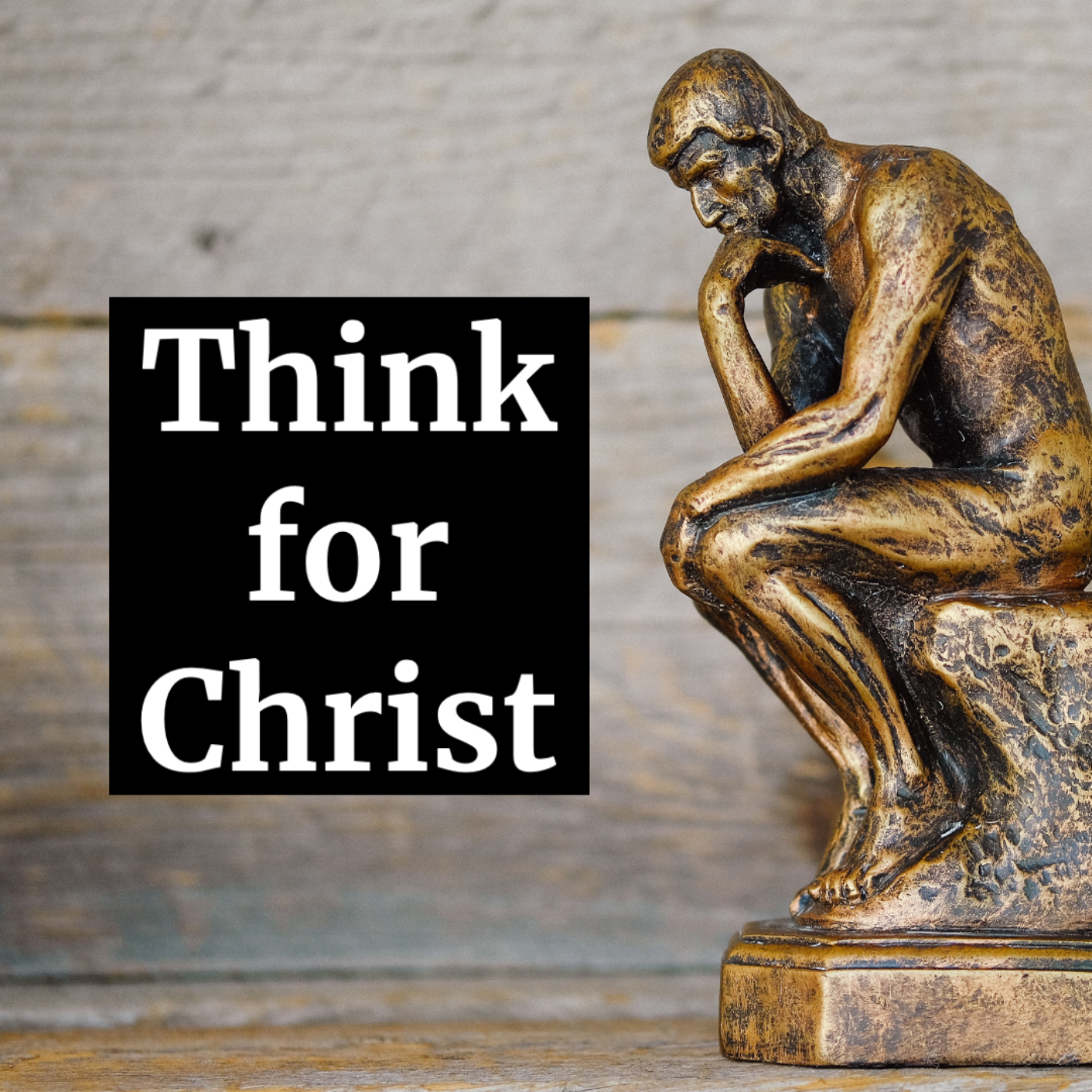 Think for ChristMajor Themes in Kierkegaard's WorkIn this episode on the life and thought of Soren Kierkegaard, Dr. Andrew Payne reviews four major themes that emerge across his works.2024-10-281h 11
Think for ChristMajor Themes in Kierkegaard's WorkIn this episode on the life and thought of Soren Kierkegaard, Dr. Andrew Payne reviews four major themes that emerge across his works.2024-10-281h 11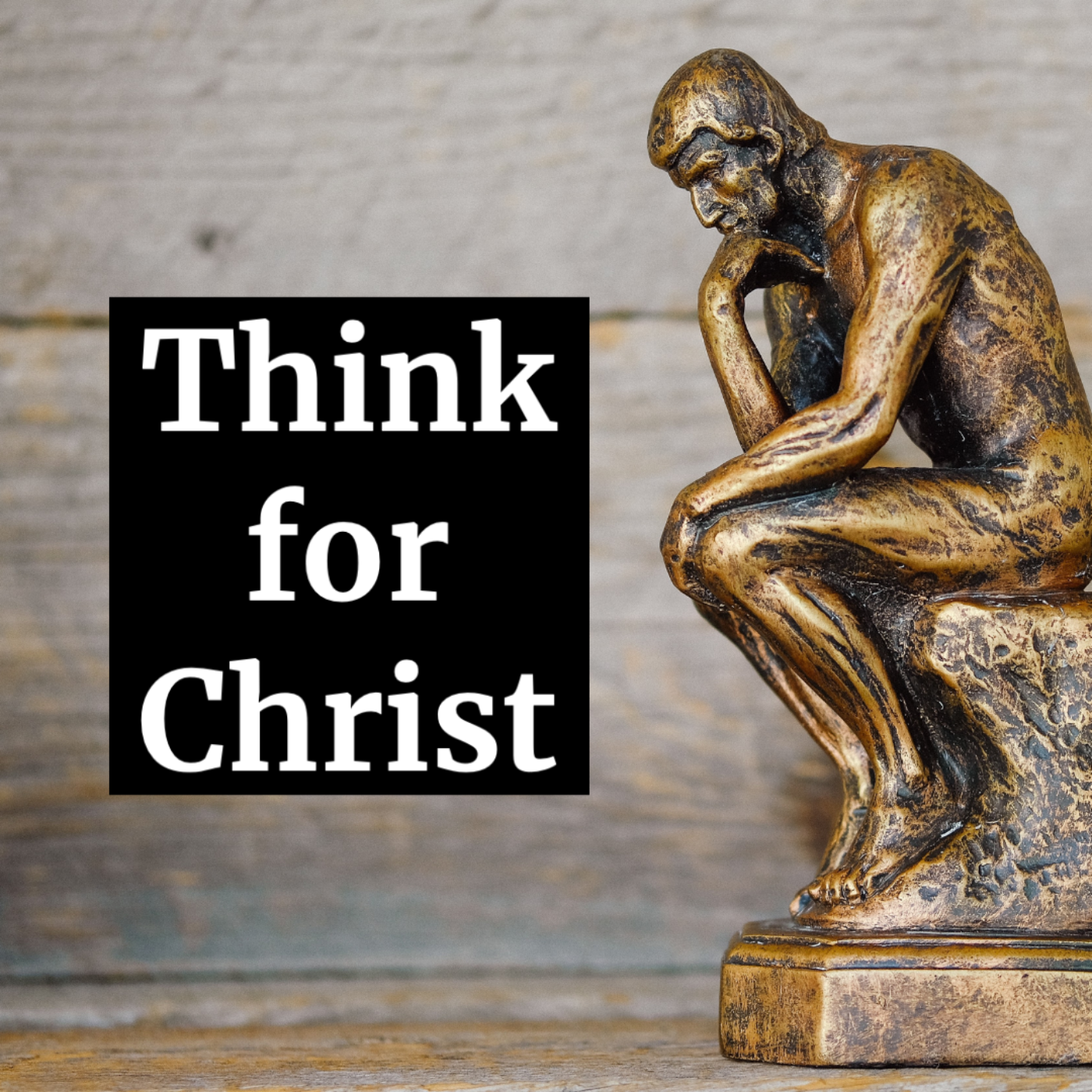 Think for ChristDid the New Testament authors intend to provide a reliable account about Jesus?In Part 24 of this Introduction to Apologetics series we consider the question: Did the New Testament authors intend to provide a reliable account about Jesus? Sometimes it is claimed that the NT authors, especially the Gospel authors, never actually intended to give us a factual account of the life, ministry, death, and resurrection of Jesus. Instead, what we have are mostly fabricated stories full of embellishments and non-historical material. The gospels are thus said to belong to a genre that is more akin to folk lore, legend, or myth rather than to the genre of historical memoir or biography...2024-10-1817 min
Think for ChristDid the New Testament authors intend to provide a reliable account about Jesus?In Part 24 of this Introduction to Apologetics series we consider the question: Did the New Testament authors intend to provide a reliable account about Jesus? Sometimes it is claimed that the NT authors, especially the Gospel authors, never actually intended to give us a factual account of the life, ministry, death, and resurrection of Jesus. Instead, what we have are mostly fabricated stories full of embellishments and non-historical material. The gospels are thus said to belong to a genre that is more akin to folk lore, legend, or myth rather than to the genre of historical memoir or biography...2024-10-1817 min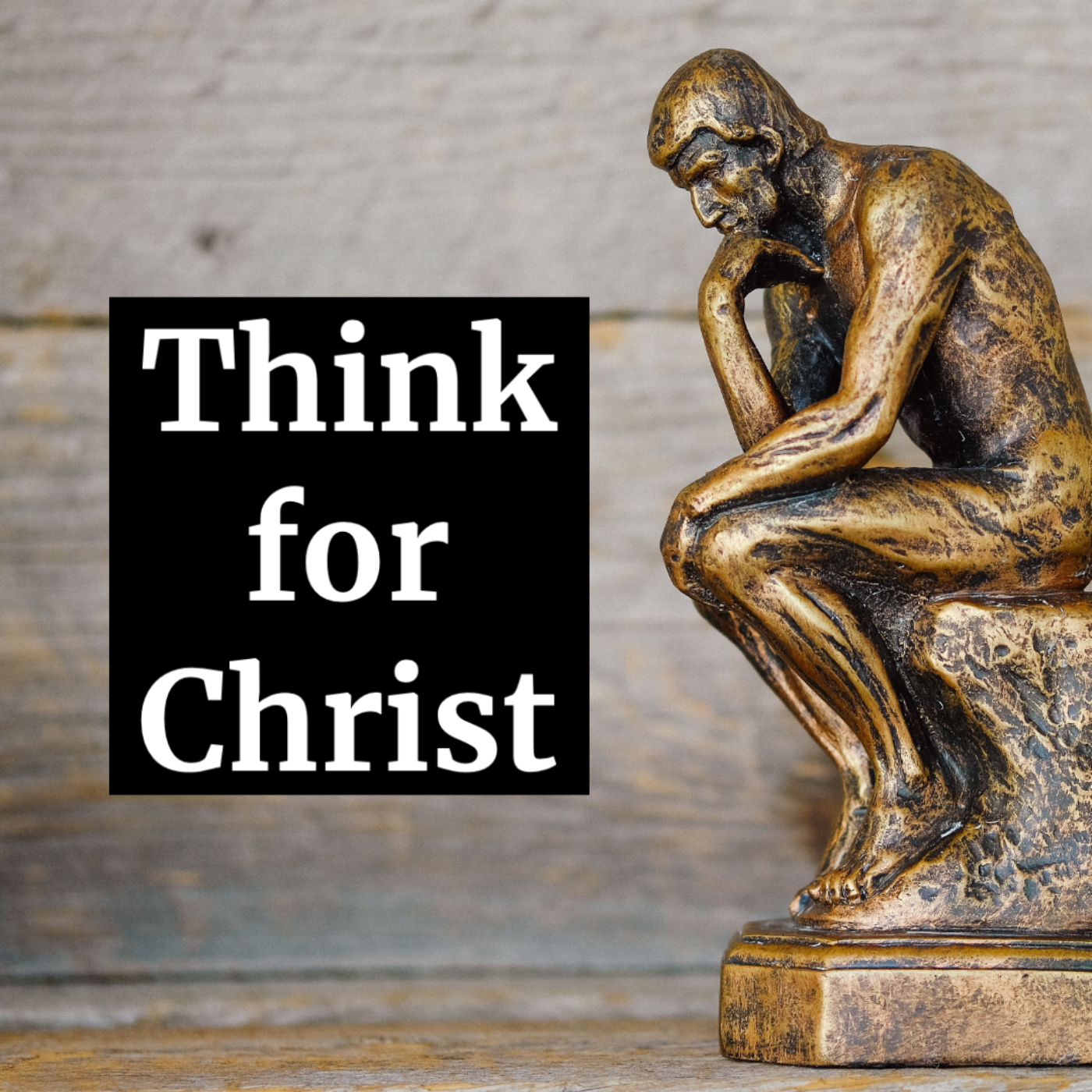 Think for ChristKierkegaard the "father of existentialism"?In this episode we continue our look at the life and thought of Soren Kierkegaard by considering whether he can rightly be characterized as an existentialist.2024-10-0846 min
Think for ChristKierkegaard the "father of existentialism"?In this episode we continue our look at the life and thought of Soren Kierkegaard by considering whether he can rightly be characterized as an existentialist.2024-10-0846 min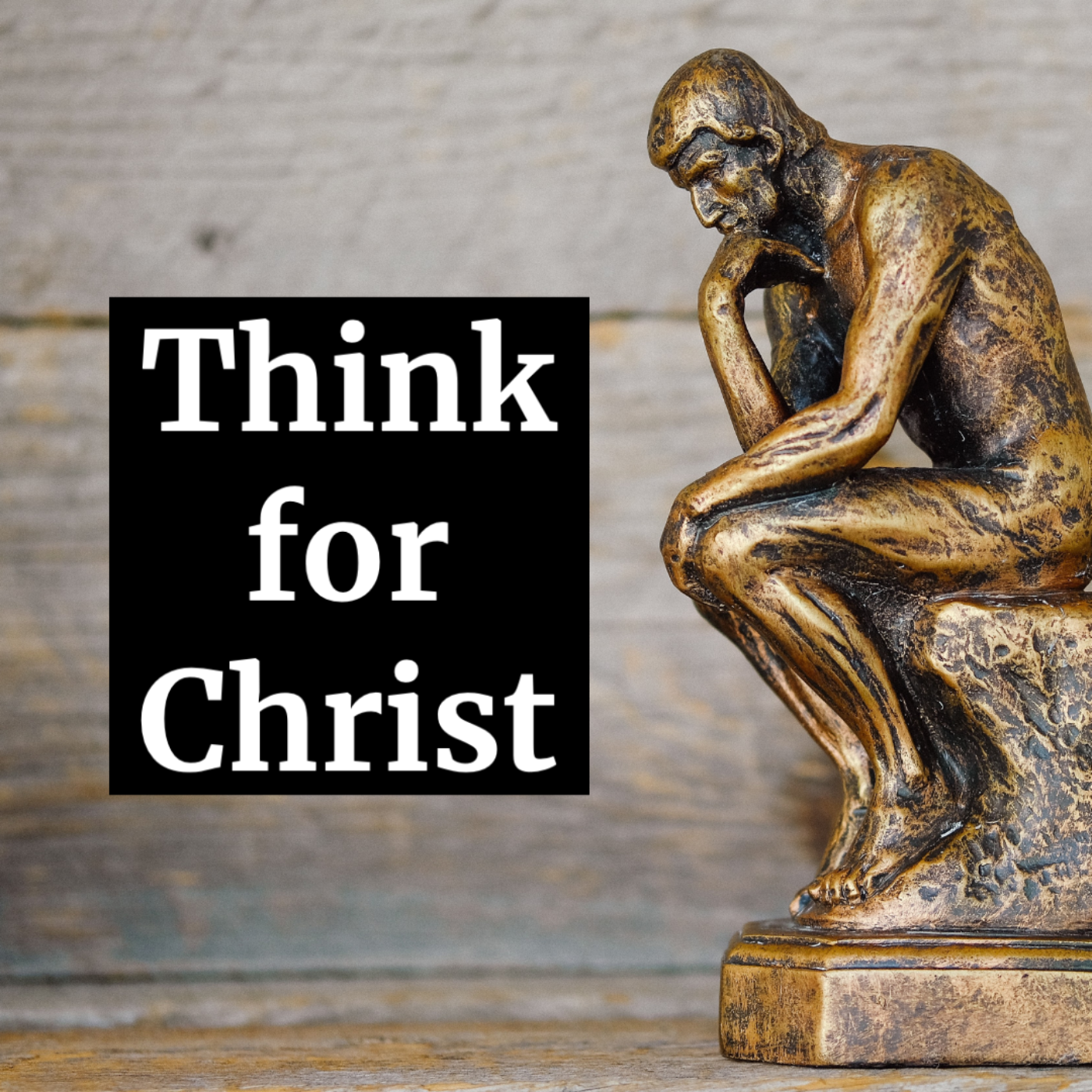 Think for ChristWere the New Testament authors able to write a reliable account about Jesus?In Part 23 of this Introduction to Apologetics series we begin our review of the case for the historical reliability of the New Testament. To make this case, we first argue that the writers of the New Testament were well able to write a reliable account by focusing on the dating and authorship of the New Testaments documents. We show that the authors of the New Testament were the right people writing from the right place and writing at the right time. In other words, the New Testament documents were written close enough to the events they describe and by...2024-09-3028 min
Think for ChristWere the New Testament authors able to write a reliable account about Jesus?In Part 23 of this Introduction to Apologetics series we begin our review of the case for the historical reliability of the New Testament. To make this case, we first argue that the writers of the New Testament were well able to write a reliable account by focusing on the dating and authorship of the New Testaments documents. We show that the authors of the New Testament were the right people writing from the right place and writing at the right time. In other words, the New Testament documents were written close enough to the events they describe and by...2024-09-3028 min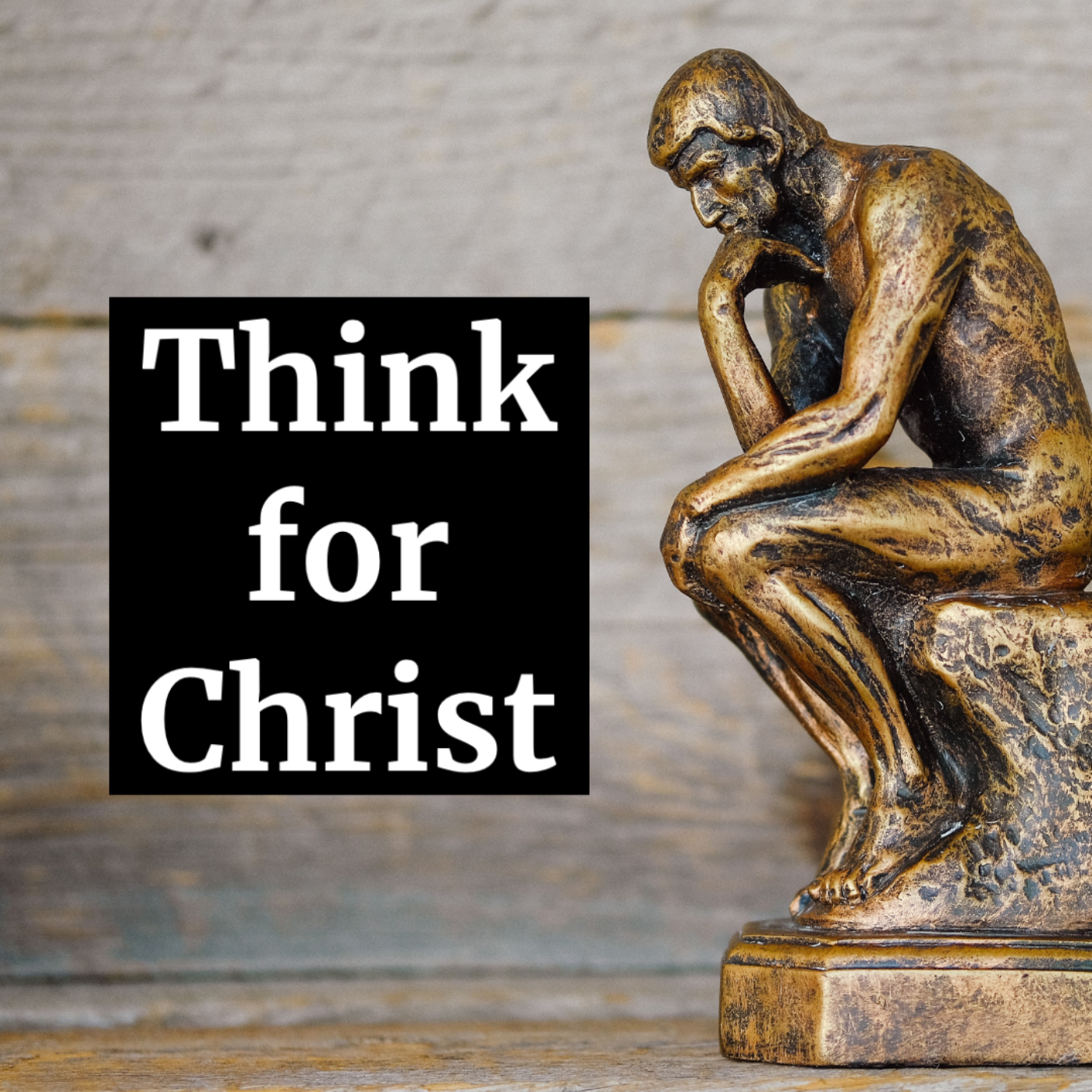 Think for ChristThe Life and Thought of Soren KierkegaardIn this episode we begin a new series on the hugely influential nineteenth century Danish theologian, philosopher, and literary master Soren Kierkegaard. Dr. Andrew Payne kicks off the series with a biographical sketch of some of the important events in Kierkegaard's life. Andrew also explains the relevance of Kierkegaard's thought for Christians today.2024-09-2358 min
Think for ChristThe Life and Thought of Soren KierkegaardIn this episode we begin a new series on the hugely influential nineteenth century Danish theologian, philosopher, and literary master Soren Kierkegaard. Dr. Andrew Payne kicks off the series with a biographical sketch of some of the important events in Kierkegaard's life. Andrew also explains the relevance of Kierkegaard's thought for Christians today.2024-09-2358 min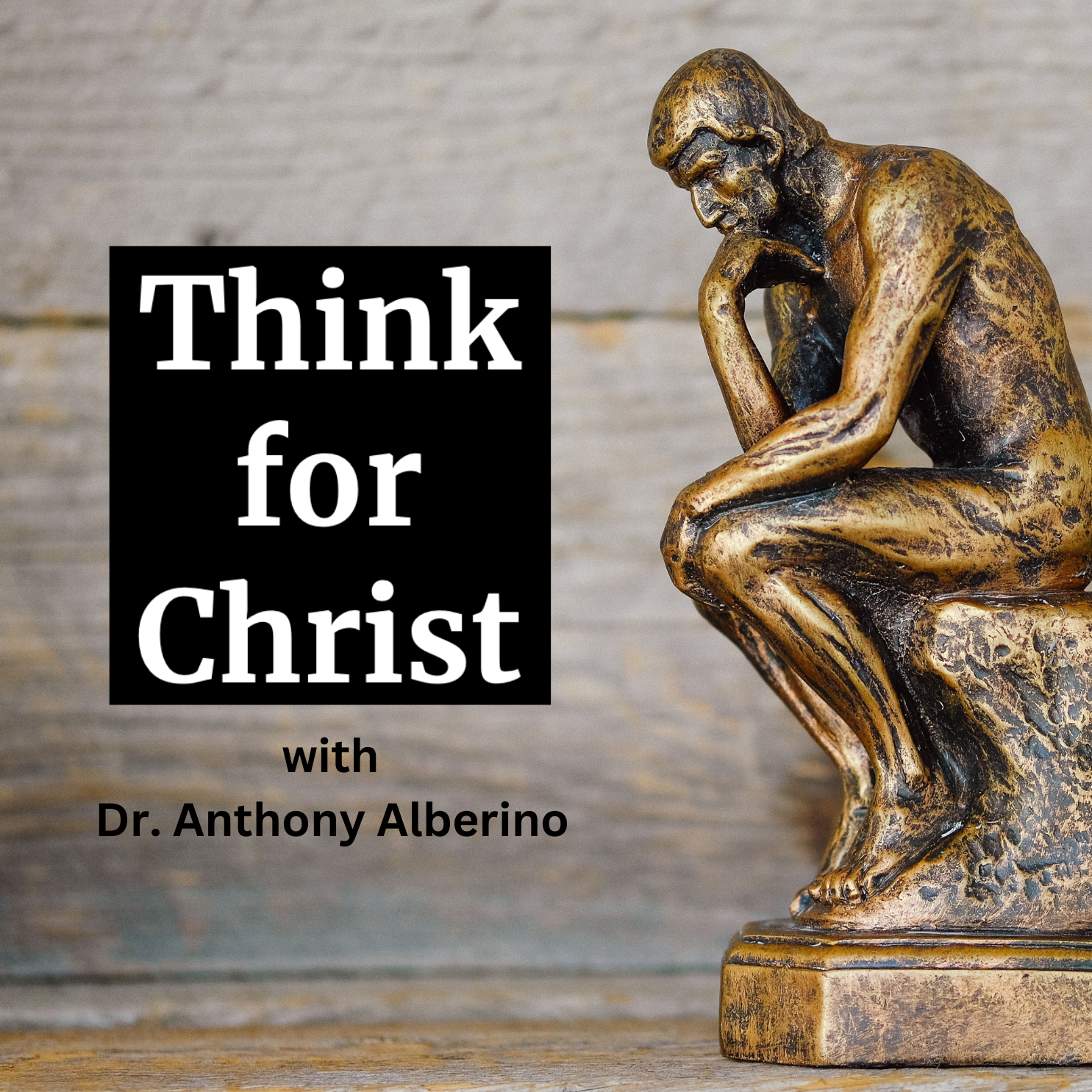 Think for ChristBeyond 'Origin': A Post-Darwinian Design Theory with Dr. J. T. BridgesIn this episode of Think for Christ, we welcome back philosopher J.T. Bridges to talk about his new book Beyond ‘Origin’: A Post-Darwinian Design Theory. In this book Dr. Bridges provides a much-needed critique of the somewhat stalled debate between Neo-Darwinist and Intelligent Design proponents. The book is full of valuable and probing insights for the ID movement, but, by way of disclaimer, it is not by any means an “easy read” or a “beginner-level” work. Dr. Bridges is presenting a philosophical critique of the of the current debate and in doing so he surveys ideas from several academic fie...2024-09-101h 39
Think for ChristBeyond 'Origin': A Post-Darwinian Design Theory with Dr. J. T. BridgesIn this episode of Think for Christ, we welcome back philosopher J.T. Bridges to talk about his new book Beyond ‘Origin’: A Post-Darwinian Design Theory. In this book Dr. Bridges provides a much-needed critique of the somewhat stalled debate between Neo-Darwinist and Intelligent Design proponents. The book is full of valuable and probing insights for the ID movement, but, by way of disclaimer, it is not by any means an “easy read” or a “beginner-level” work. Dr. Bridges is presenting a philosophical critique of the of the current debate and in doing so he surveys ideas from several academic fie...2024-09-101h 39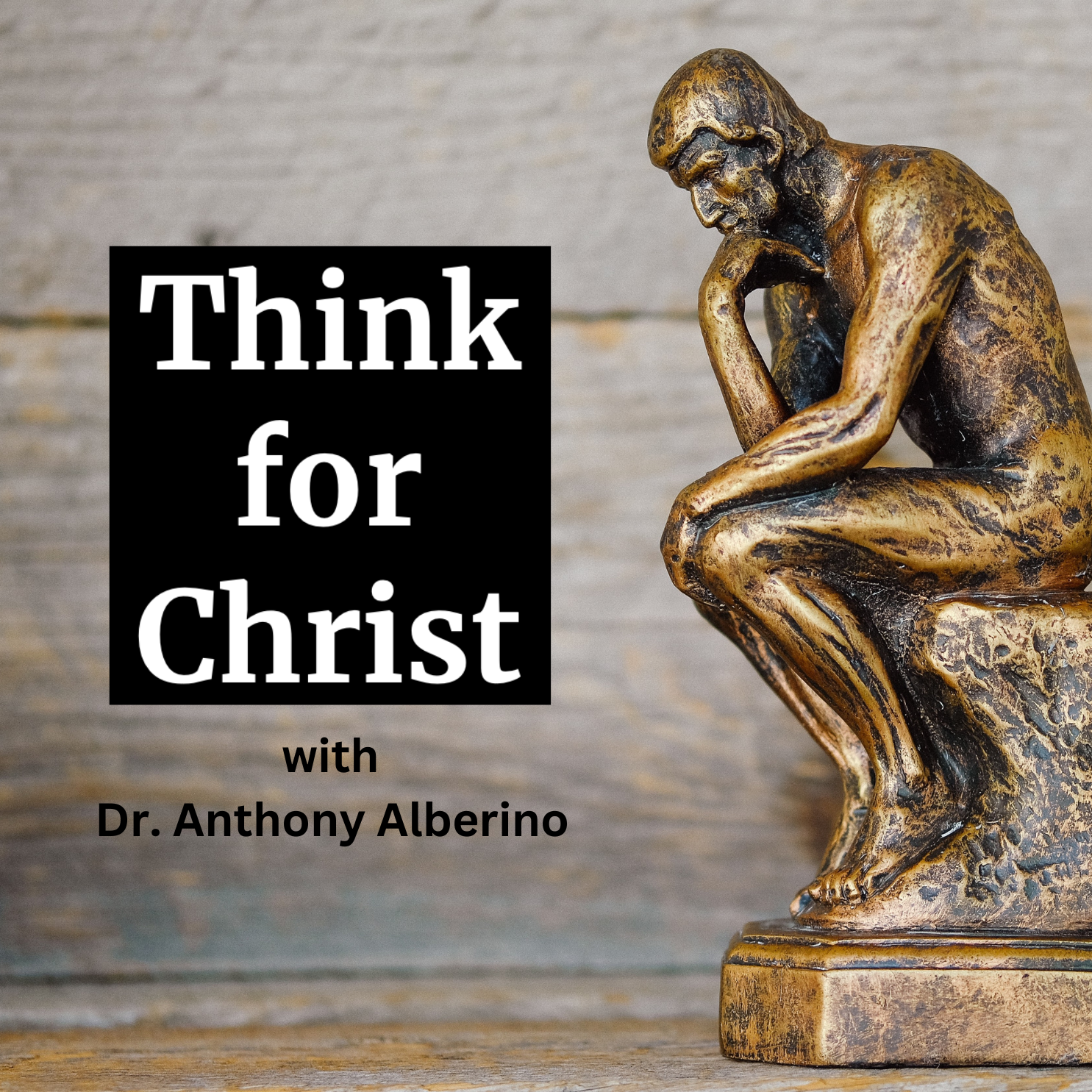 Think for ChristDo We Have Accurate Copies of the New Testament?In Part 22 of this Introduction to Apologetics series we consider the question: Do we have accurate copies of the New Testament? How can we have confidence that our copies of the NT are faithful reflections of the originals? How can we be sure that they haven’t been corrupted and distorted? How trustworthy has the transmission process been?2024-09-0219 min
Think for ChristDo We Have Accurate Copies of the New Testament?In Part 22 of this Introduction to Apologetics series we consider the question: Do we have accurate copies of the New Testament? How can we have confidence that our copies of the NT are faithful reflections of the originals? How can we be sure that they haven’t been corrupted and distorted? How trustworthy has the transmission process been?2024-09-0219 min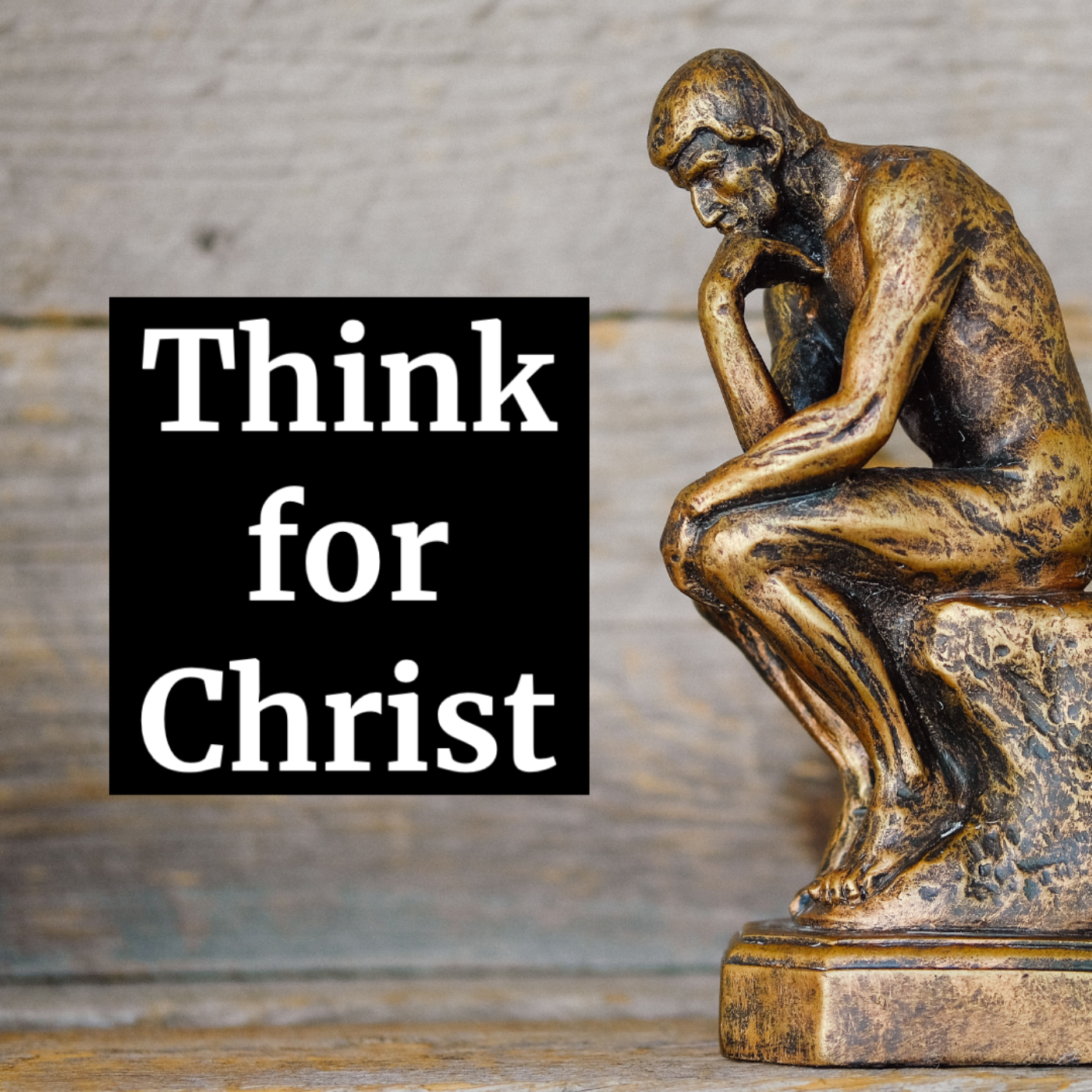 Think for ChristMaking the Case for ChristianityIn Part 21 of this Introduction to Apologetics series we move into the next major section of the series where we’ll be reviewing the evidence for Christian theism and the historical case for Christianity.2024-08-2614 min
Think for ChristMaking the Case for ChristianityIn Part 21 of this Introduction to Apologetics series we move into the next major section of the series where we’ll be reviewing the evidence for Christian theism and the historical case for Christianity.2024-08-2614 min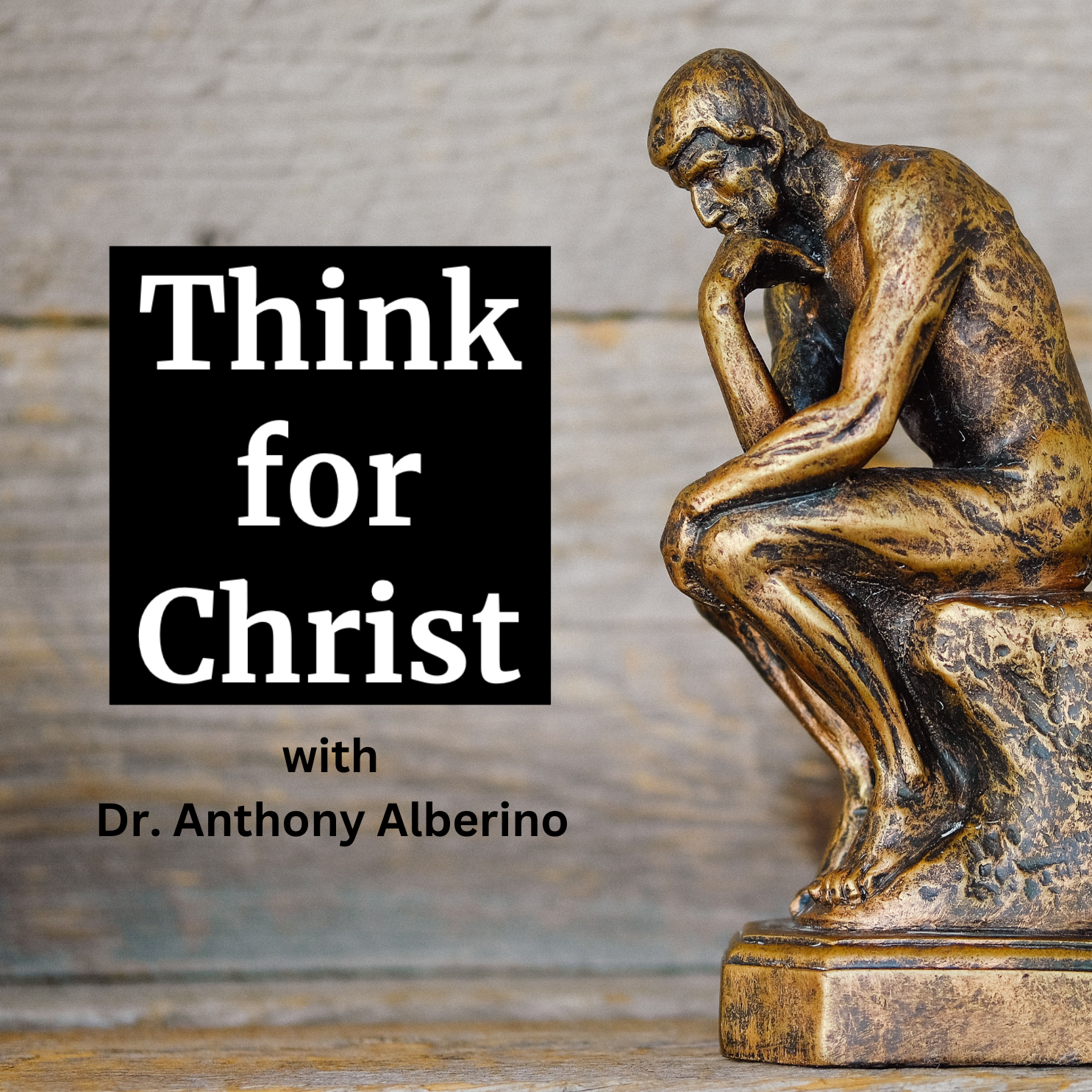 Think for ChristThe Euthyphro Dilemma with Dr. Brian HufflingAnthony and Andrew are joined by philosopher Brian Huffling to discuss the Euthyphro Dilemma and God's relation to human morality.2024-08-161h 15
Think for ChristThe Euthyphro Dilemma with Dr. Brian HufflingAnthony and Andrew are joined by philosopher Brian Huffling to discuss the Euthyphro Dilemma and God's relation to human morality.2024-08-161h 15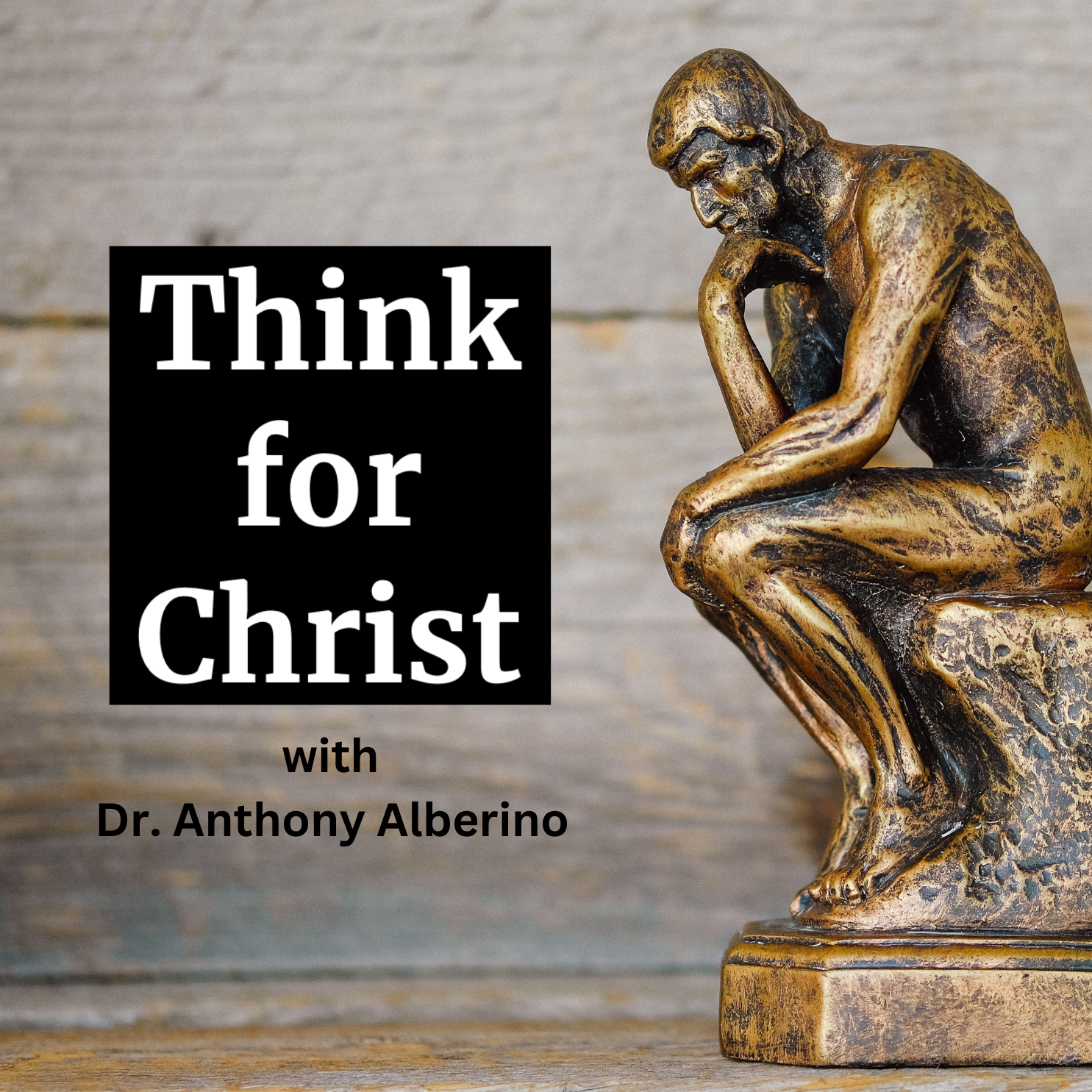 Think for ChristWilliam Lane Craig's Moral ArgumentIn Part 20 of this Introduction to Apologetics series we look at the moral argument as defended by philosopher and theologian William Lane Craig. Craig's argument is in deductive form with two clear premises which makes it a good example of an approach that argues from our evident moral experience to the necessity of God to ground the truth of that experience.2024-08-0226 min
Think for ChristWilliam Lane Craig's Moral ArgumentIn Part 20 of this Introduction to Apologetics series we look at the moral argument as defended by philosopher and theologian William Lane Craig. Craig's argument is in deductive form with two clear premises which makes it a good example of an approach that argues from our evident moral experience to the necessity of God to ground the truth of that experience.2024-08-0226 min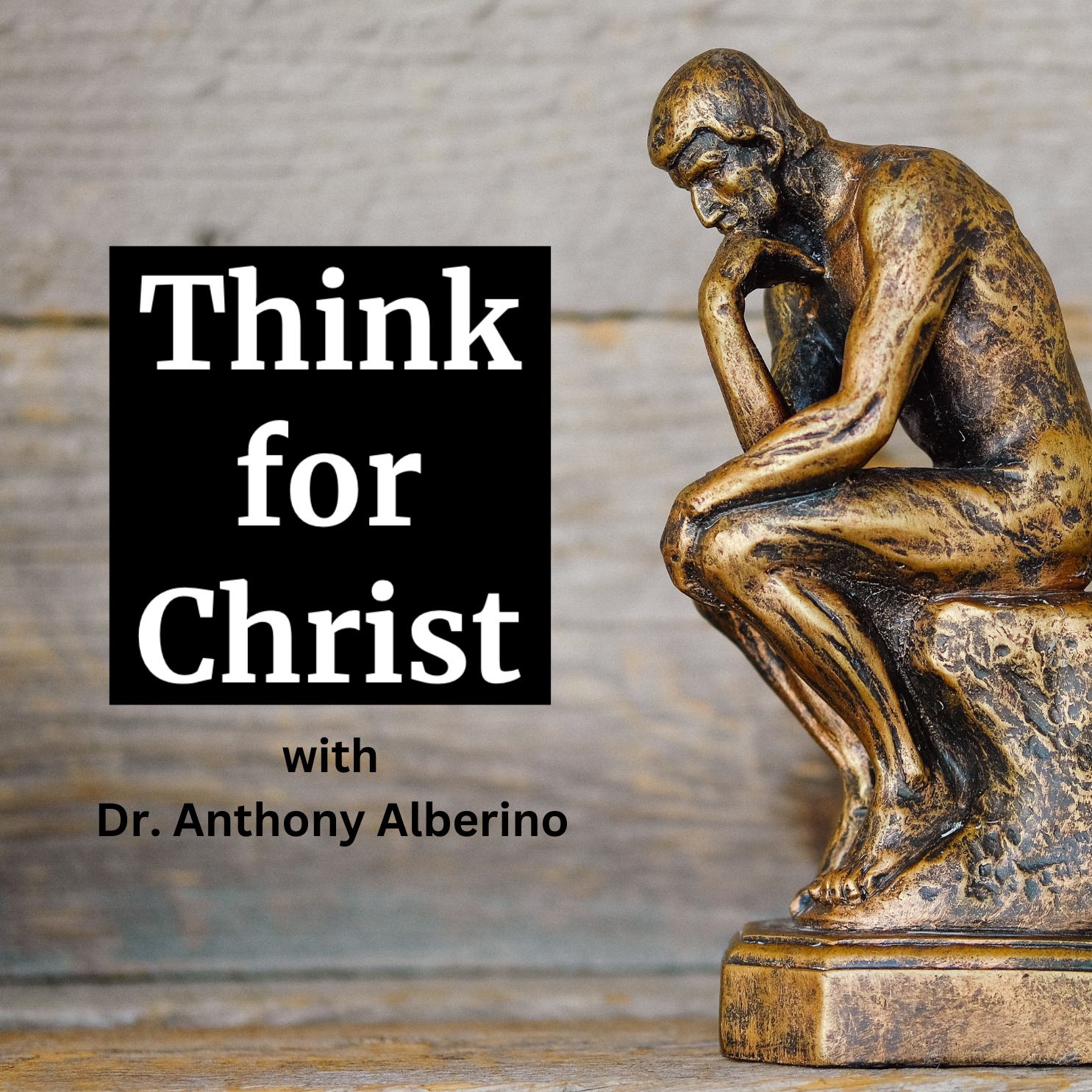 Think for ChristDr. Andrew Payne joins the Think for Christ team!Meet Dr. Andrew Payne, the newest addition to the Think for Christ team. In this video Anthony Alberino interviews Andrew on his background and academic training.2024-07-2350 min
Think for ChristDr. Andrew Payne joins the Think for Christ team!Meet Dr. Andrew Payne, the newest addition to the Think for Christ team. In this video Anthony Alberino interviews Andrew on his background and academic training.2024-07-2350 min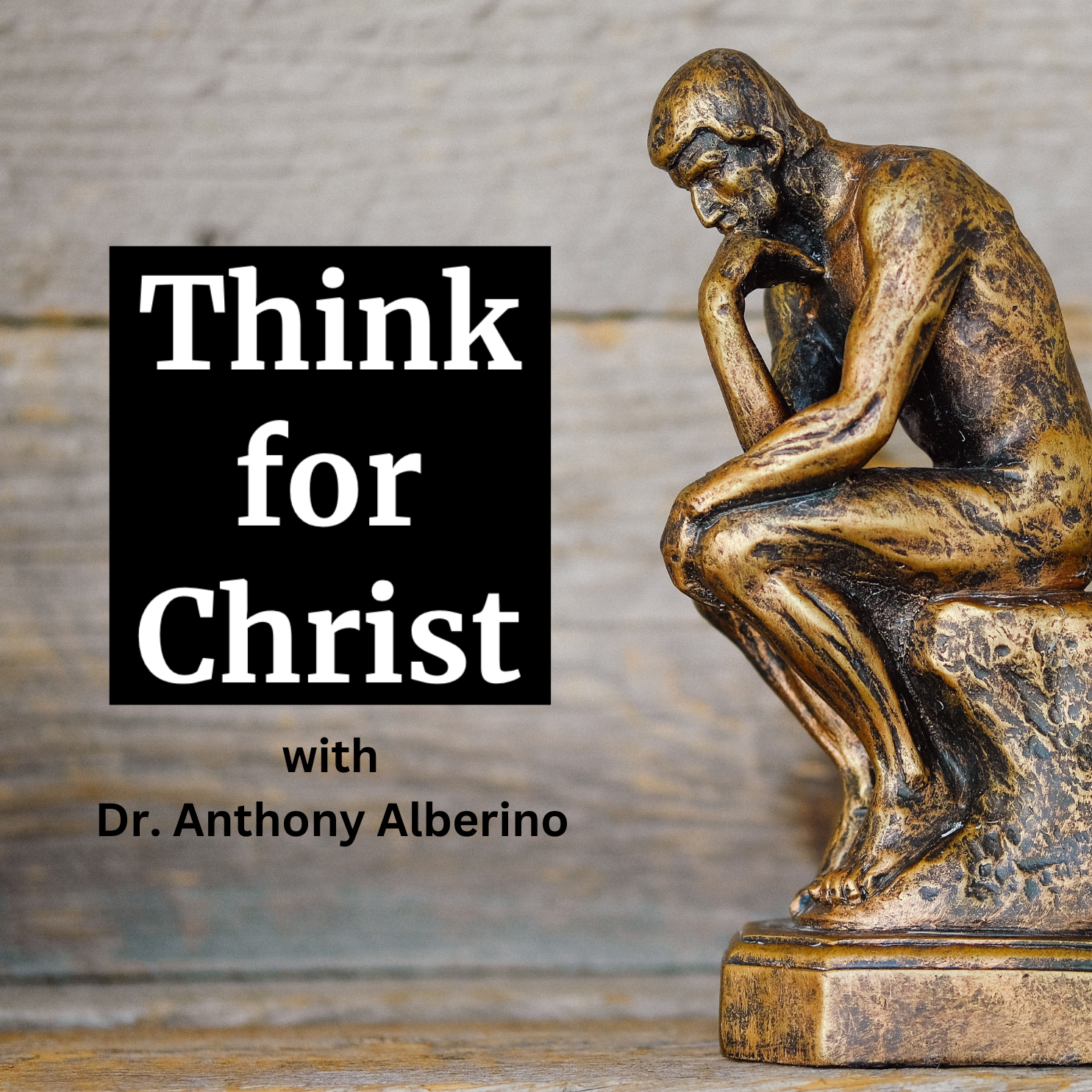 Think for ChristIntroduction to the Moral ArgumentIn Part 19 of this Introduction to Apologetics series we begin our look at the Moral Argument for the existence of God which argues that God's existence is necessary to account for our moral experience, that God's existence is more probable given our moral experience, or that God is the best explanation for our moral experience.2024-07-1911 min
Think for ChristIntroduction to the Moral ArgumentIn Part 19 of this Introduction to Apologetics series we begin our look at the Moral Argument for the existence of God which argues that God's existence is necessary to account for our moral experience, that God's existence is more probable given our moral experience, or that God is the best explanation for our moral experience.2024-07-1911 min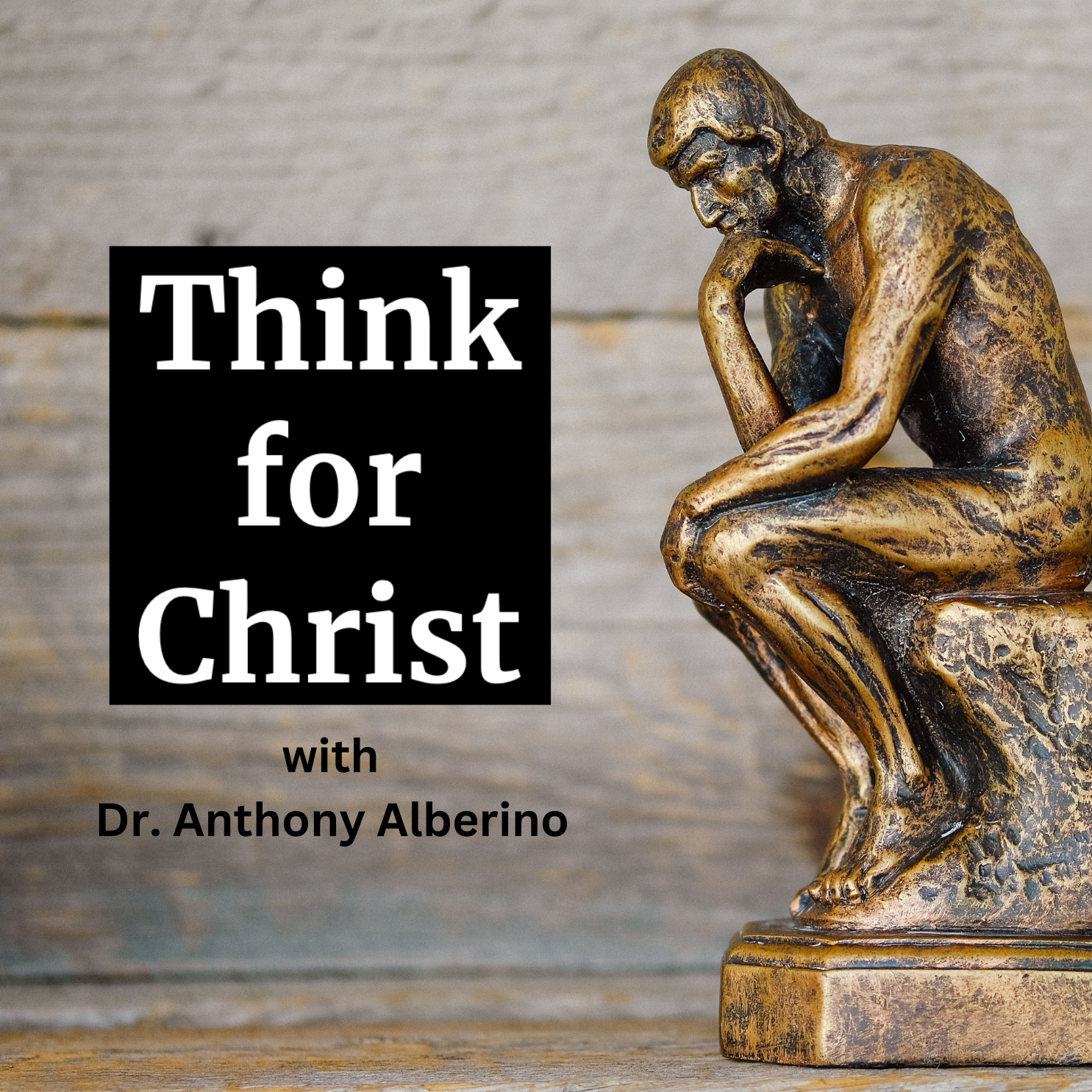 Think for ChristThe Fine-Tuning of the UniverseIn Part 18 of this Introduction to Apologetics series we look at the incredible discovery that the fundamental features of the universe are finely tuned for the existence of life.2024-07-0230 min
Think for ChristThe Fine-Tuning of the UniverseIn Part 18 of this Introduction to Apologetics series we look at the incredible discovery that the fundamental features of the universe are finely tuned for the existence of life.2024-07-0230 min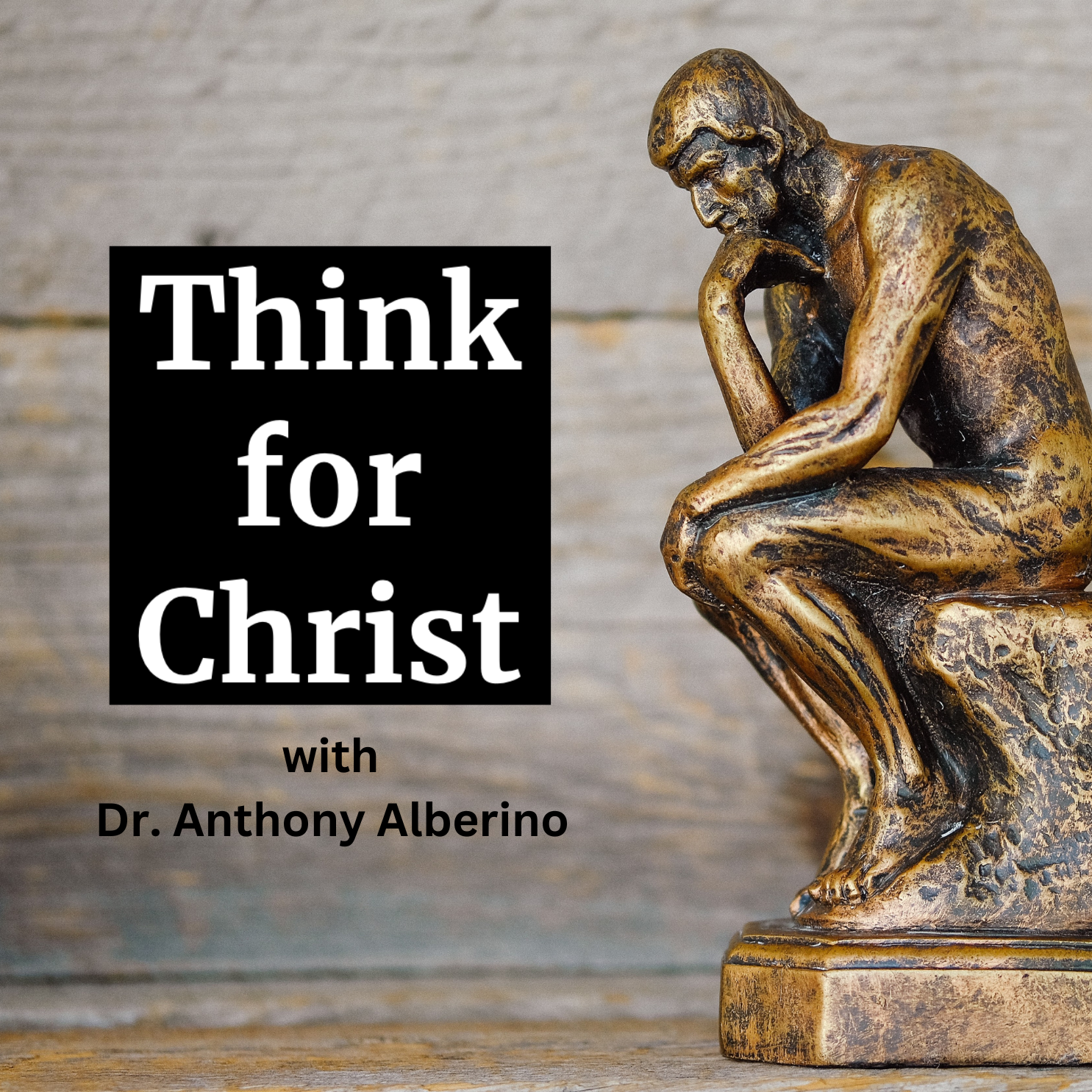 Think for ChristThe Fifth Way of Thomas AquinasIn Part 17 of this Introduction to Apologetics series we look at the "Fifth Way" given by Thomas Aquinas in his Summa Theologica for demonstrating God's existence. Although the Fifth Way is frequently mistaken as an empirical argument for "Intelligent Design," Aquinas is actually pointing to much deeper metaphysical realities that can only, in principle, be explained by appeal to a supernatural intelligence.2024-06-1129 min
Think for ChristThe Fifth Way of Thomas AquinasIn Part 17 of this Introduction to Apologetics series we look at the "Fifth Way" given by Thomas Aquinas in his Summa Theologica for demonstrating God's existence. Although the Fifth Way is frequently mistaken as an empirical argument for "Intelligent Design," Aquinas is actually pointing to much deeper metaphysical realities that can only, in principle, be explained by appeal to a supernatural intelligence.2024-06-1129 min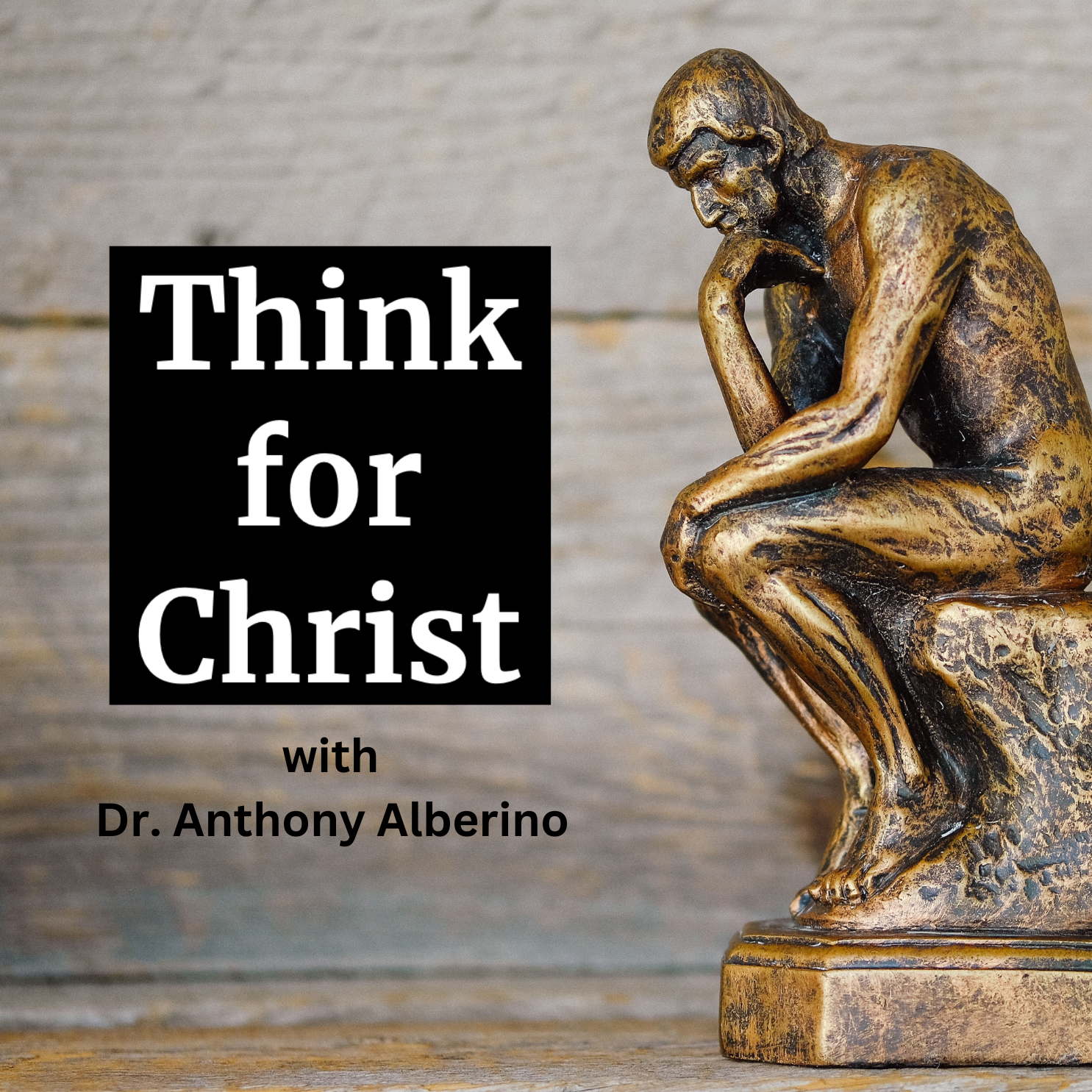 Think for ChristThe Fundamental Order of the UniverseSometimes it is objected that disorder in the universe is just as prevalent as order. In this video I try to show why this idea is confused. Order, structure, regularity, and harmony are primal to being itself while disorder, randomness, and chance are accidental among beings.2024-05-2208 min
Think for ChristThe Fundamental Order of the UniverseSometimes it is objected that disorder in the universe is just as prevalent as order. In this video I try to show why this idea is confused. Order, structure, regularity, and harmony are primal to being itself while disorder, randomness, and chance are accidental among beings.2024-05-2208 min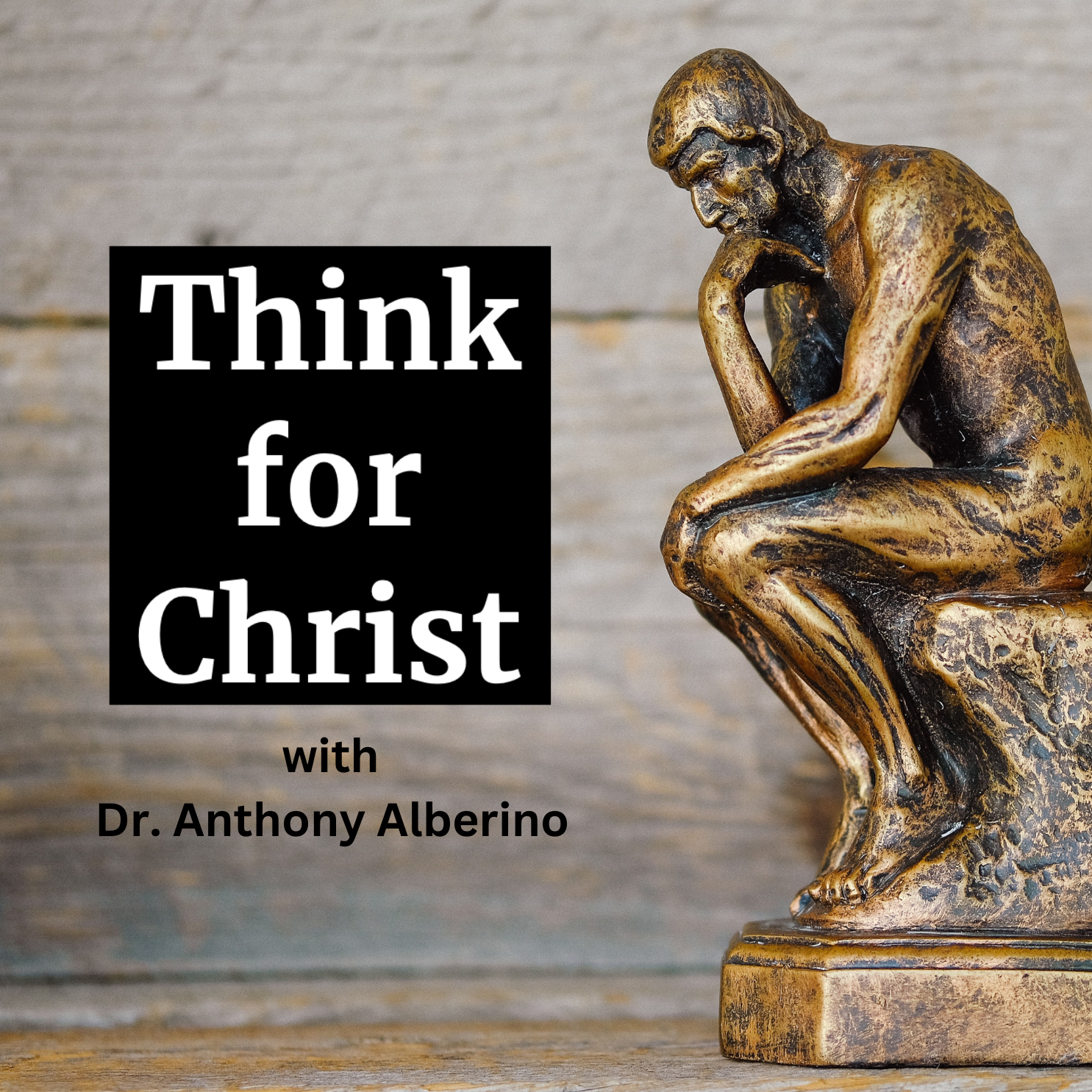 Think for ChristIntroduction to the Teleological ArgumentIn Part 16 of this Introduction to Apologetics series we begin our look at the teleological argument for God. Also known as the argument from design, or the design argument, the teleological argument begins from features of the universe that exhibit order, structure, harmony, beauty, and intelligibility and from them infers the existence of a designing intelligence.2024-05-0911 min
Think for ChristIntroduction to the Teleological ArgumentIn Part 16 of this Introduction to Apologetics series we begin our look at the teleological argument for God. Also known as the argument from design, or the design argument, the teleological argument begins from features of the universe that exhibit order, structure, harmony, beauty, and intelligibility and from them infers the existence of a designing intelligence.2024-05-0911 min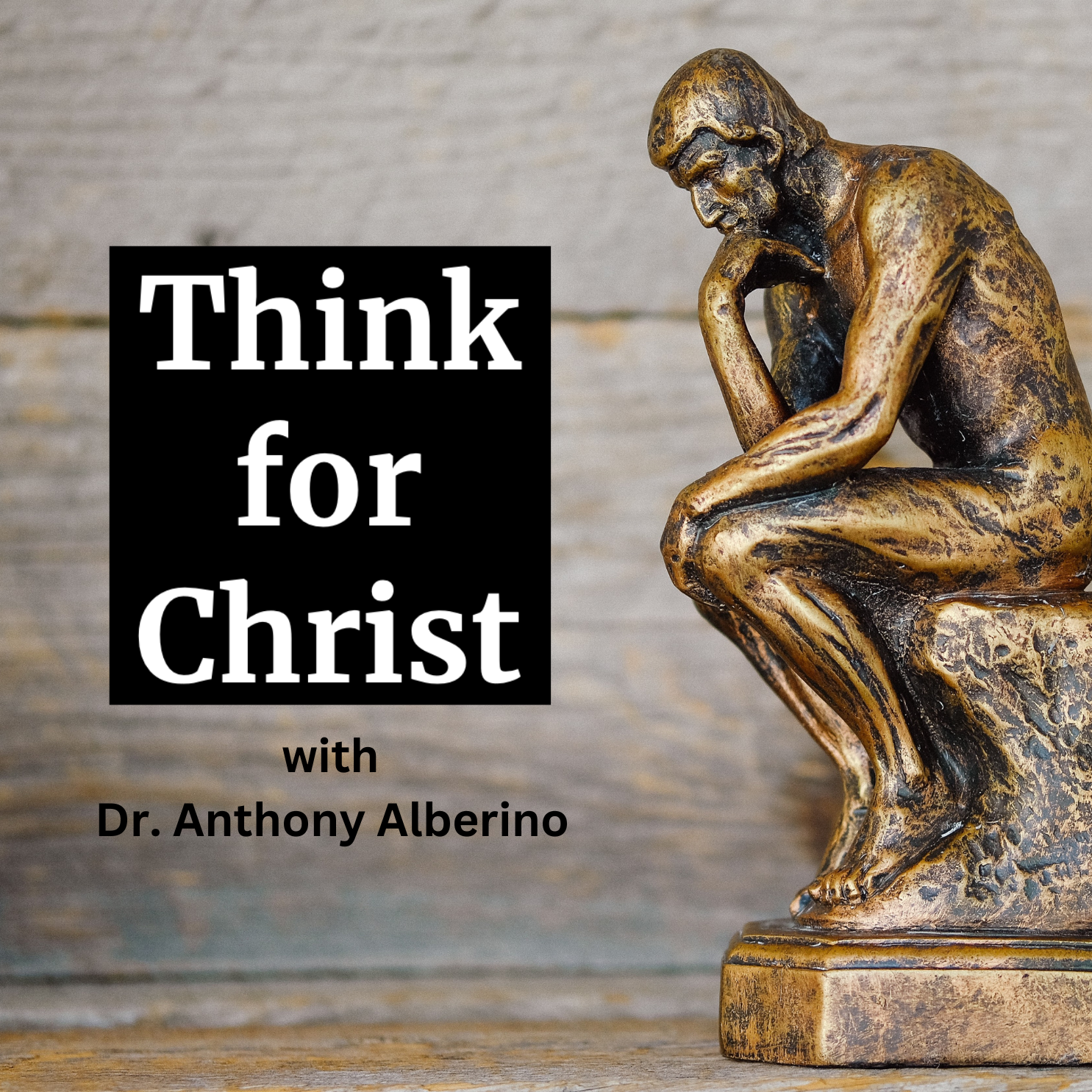 Think for ChristThe Thomistic Cosmological ArgumentIn Part 15 of this Introduction to Apologetics we look at an argument for the existence of God by the Medieval theologian and philosopher Thomas Aquinas.2024-04-2431 min
Think for ChristThe Thomistic Cosmological ArgumentIn Part 15 of this Introduction to Apologetics we look at an argument for the existence of God by the Medieval theologian and philosopher Thomas Aquinas.2024-04-2431 min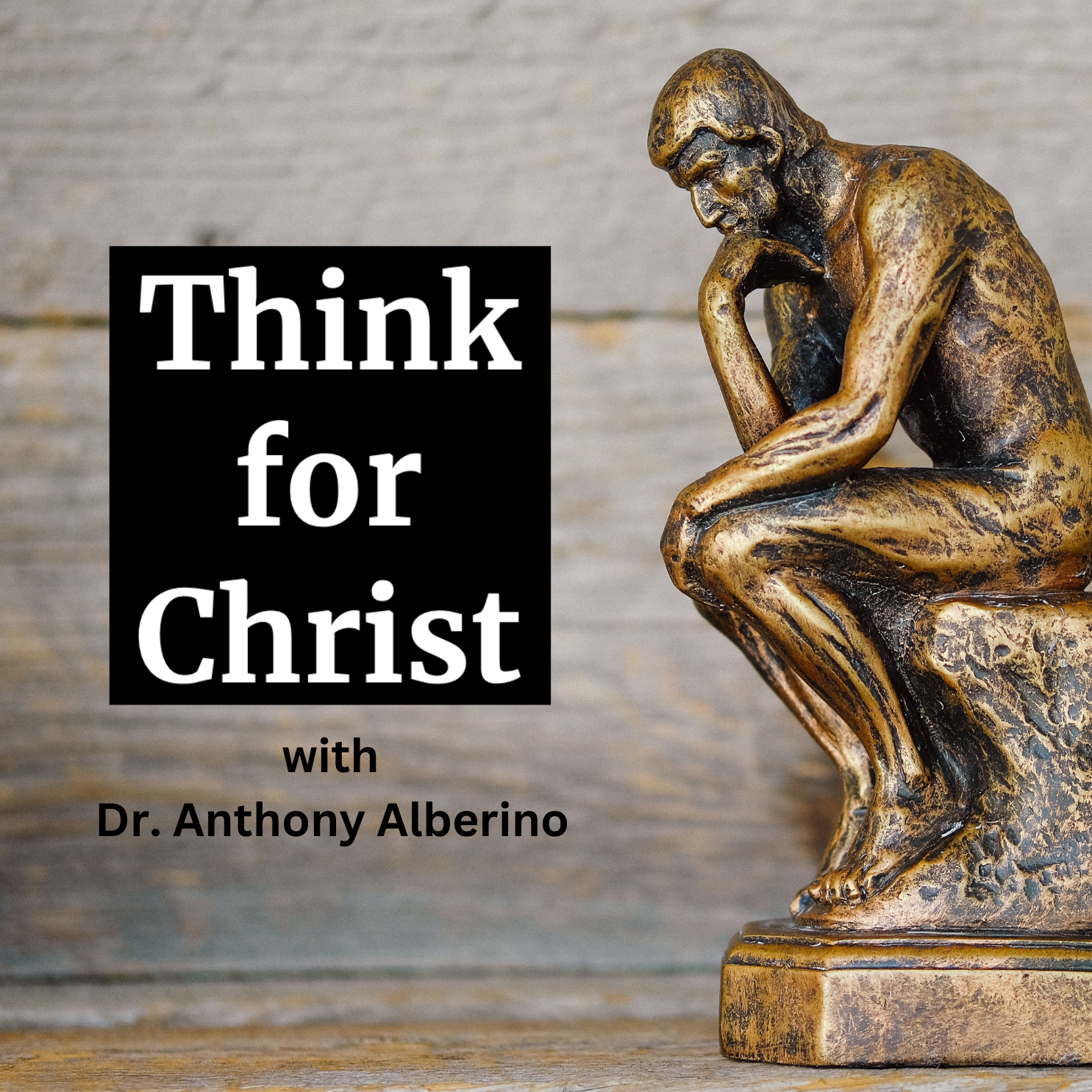 Think for ChristThe Kalam Cosmological Argument Part 2In Part 14 of this Introduction to Apologetics we continue our look at a version of the cosmological argument for God called the Kalam Cosmological Argument.2024-03-2522 min
Think for ChristThe Kalam Cosmological Argument Part 2In Part 14 of this Introduction to Apologetics we continue our look at a version of the cosmological argument for God called the Kalam Cosmological Argument.2024-03-2522 min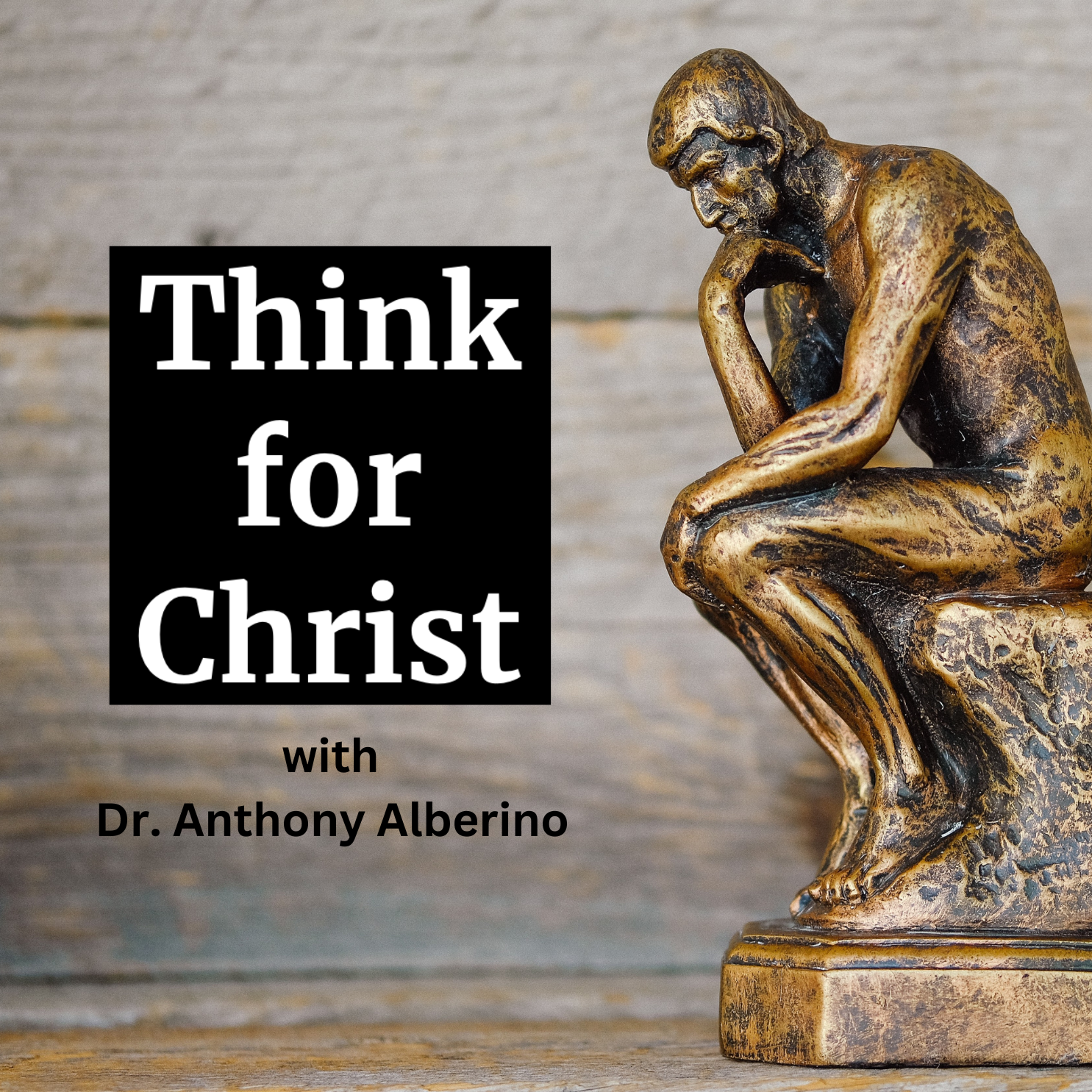 Think for ChristThe Kalam Cosmological Argument Part 1In Part 13 of this Introduction to Apologetics we consider a version of the cosmological argument for God called the Kalam Cosmological Argument.2024-03-1129 min
Think for ChristThe Kalam Cosmological Argument Part 1In Part 13 of this Introduction to Apologetics we consider a version of the cosmological argument for God called the Kalam Cosmological Argument.2024-03-1129 min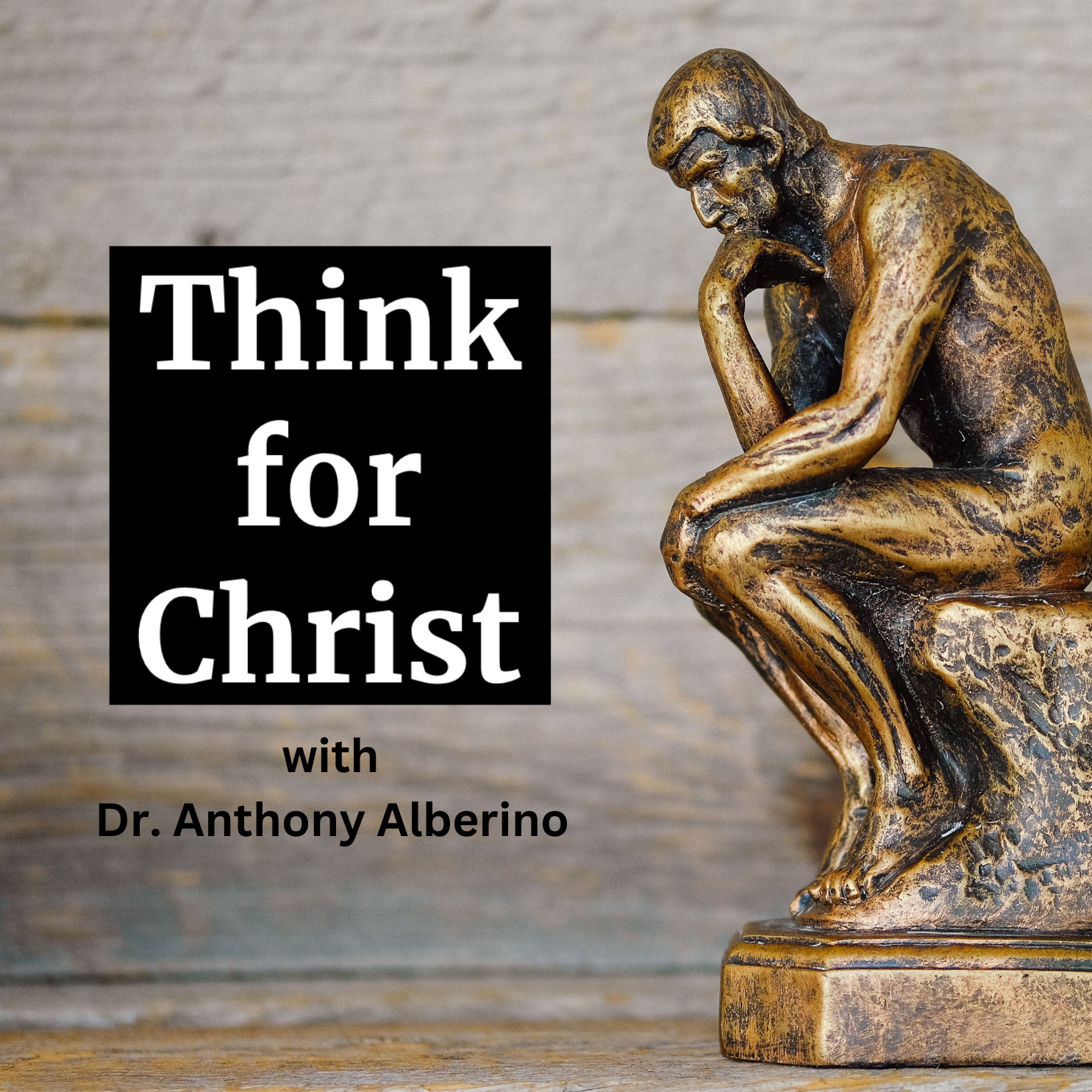 Think for ChristThe Leibnizian Cosmological ArgumentIn Part 12 of this Introduction to Apologetics we consider a version of the cosmological argument for God a formulated and influenced by G. W. Leibniz.2024-02-2126 min
Think for ChristThe Leibnizian Cosmological ArgumentIn Part 12 of this Introduction to Apologetics we consider a version of the cosmological argument for God a formulated and influenced by G. W. Leibniz.2024-02-2126 min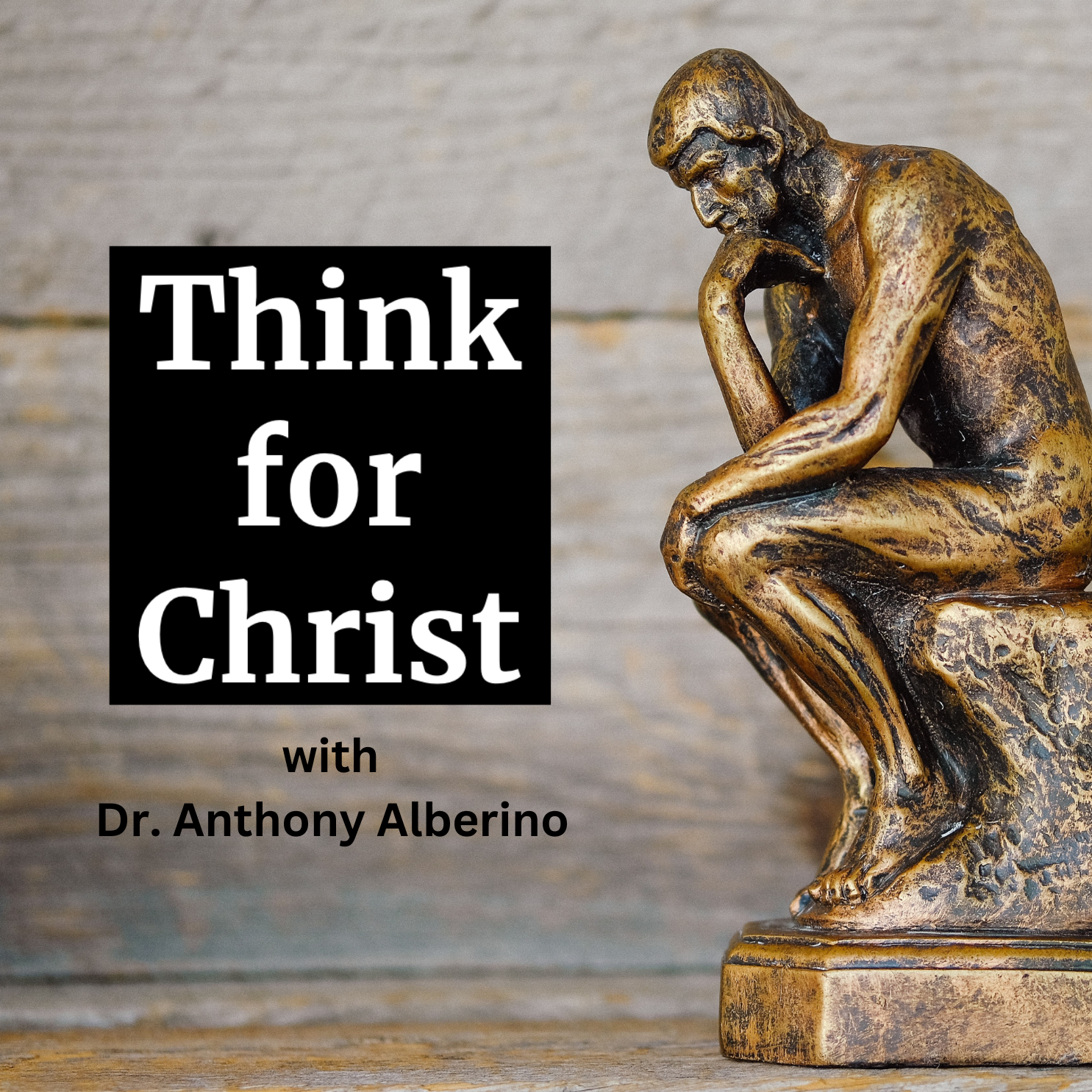 Think for ChristThe First Cause Argument with Dr. Robert KoonsDr. Rob Koons joins me on Think for Christ to walk us through his formulation of the First Cause Argument. To find resources from Dr. Koons' work, including his published books, articles, and interviews visit his personal website at https://robkoons.net.2024-02-0659 min
Think for ChristThe First Cause Argument with Dr. Robert KoonsDr. Rob Koons joins me on Think for Christ to walk us through his formulation of the First Cause Argument. To find resources from Dr. Koons' work, including his published books, articles, and interviews visit his personal website at https://robkoons.net.2024-02-0659 min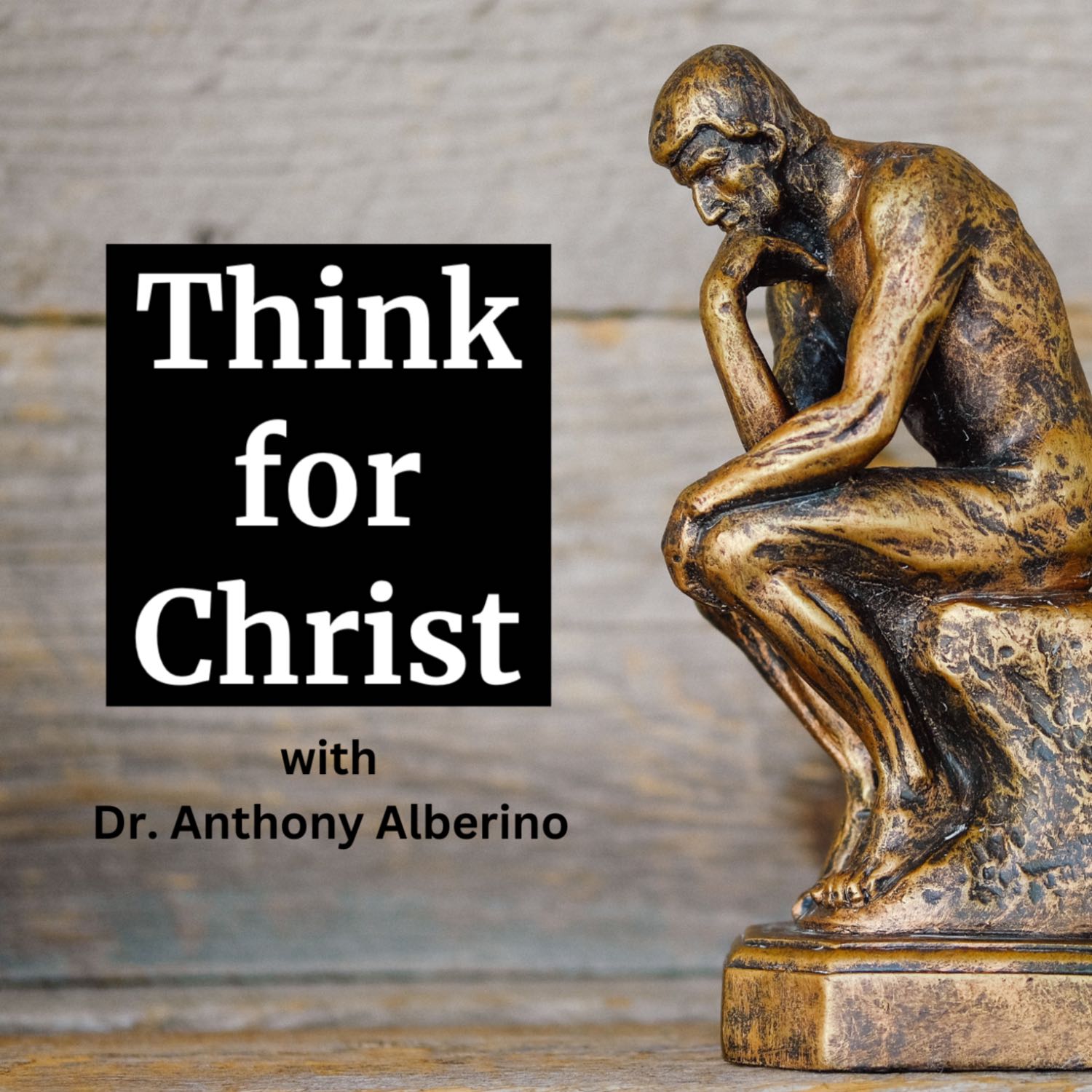 Think for ChristIntroduction to the Cosmological ArgumentIn Part 11 of this Introduction to Apologetics we begin our look at the cosmological argument which, in its various forms, seeks to show that God is the ultimate reality and ultimate explanation for the existence of the universe.2024-01-2215 min
Think for ChristIntroduction to the Cosmological ArgumentIn Part 11 of this Introduction to Apologetics we begin our look at the cosmological argument which, in its various forms, seeks to show that God is the ultimate reality and ultimate explanation for the existence of the universe.2024-01-2215 min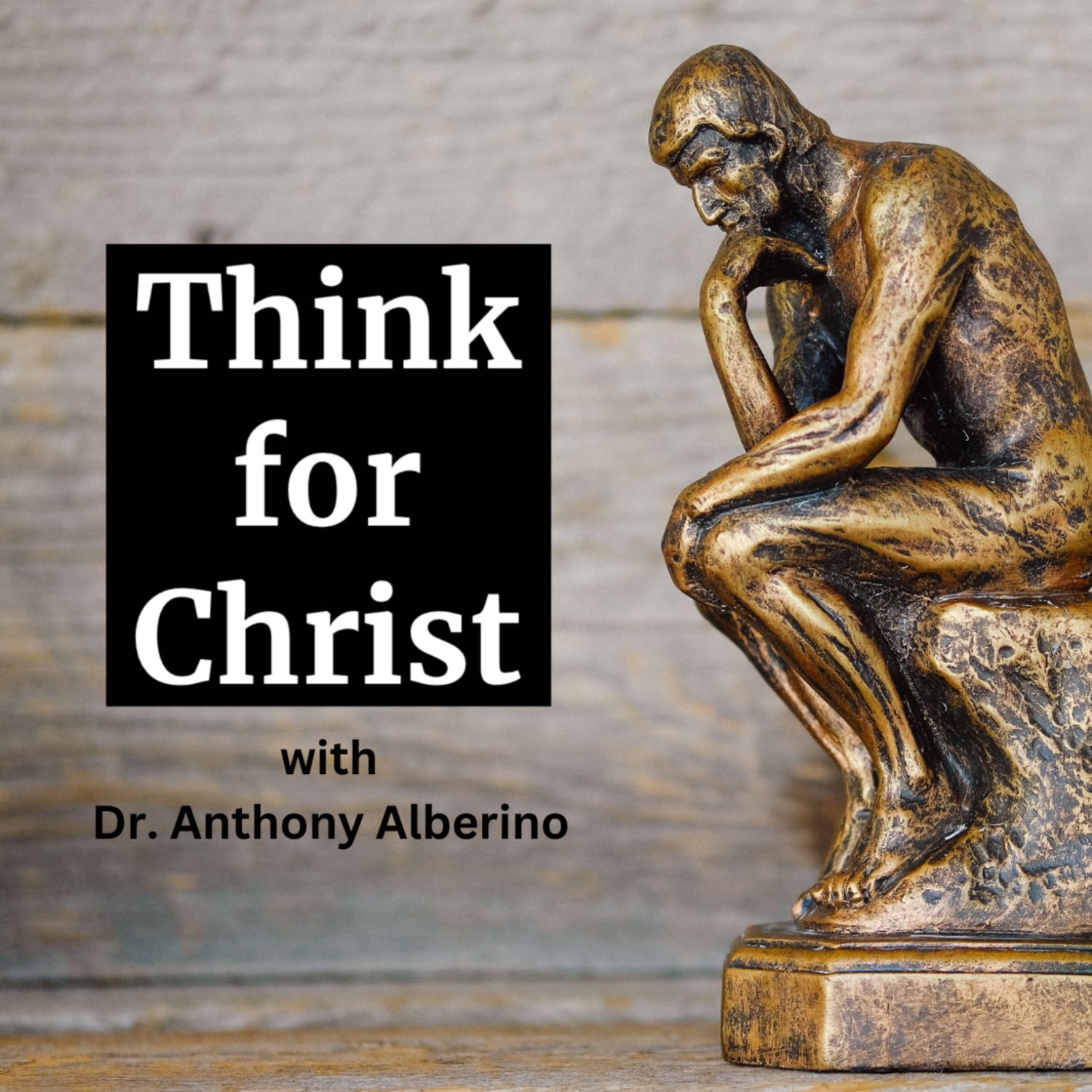 Think for ChristOn Arguments for TheismIn Part 10 of this Introduction to Apologetics we set the stage for the next step of the classical method of apologetics with an introductory look at the project of arguing for the existence of God.2024-01-0919 min
Think for ChristOn Arguments for TheismIn Part 10 of this Introduction to Apologetics we set the stage for the next step of the classical method of apologetics with an introductory look at the project of arguing for the existence of God.2024-01-0919 min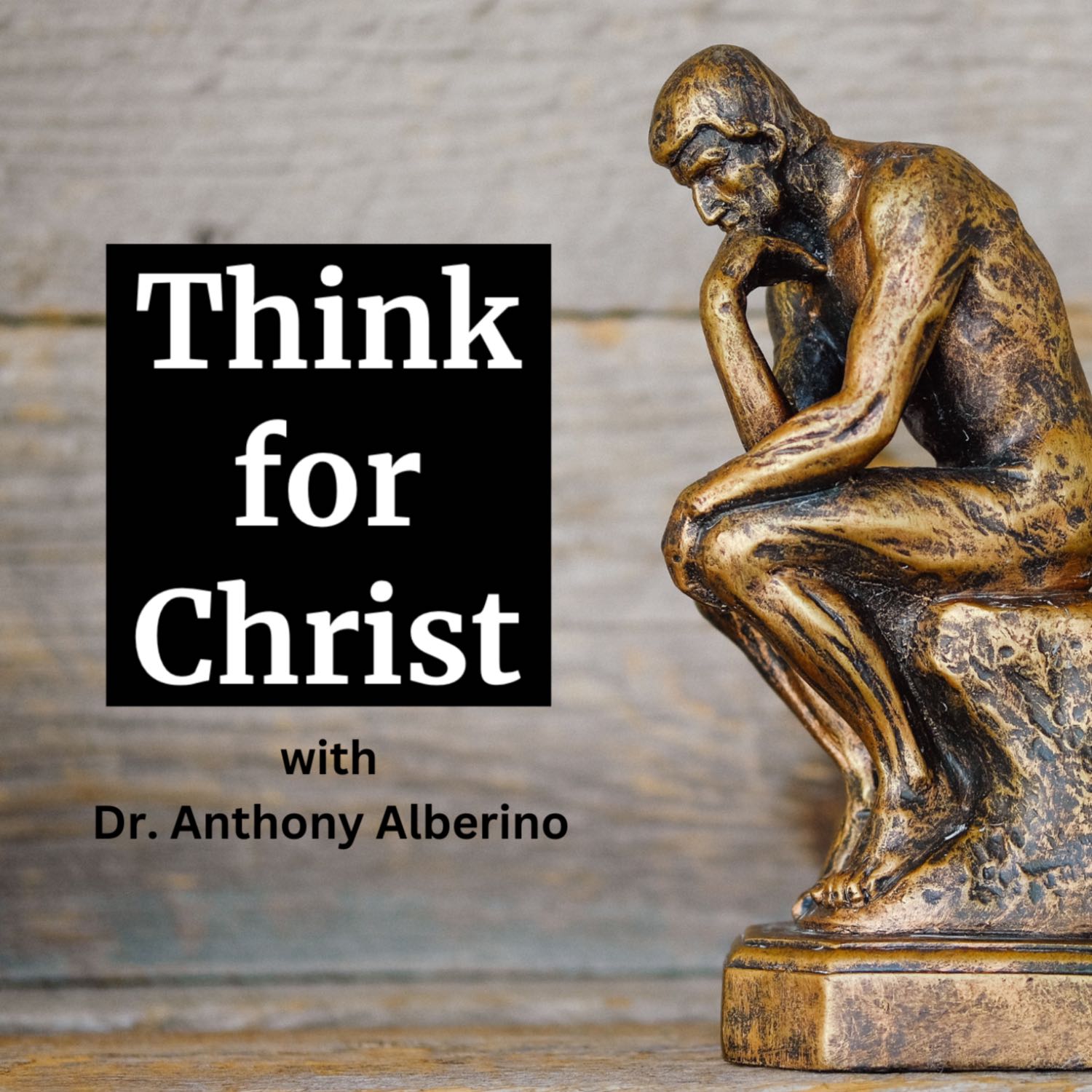 Think for ChristHow Theology Needs PhilosophyHow should we think about the relationship between theology and philosophy? This is the question we are going to tackle in this episode of Think for Christ. To help us work through it, I'm joined by a Christian philosopher who I consider to be leading voice in this important conversation, Dr. Richard Howe.2023-12-151h 34
Think for ChristHow Theology Needs PhilosophyHow should we think about the relationship between theology and philosophy? This is the question we are going to tackle in this episode of Think for Christ. To help us work through it, I'm joined by a Christian philosopher who I consider to be leading voice in this important conversation, Dr. Richard Howe.2023-12-151h 34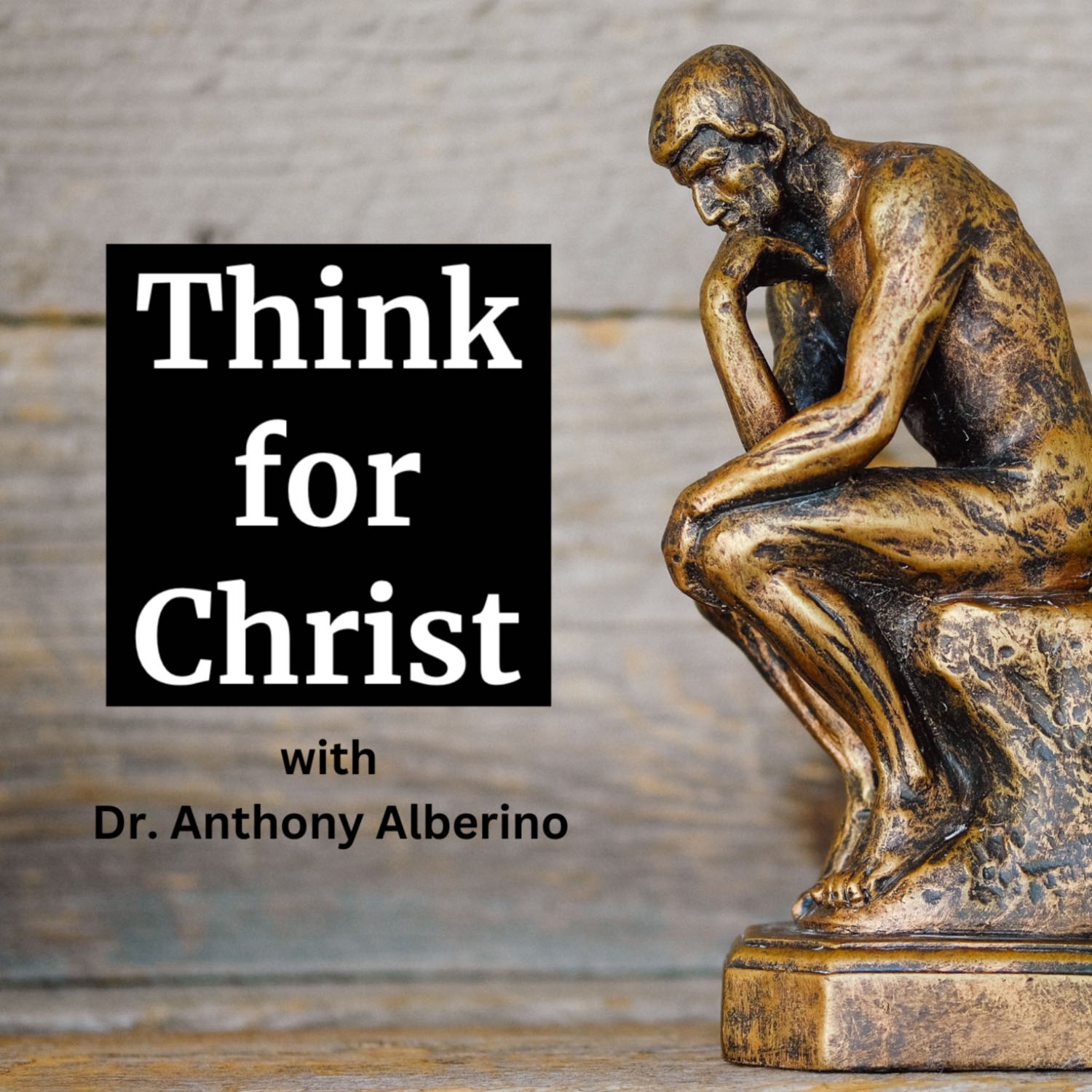 Think for ChristIs Science at War with Faith?In Part 9 of this Introduction to Apologetics we continue our consideration of the relationship between science and faith. The question we tackle here is this: Is science at war with Christian theism?2023-12-0419 min
Think for ChristIs Science at War with Faith?In Part 9 of this Introduction to Apologetics we continue our consideration of the relationship between science and faith. The question we tackle here is this: Is science at war with Christian theism?2023-12-0419 min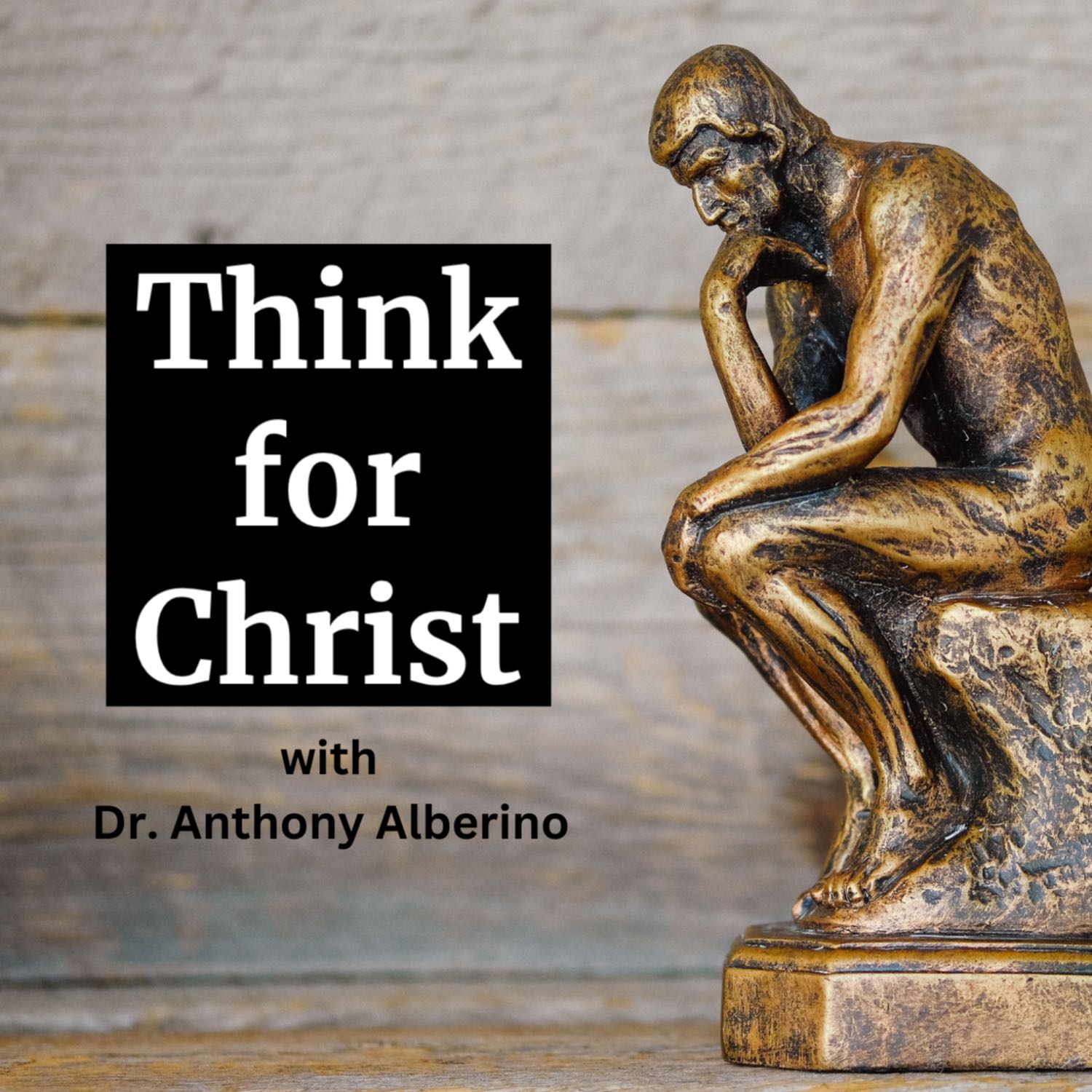 Think for ChristScientismIn Part 8 of this Introduction to Apologetics we begin our consideration of the next foundational issue regarding the relationship between science and faith. The first question we tackle is this: Is science the only valid or trustworthy source of truth about reality? Those who answer 'yes' to this question endorse the anti-Christian position known as scientism.2023-11-2415 min
Think for ChristScientismIn Part 8 of this Introduction to Apologetics we begin our consideration of the next foundational issue regarding the relationship between science and faith. The first question we tackle is this: Is science the only valid or trustworthy source of truth about reality? Those who answer 'yes' to this question endorse the anti-Christian position known as scientism.2023-11-2415 min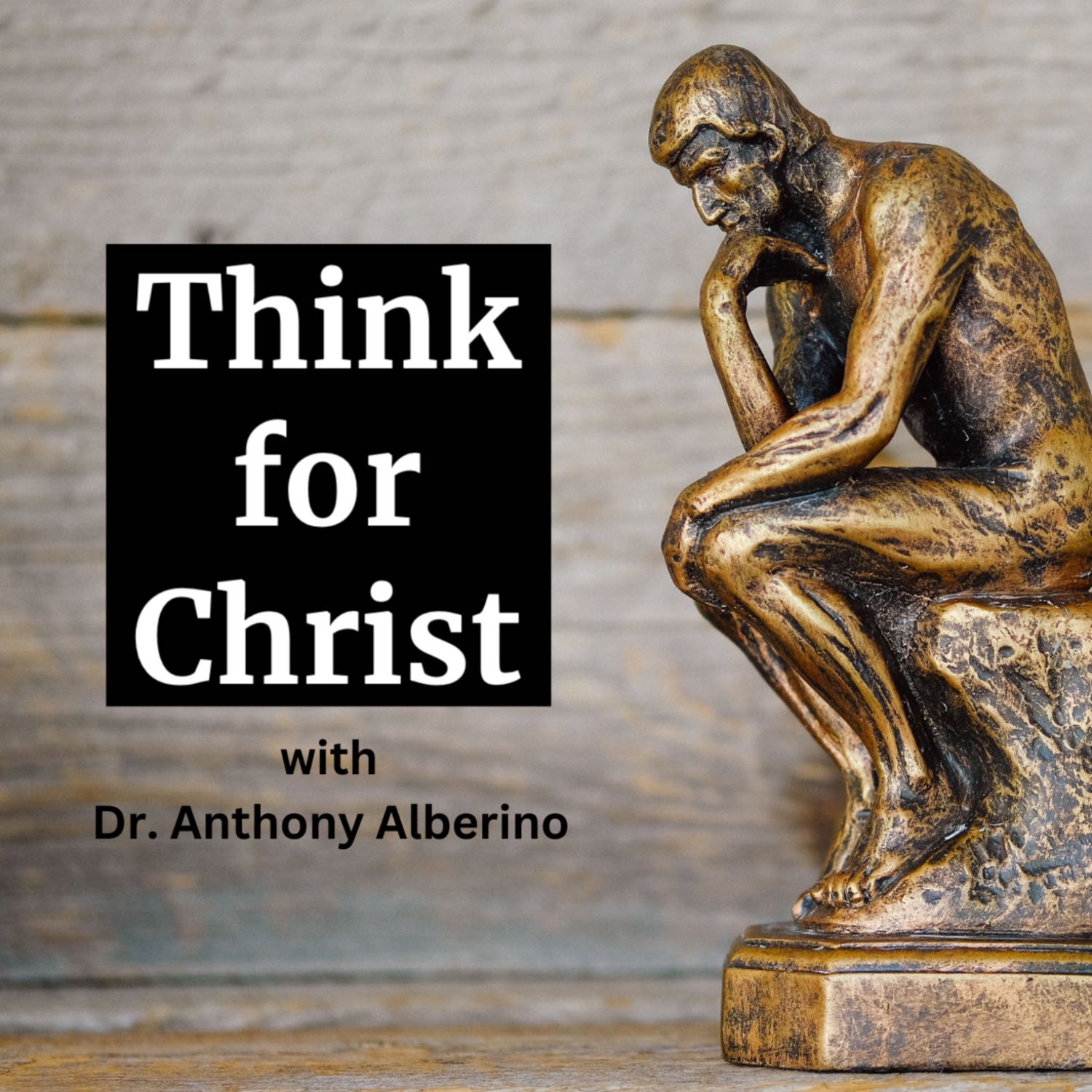 Think for ChristWhat is Truth?In Part 7 of this Introduction to Apologetics we consider the foundational question, What is truth? Is what is true, true for me, or true for everyone? Is truth relative or absolute, subjective or objective? What about tolerance? And don't all religions basically teach the same thing? These are questions that we take up in this episode of Think for Christ.2023-11-1330 min
Think for ChristWhat is Truth?In Part 7 of this Introduction to Apologetics we consider the foundational question, What is truth? Is what is true, true for me, or true for everyone? Is truth relative or absolute, subjective or objective? What about tolerance? And don't all religions basically teach the same thing? These are questions that we take up in this episode of Think for Christ.2023-11-1330 min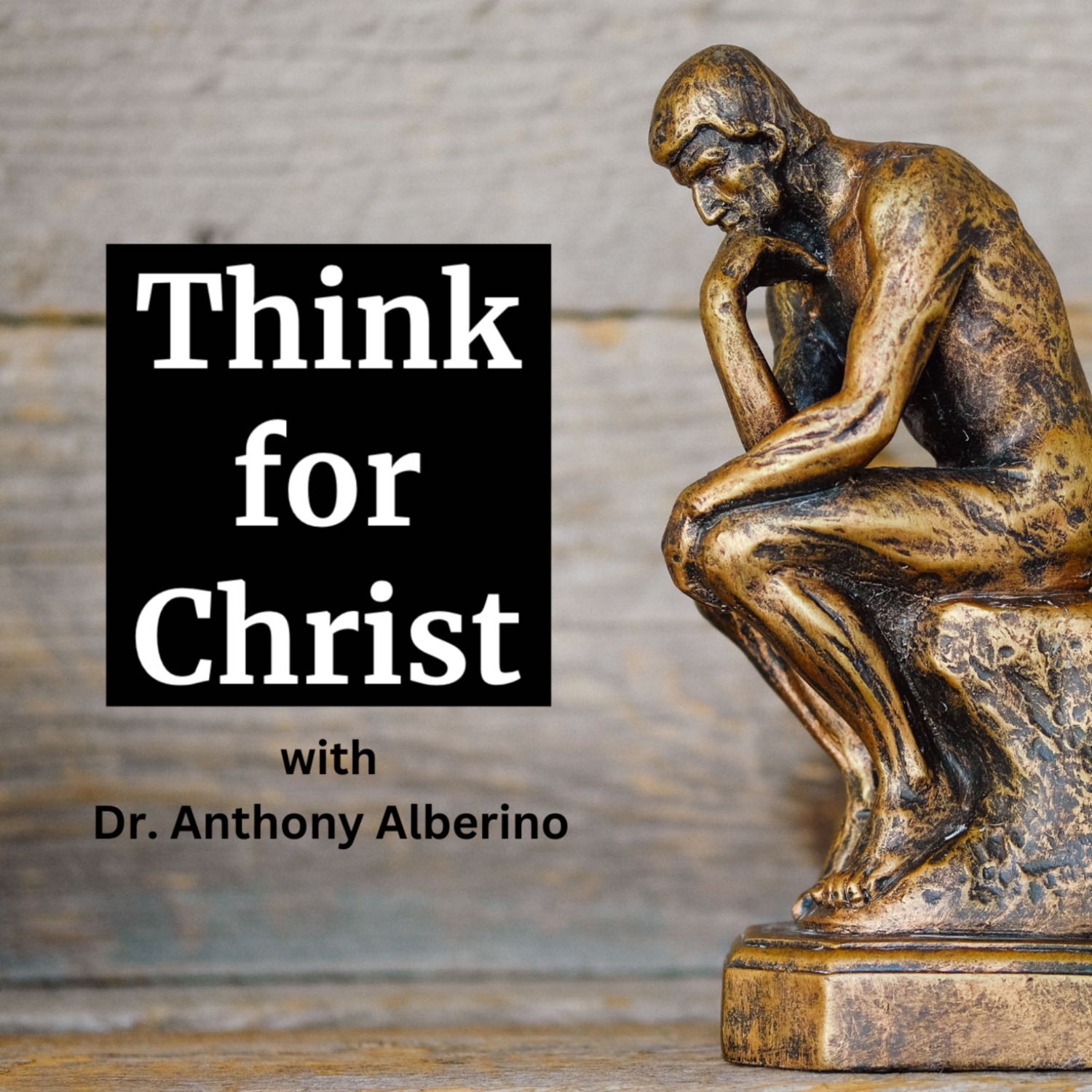 Think for ChristThe Classical Method of ApologeticsIn Part 6 of this Introduction to Apologetics series we begin our review of the science of apologetics by considering the classical 3-step method of making a reasoned case for Christianity.2023-10-3110 min
Think for ChristThe Classical Method of ApologeticsIn Part 6 of this Introduction to Apologetics series we begin our review of the science of apologetics by considering the classical 3-step method of making a reasoned case for Christianity.2023-10-3110 min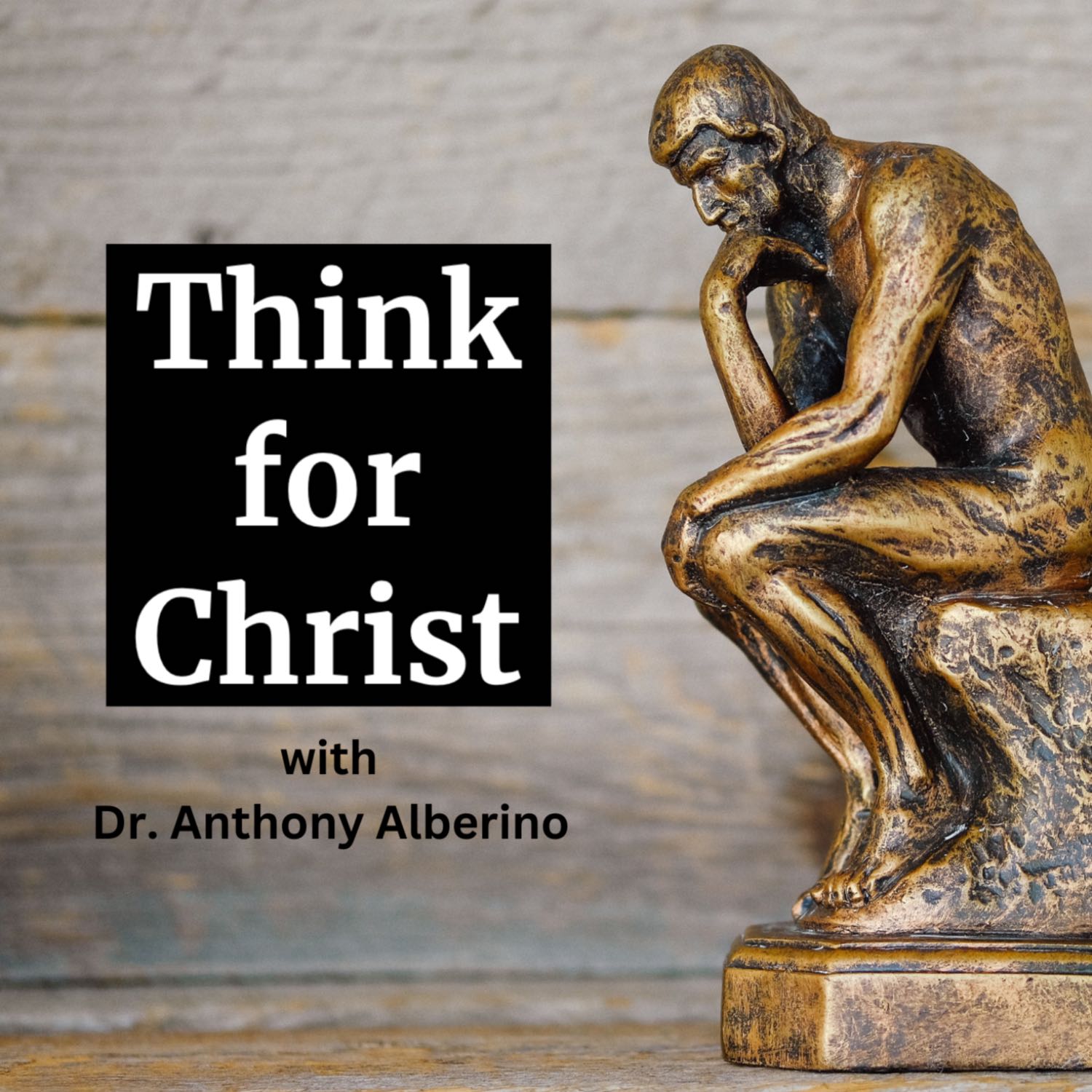 Think for ChristThe Witness of the Holy SpiritIn Part 5 of this Introduction to Apologetics series we consider the New Testament teaching about the inner witness of the Holy Spirit at work in the life of the believer and how this witness relates to the task of apologetics.2023-10-2214 min
Think for ChristThe Witness of the Holy SpiritIn Part 5 of this Introduction to Apologetics series we consider the New Testament teaching about the inner witness of the Holy Spirit at work in the life of the believer and how this witness relates to the task of apologetics.2023-10-2214 min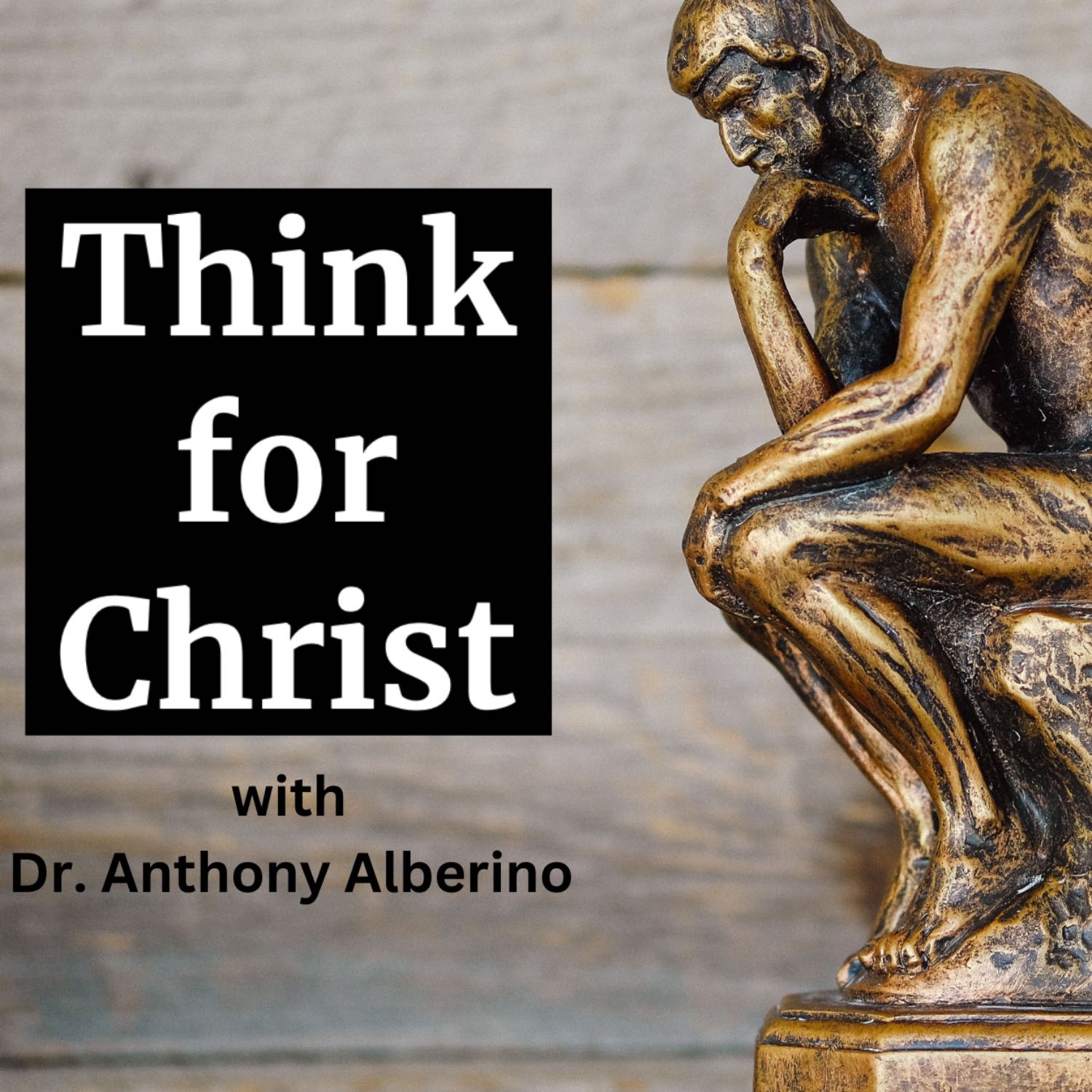 Think for Christ1-Year Anniversary!Thank you for a great year one!2023-10-1904 min
Think for Christ1-Year Anniversary!Thank you for a great year one!2023-10-1904 min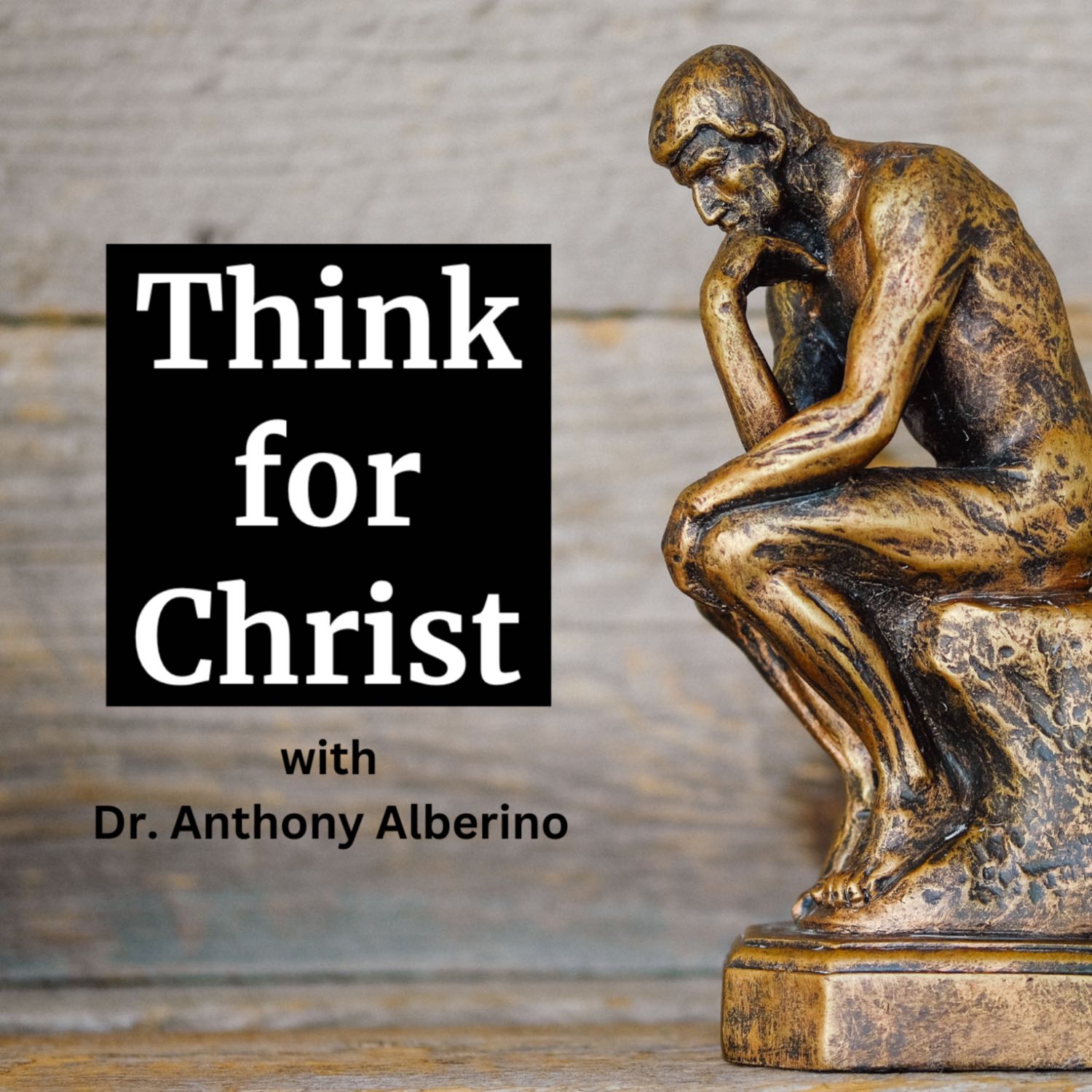 Think for ChristOn Faith and ReasonIn Part 4 of this Introduction to Apologetics series, we take up the question: What is the relationship between faith and reason? Is faith blind or irrational? Is reason opposed to faith? In this episode we look at the classical Christian view of faith and reason.2023-10-1421 min
Think for ChristOn Faith and ReasonIn Part 4 of this Introduction to Apologetics series, we take up the question: What is the relationship between faith and reason? Is faith blind or irrational? Is reason opposed to faith? In this episode we look at the classical Christian view of faith and reason.2023-10-1421 min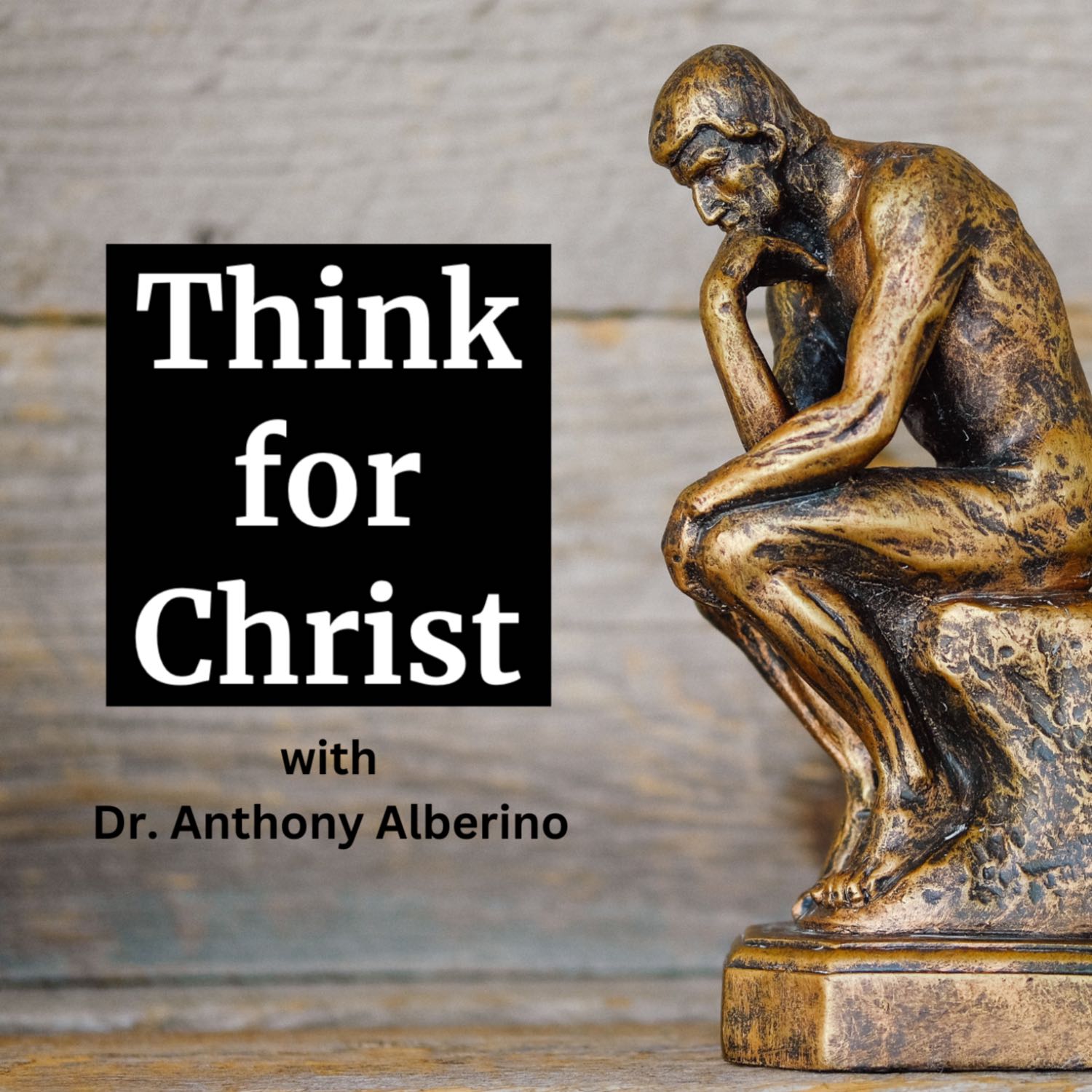 Think for ChristWhy Do Apologetics? How is It Related to Discipleship?In Part 3 of this Introduction to Apologetics series we consider the question: What is apologetics good for? What role can it play in the life of the Christian? These are the questions we take up in this third episode of our series Introduction to Apologetics.2023-10-0519 min
Think for ChristWhy Do Apologetics? How is It Related to Discipleship?In Part 3 of this Introduction to Apologetics series we consider the question: What is apologetics good for? What role can it play in the life of the Christian? These are the questions we take up in this third episode of our series Introduction to Apologetics.2023-10-0519 min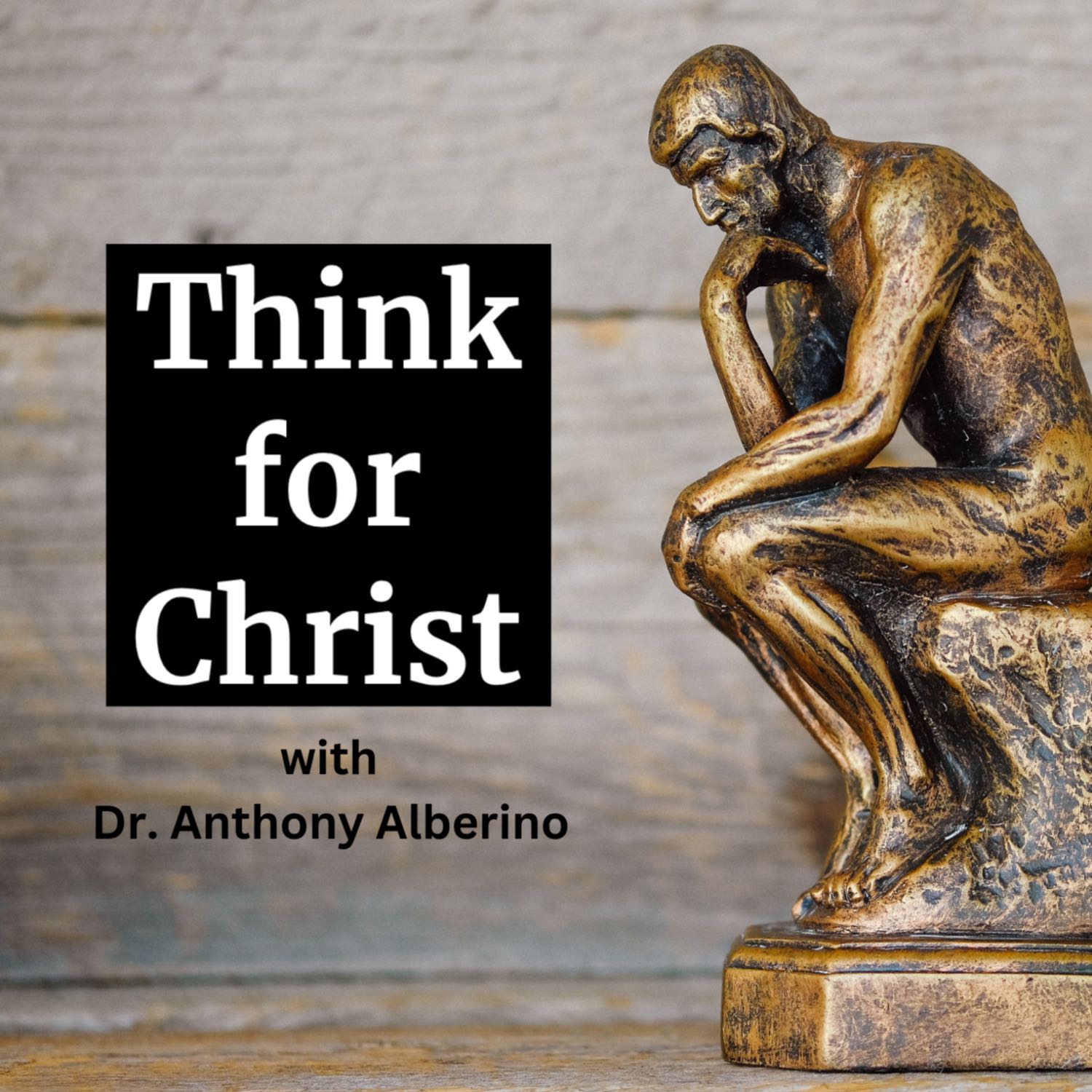 Think for ChristA Brief History of ApologeticsIn Part 2 of this Introduction to Apologetics series, we do a brief survey of apologetics as it has existed in the Church from the post-apostolic age to the present day.2023-09-2418 min
Think for ChristA Brief History of ApologeticsIn Part 2 of this Introduction to Apologetics series, we do a brief survey of apologetics as it has existed in the Church from the post-apostolic age to the present day.2023-09-2418 min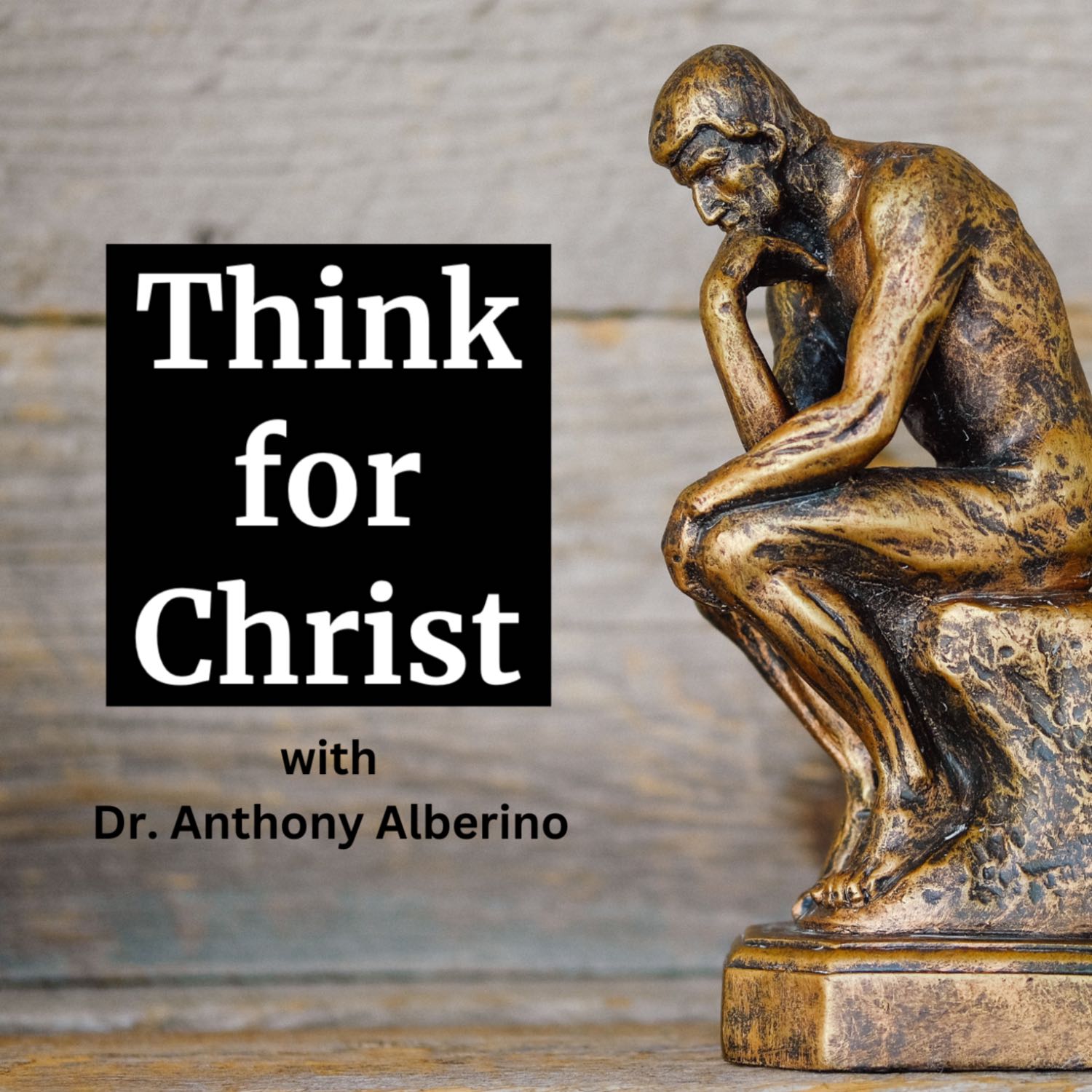 Think for ChristAquinas's Way to God with Dr. Gaven KerrGaven Kerr joins Anthony Alberino on Think for Christ to talk about Aquinas' original metaphysical insights and his unique and powerful argument for the existence of God that he draws from them as found in Aquinas' early work "On Being and Essence." Gaven has written a book length exposition of the argument in his fantastic 2015 work titled: Aquinas's Way to God: The Proof in De Ente et Essentia.2023-09-131h 19
Think for ChristAquinas's Way to God with Dr. Gaven KerrGaven Kerr joins Anthony Alberino on Think for Christ to talk about Aquinas' original metaphysical insights and his unique and powerful argument for the existence of God that he draws from them as found in Aquinas' early work "On Being and Essence." Gaven has written a book length exposition of the argument in his fantastic 2015 work titled: Aquinas's Way to God: The Proof in De Ente et Essentia.2023-09-131h 19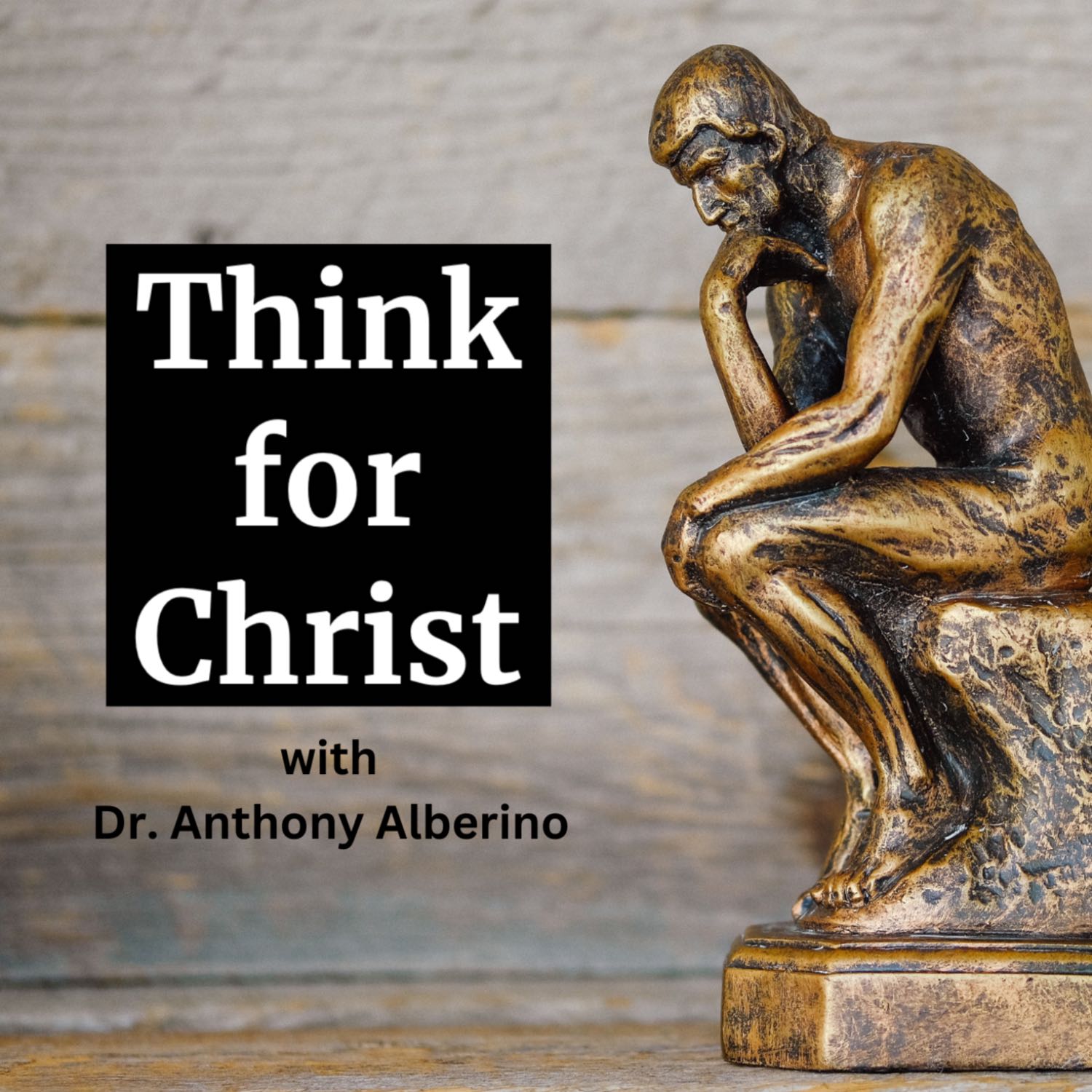 Think for ChristApologetics Defined and DefendedIn Part 1 of this Introduction to Apologetics series we begin by looking at the nature of apologetics. We then turn to consider the support for apologetics in the New Testamant.2023-09-0316 min
Think for ChristApologetics Defined and DefendedIn Part 1 of this Introduction to Apologetics series we begin by looking at the nature of apologetics. We then turn to consider the support for apologetics in the New Testamant.2023-09-0316 min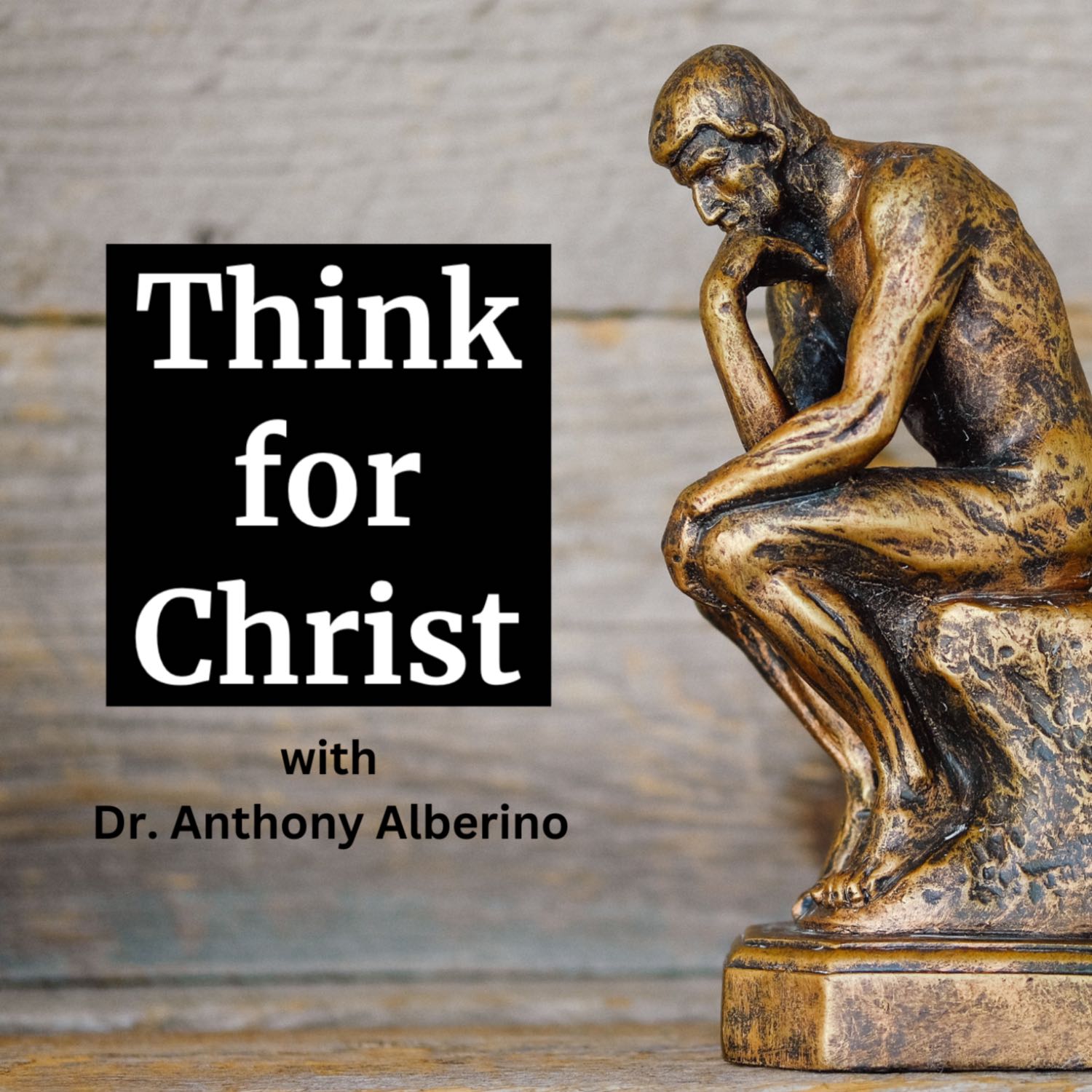 Think for ChristThe BEST Argument for God with Pat FlynnPat Flynn joins Anthony Alberino to discuss his latest book: The Best Argument for the Existence of God. Amazon link to Pat's book: https://www.amazon.com/Best-Argument-God-Patrick-Flynn/dp/1644137801/ref=sr_1_1?crid=23JG38HM01ZCR&keywords=the+best+argument+for+god+patrick+flynn&qid=1692900330&sprefix=the+best+argument+for+g%2Caps%2C229&sr=8-1 Link to Pat's YouTube Channel Philosophy for the People: https://www.youtube.com/@PhilosophyforthePeople/videos2023-08-241h 11
Think for ChristThe BEST Argument for God with Pat FlynnPat Flynn joins Anthony Alberino to discuss his latest book: The Best Argument for the Existence of God. Amazon link to Pat's book: https://www.amazon.com/Best-Argument-God-Patrick-Flynn/dp/1644137801/ref=sr_1_1?crid=23JG38HM01ZCR&keywords=the+best+argument+for+god+patrick+flynn&qid=1692900330&sprefix=the+best+argument+for+g%2Caps%2C229&sr=8-1 Link to Pat's YouTube Channel Philosophy for the People: https://www.youtube.com/@PhilosophyforthePeople/videos2023-08-241h 11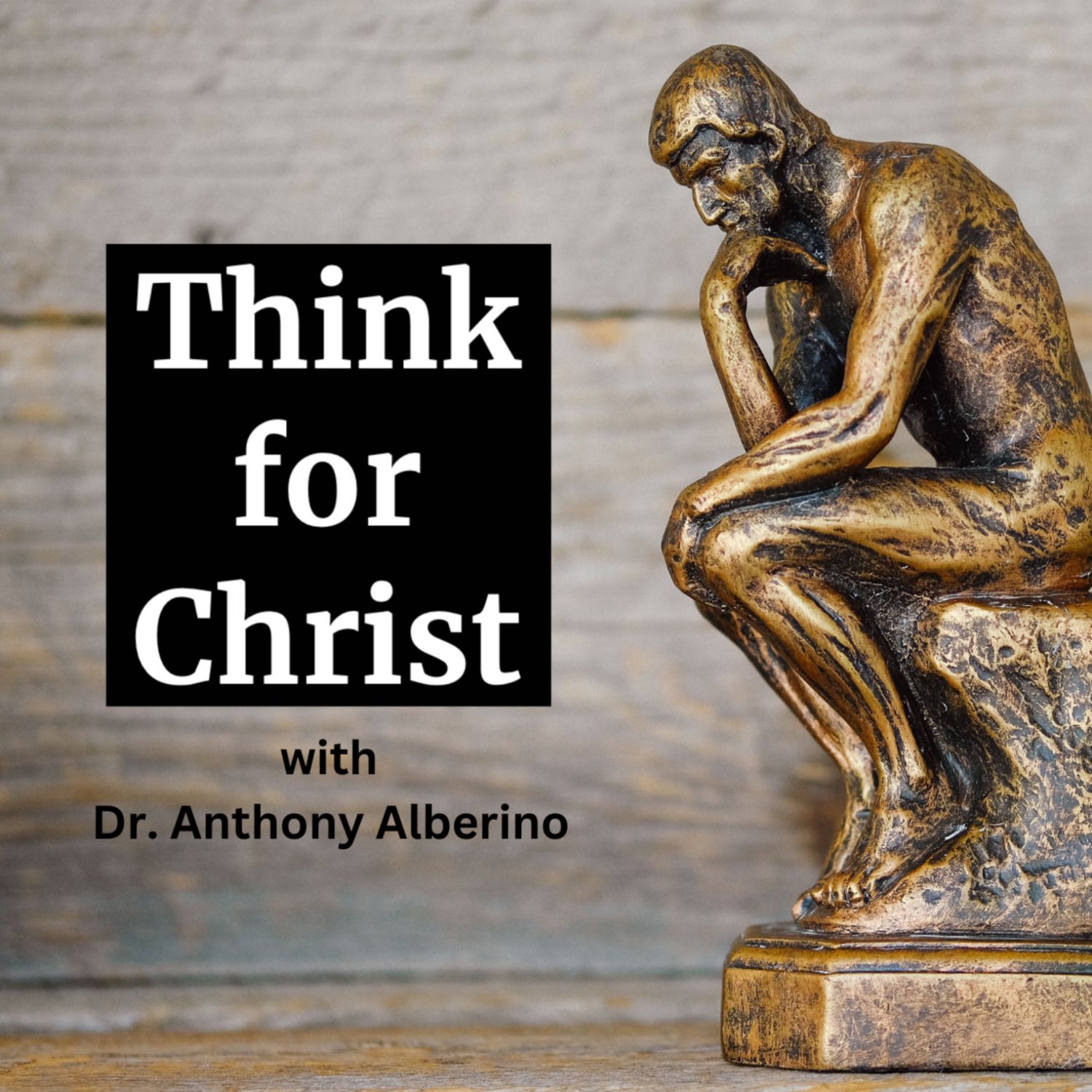 Think for ChristA.I. and the Mind Part 4: The Chinese Room Argument and the Mind-Dependence of ComputationIn this final episode in the series, we take aim at the most popular view of the mind among physical reductionists: the computational theory. Many today believe the mind is nothing more than a complex biological computer and that thinking is nothing more than running the right kind of program. The computational view of the mind is without question the greatest source of optimism for the project of reproducing human intelligence in a machine. But there are series problems with this view. We look at two from philosopher John Searle here. First there is the famous Chinese Room Argument...2023-08-1630 min
Think for ChristA.I. and the Mind Part 4: The Chinese Room Argument and the Mind-Dependence of ComputationIn this final episode in the series, we take aim at the most popular view of the mind among physical reductionists: the computational theory. Many today believe the mind is nothing more than a complex biological computer and that thinking is nothing more than running the right kind of program. The computational view of the mind is without question the greatest source of optimism for the project of reproducing human intelligence in a machine. But there are series problems with this view. We look at two from philosopher John Searle here. First there is the famous Chinese Room Argument...2023-08-1630 min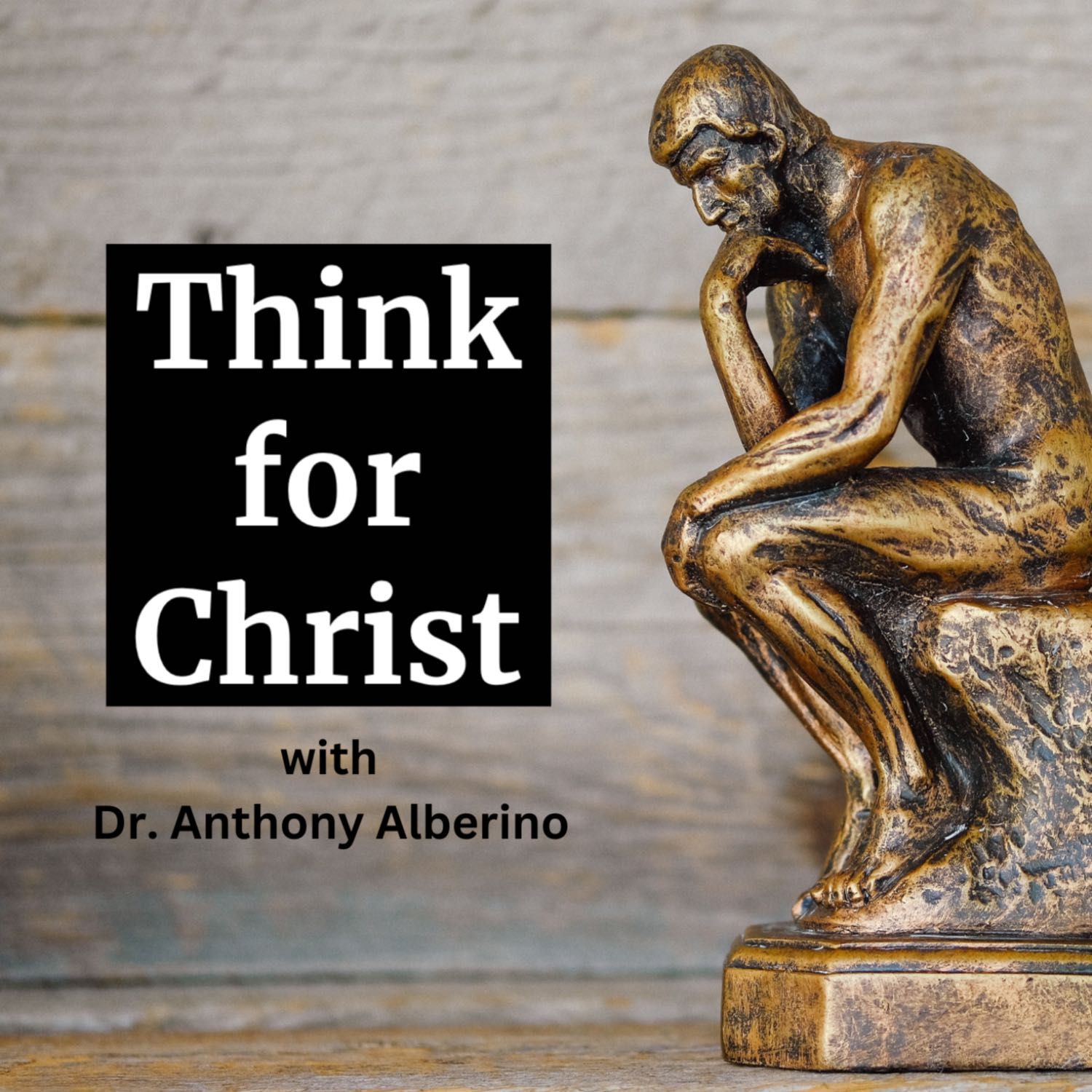 Think for ChristA.I. and the Mind Part 3: The Argument from ReasonIn this episode we begin to consider the problem of rationality with a look at the Argument from Reason.2023-08-0727 min
Think for ChristA.I. and the Mind Part 3: The Argument from ReasonIn this episode we begin to consider the problem of rationality with a look at the Argument from Reason.2023-08-0727 min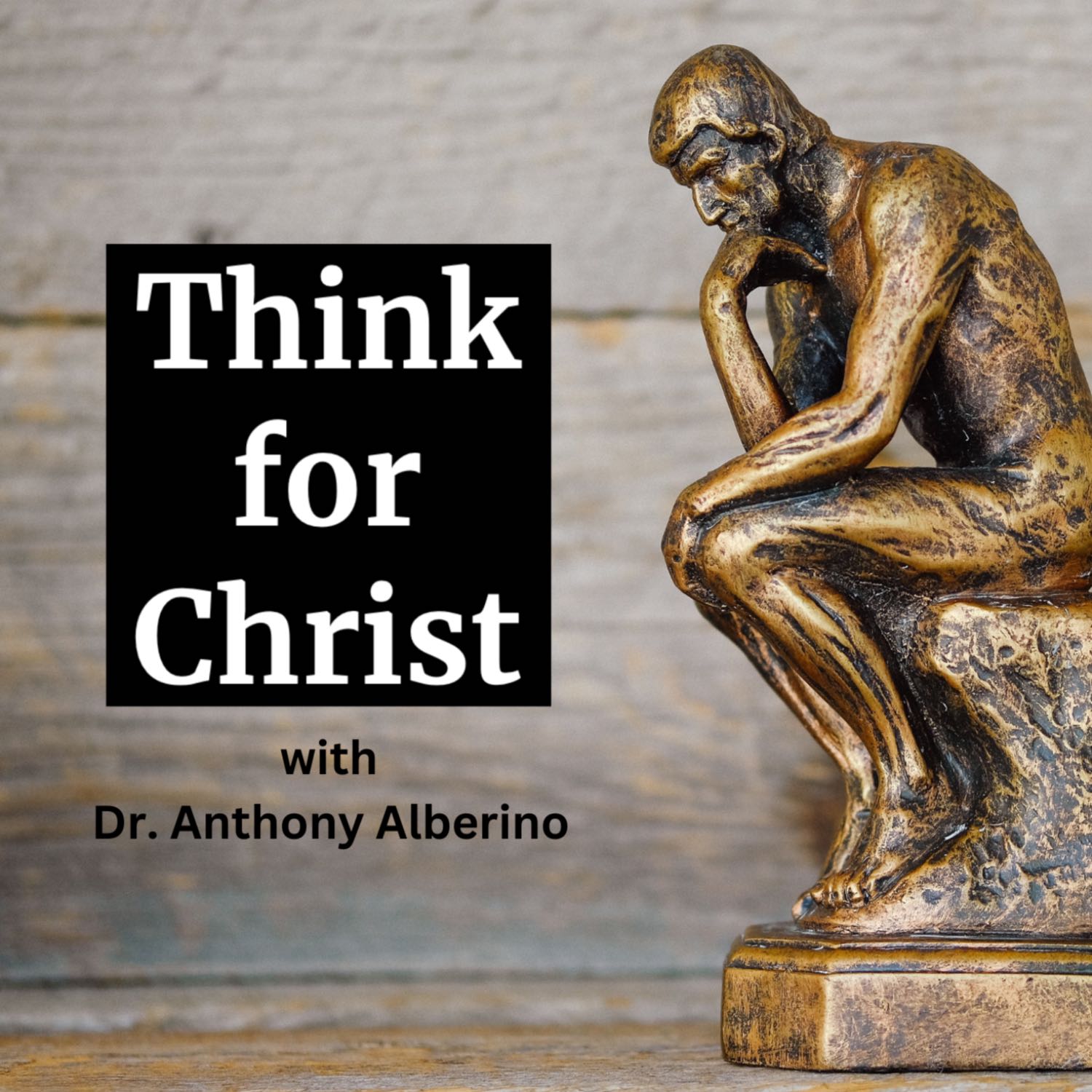 Think for ChristAll That Is in God with Dr. James DolezalDr. James Dolezal joins Anthony Alberino on Think for Christ to discuss his book, All That Is in God: Evangelical Theology and the Challenge of Classical Christian Theism.2023-07-271h 25
Think for ChristAll That Is in God with Dr. James DolezalDr. James Dolezal joins Anthony Alberino on Think for Christ to discuss his book, All That Is in God: Evangelical Theology and the Challenge of Classical Christian Theism.2023-07-271h 25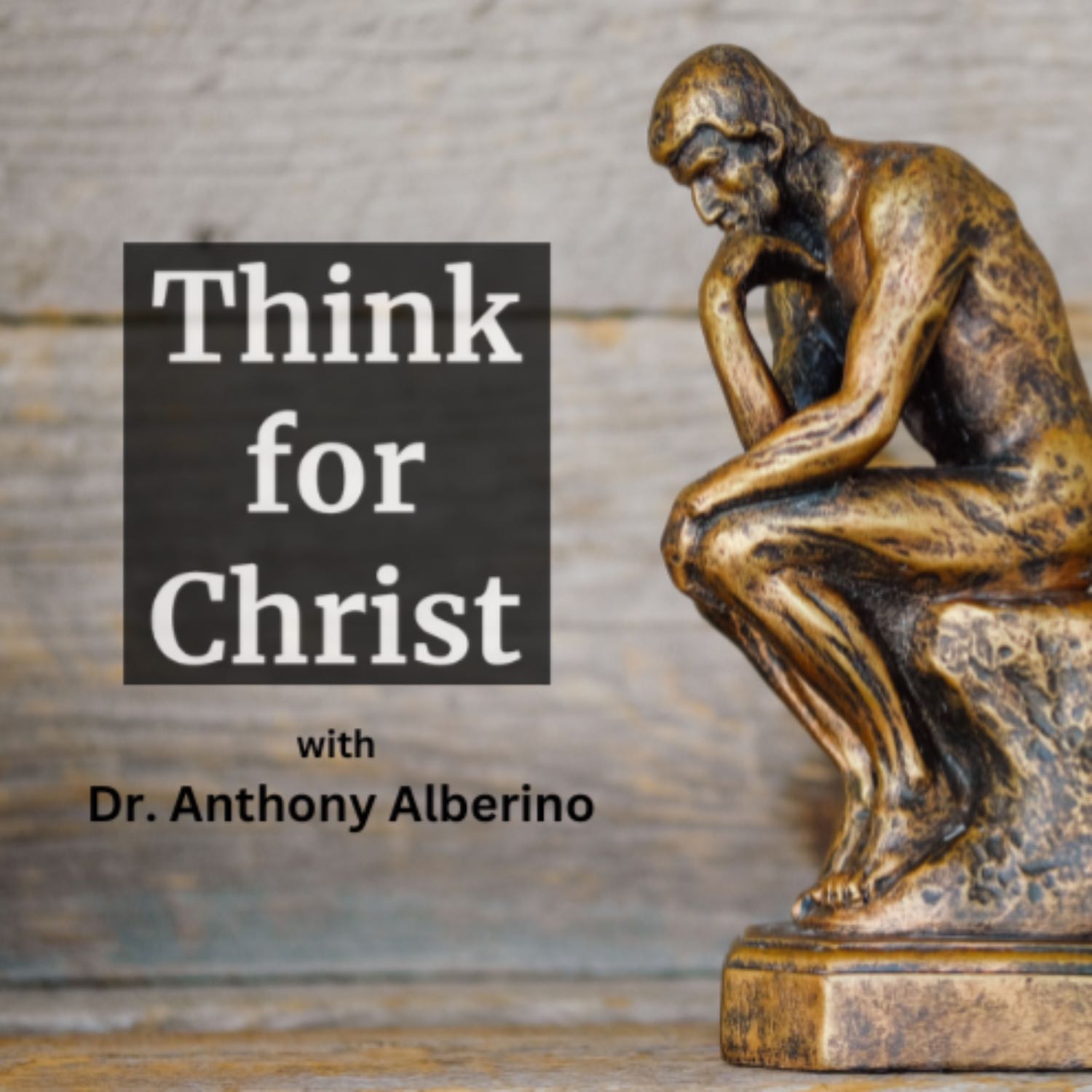 Think for ChristA.I. and the Mind Part 2: The Hard Problem of ConsciousnessIn the previous episode we looked at what I consider to be the best hope and strongest motivation for the belief that artificial intelligence could one day become actually intelligent. That is the philosophical view called physical reductionism. We saw that there is widespread belief among computer scientists, neuroscientists, cognitive scientists, and philosophers of mind that the human mind is nothing more than a kind of biological computer. According to this view, mental states and processes are nothing over and above the physical states and processes of the brain. We also saw that, if this is true, then the idea...2023-07-1934 min
Think for ChristA.I. and the Mind Part 2: The Hard Problem of ConsciousnessIn the previous episode we looked at what I consider to be the best hope and strongest motivation for the belief that artificial intelligence could one day become actually intelligent. That is the philosophical view called physical reductionism. We saw that there is widespread belief among computer scientists, neuroscientists, cognitive scientists, and philosophers of mind that the human mind is nothing more than a kind of biological computer. According to this view, mental states and processes are nothing over and above the physical states and processes of the brain. We also saw that, if this is true, then the idea...2023-07-1934 min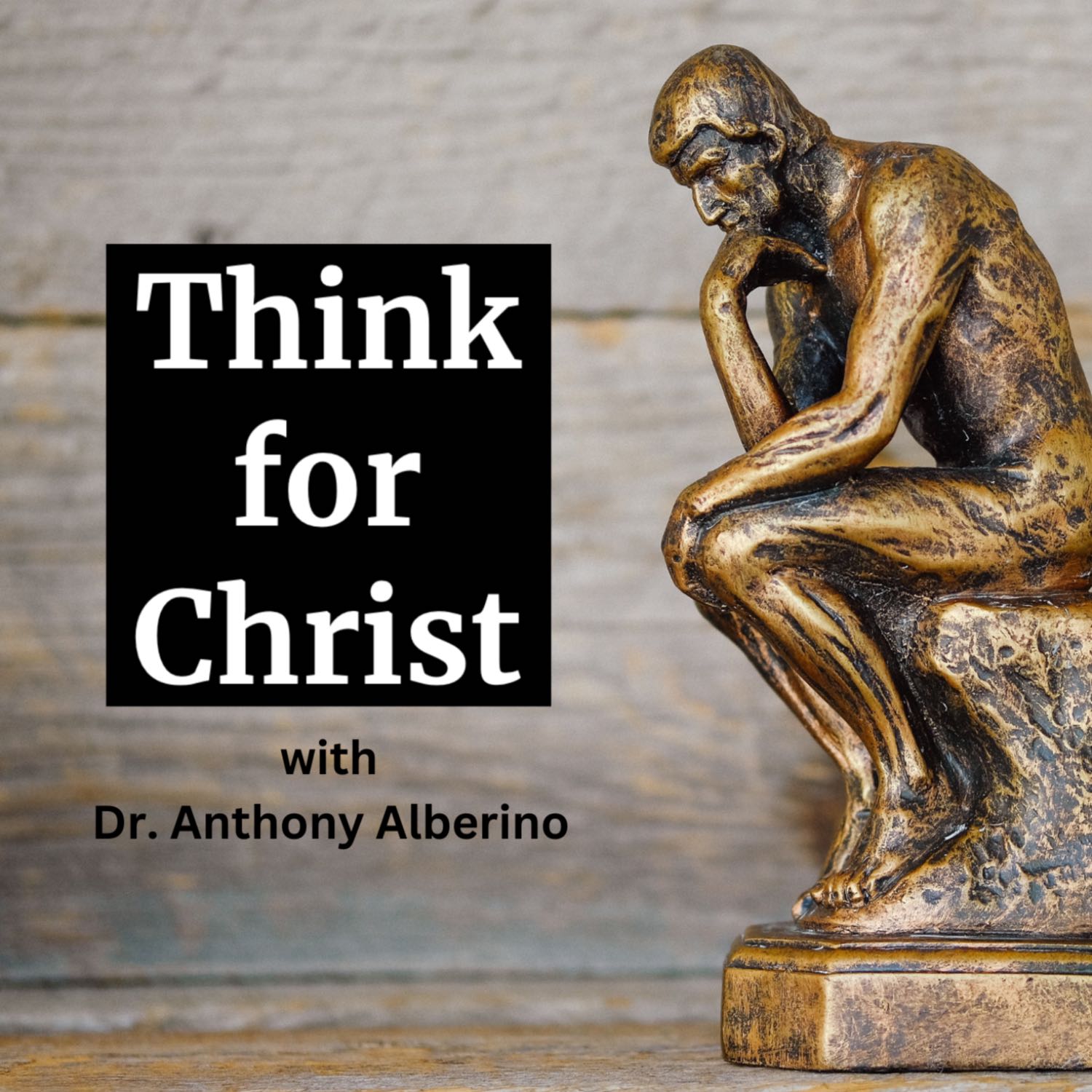 Think for ChristA.I. and the Mind Part 1: Physical ReductionismWhy do so many people, including academics, believe that it is possible to make a fully intelligent AI? In this episode, Anthony Alberino explores the thinking behind the claim of AI sentience and examines a widely held view in the philosophy of mind regarding the nature of human intelligence that makes the notion of a fully intelligent AI plausible.2023-07-1031 min
Think for ChristA.I. and the Mind Part 1: Physical ReductionismWhy do so many people, including academics, believe that it is possible to make a fully intelligent AI? In this episode, Anthony Alberino explores the thinking behind the claim of AI sentience and examines a widely held view in the philosophy of mind regarding the nature of human intelligence that makes the notion of a fully intelligent AI plausible.2023-07-1031 min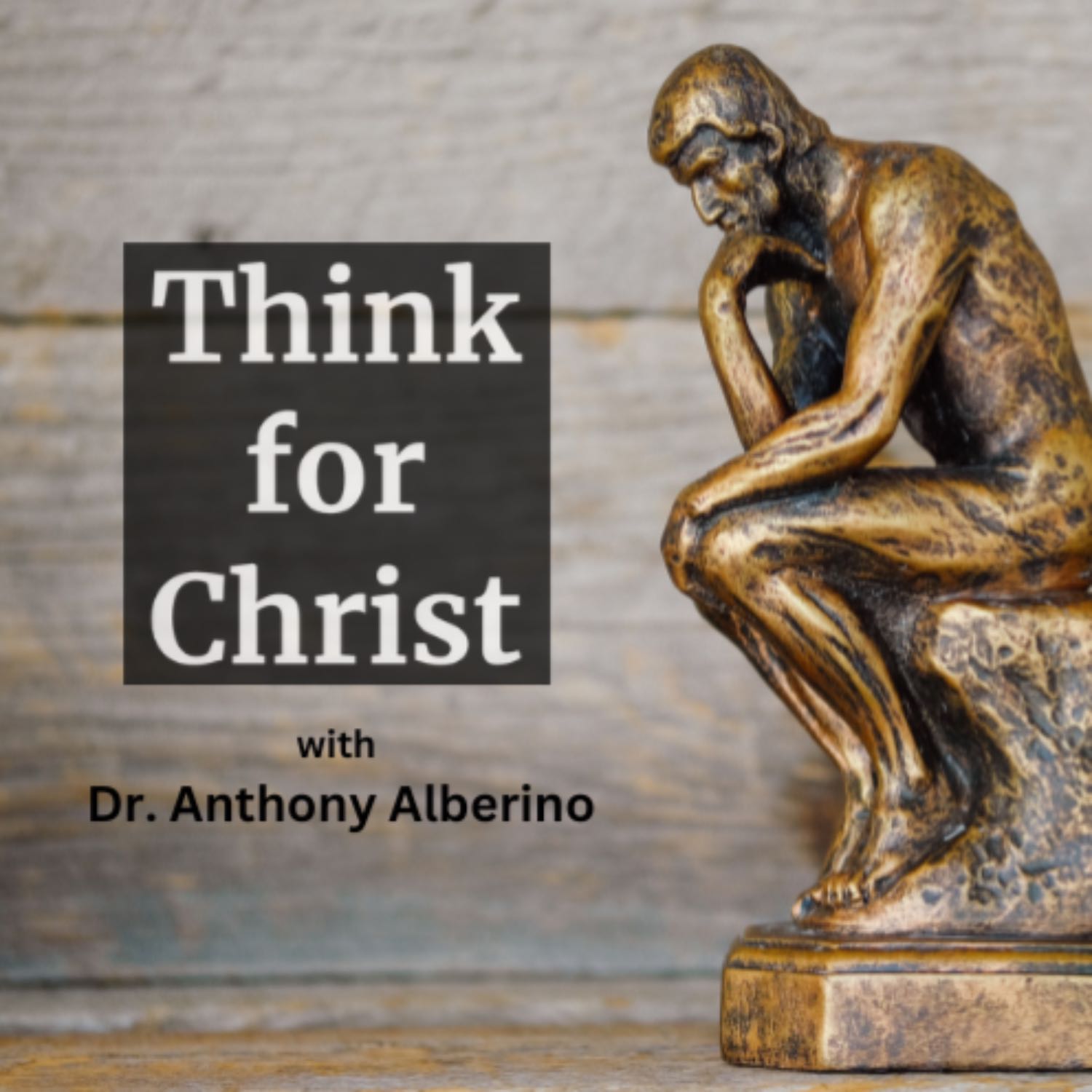 Think for ChristCan artificial intelligence ever really be intelligent? A conversation with Dr. J. T. Bridges.The topic of artificial intelligence has become a critical one lately. There is a ton of chatter about AI right now; it has become one of the most pressing issues of our time. Unfortunately, in the midst of all this noise, I think the most important and profound question about AI is getting very little attention. That question is this: Is it possible for AI to become truly intelligent? This is the question we are asking today on Think for Christ. Now, it’s not as if this that this question isn’t being asked at all. It’s just not be...2023-06-291h 15
Think for ChristCan artificial intelligence ever really be intelligent? A conversation with Dr. J. T. Bridges.The topic of artificial intelligence has become a critical one lately. There is a ton of chatter about AI right now; it has become one of the most pressing issues of our time. Unfortunately, in the midst of all this noise, I think the most important and profound question about AI is getting very little attention. That question is this: Is it possible for AI to become truly intelligent? This is the question we are asking today on Think for Christ. Now, it’s not as if this that this question isn’t being asked at all. It’s just not be...2023-06-291h 15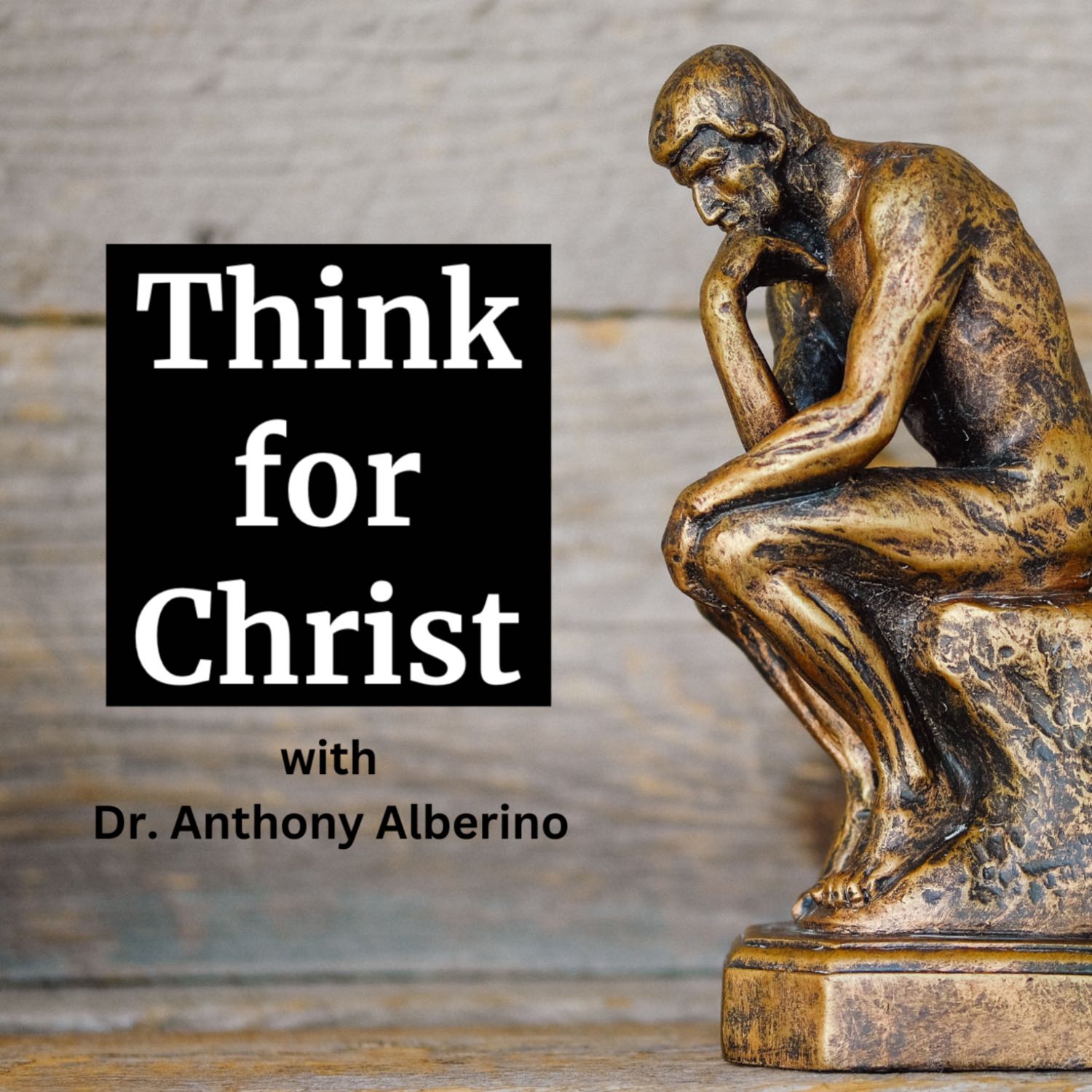 Think for ChristWhat is Philosophy? The Handmaiden of TheologyThere was a popular saying that was a kind of mantra in the Middle Ages that went like this: "Theology is the queen of the sciences and philosophy is its handmaiden." What does this mean? And how is philosophy related to Christian theology? In this episode Dr. Anthony Alberino recounts the failure of Greek philosophy to reconcile itself with Greek religion and the success of Christian theology to reconcile itself with Greek philosophy. The God revealed in the Jewish and Christian Scriptures brings together the philosophical notions of first cause and ultimate principle with the religious notion of a...2023-06-2228 min
Think for ChristWhat is Philosophy? The Handmaiden of TheologyThere was a popular saying that was a kind of mantra in the Middle Ages that went like this: "Theology is the queen of the sciences and philosophy is its handmaiden." What does this mean? And how is philosophy related to Christian theology? In this episode Dr. Anthony Alberino recounts the failure of Greek philosophy to reconcile itself with Greek religion and the success of Christian theology to reconcile itself with Greek philosophy. The God revealed in the Jewish and Christian Scriptures brings together the philosophical notions of first cause and ultimate principle with the religious notion of a...2023-06-2228 min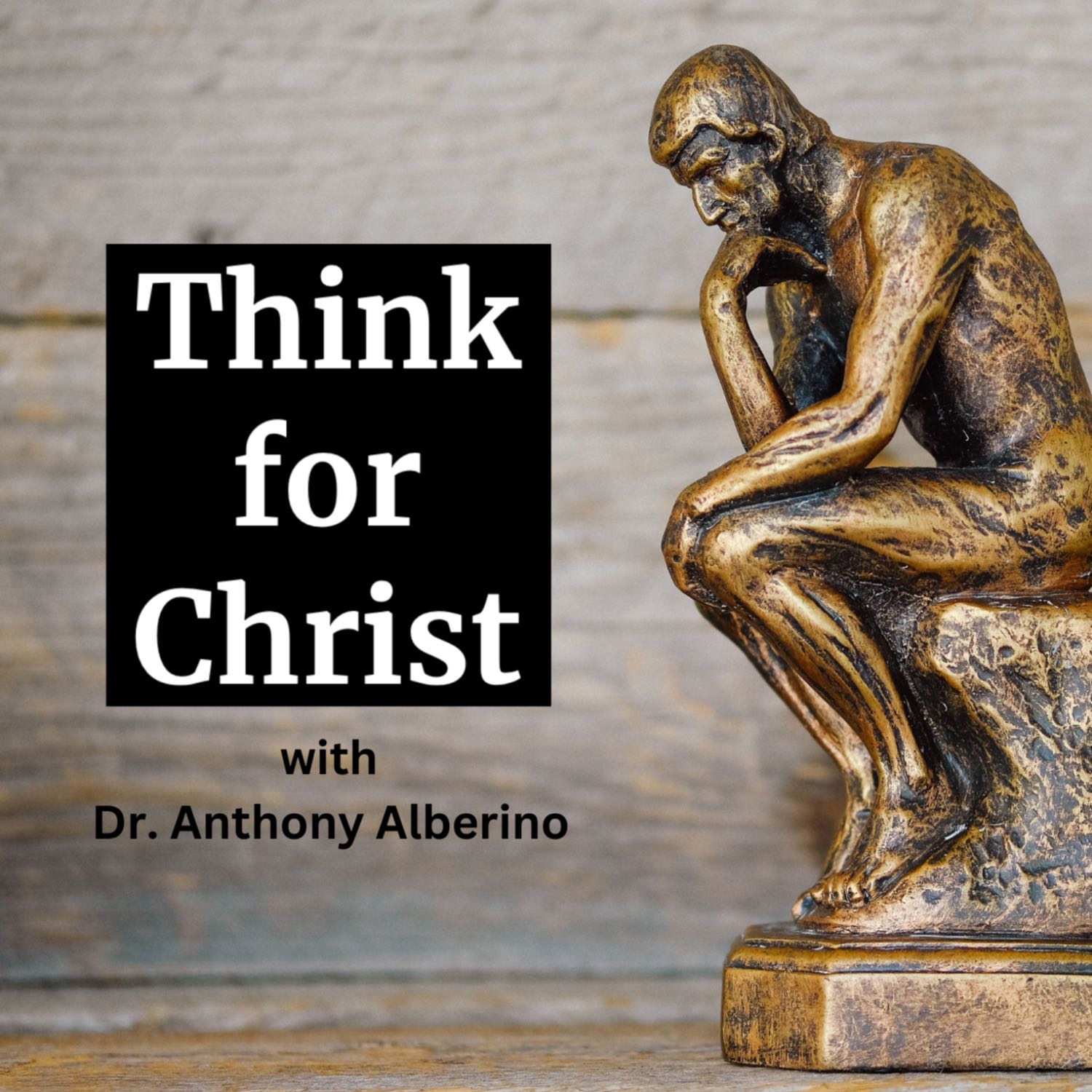 Think for ChristWhat is Philosophy? The Love of WisdomAs I said in the previous episode, many contemporary philosophers do not find the literal meaning of the term 'philosophy' (lit. the love of wisdom) to be very enlightening or helpful when understanding the nature of the subject. Most philosophy textbooks ignore this original meaning and instead define philosophy by more or less looking around and observing what philosophers are up to today. But to the mind of the classical philosopher, you can’t possibly pursue philosophy if you don’t understand what it means to pursue wisdom. So, to get at the nature of philosophy as it was originally inte...2023-06-1136 min
Think for ChristWhat is Philosophy? The Love of WisdomAs I said in the previous episode, many contemporary philosophers do not find the literal meaning of the term 'philosophy' (lit. the love of wisdom) to be very enlightening or helpful when understanding the nature of the subject. Most philosophy textbooks ignore this original meaning and instead define philosophy by more or less looking around and observing what philosophers are up to today. But to the mind of the classical philosopher, you can’t possibly pursue philosophy if you don’t understand what it means to pursue wisdom. So, to get at the nature of philosophy as it was originally inte...2023-06-1136 min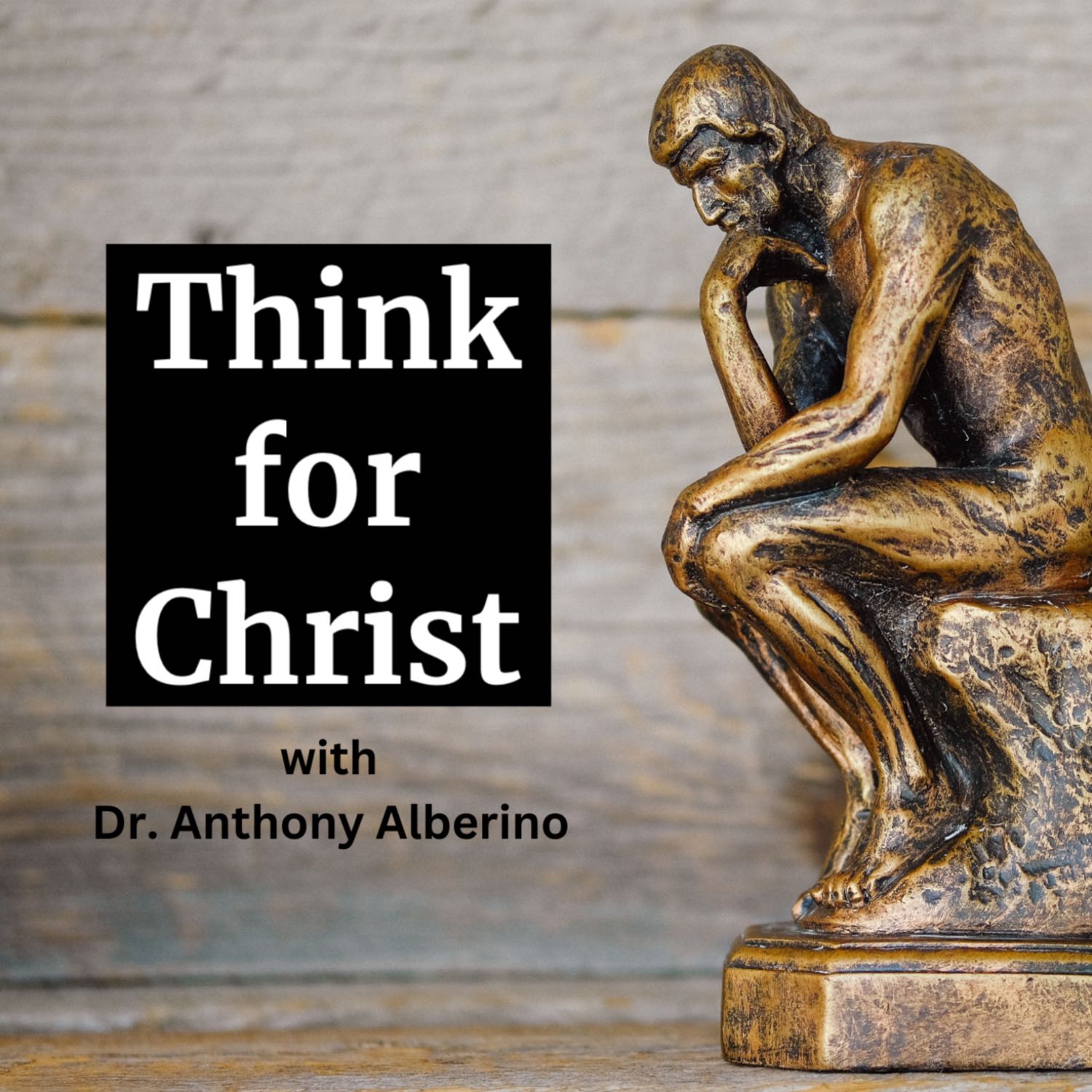 Think for ChristWhat is Philosophy? Introduction to PhilosophySo, what is philosophy anyway? In this introductory episode we take a look at the nature of philosophy, its characteristics, and its various fields. We then consider a working definition of philosophy. Philosophy is generally divided into three broad fields. First there is Metaphysics, or the study of being; then epistemology, or the study of knowledge; finally there is value theory, or the study of value in general and ethics in particular. Logic is also sometimes classed as a philosophical field, but it's better to think of logic as a tool or instrument that philosophers us rather than as a...2023-05-2316 min
Think for ChristWhat is Philosophy? Introduction to PhilosophySo, what is philosophy anyway? In this introductory episode we take a look at the nature of philosophy, its characteristics, and its various fields. We then consider a working definition of philosophy. Philosophy is generally divided into three broad fields. First there is Metaphysics, or the study of being; then epistemology, or the study of knowledge; finally there is value theory, or the study of value in general and ethics in particular. Logic is also sometimes classed as a philosophical field, but it's better to think of logic as a tool or instrument that philosophers us rather than as a...2023-05-2316 min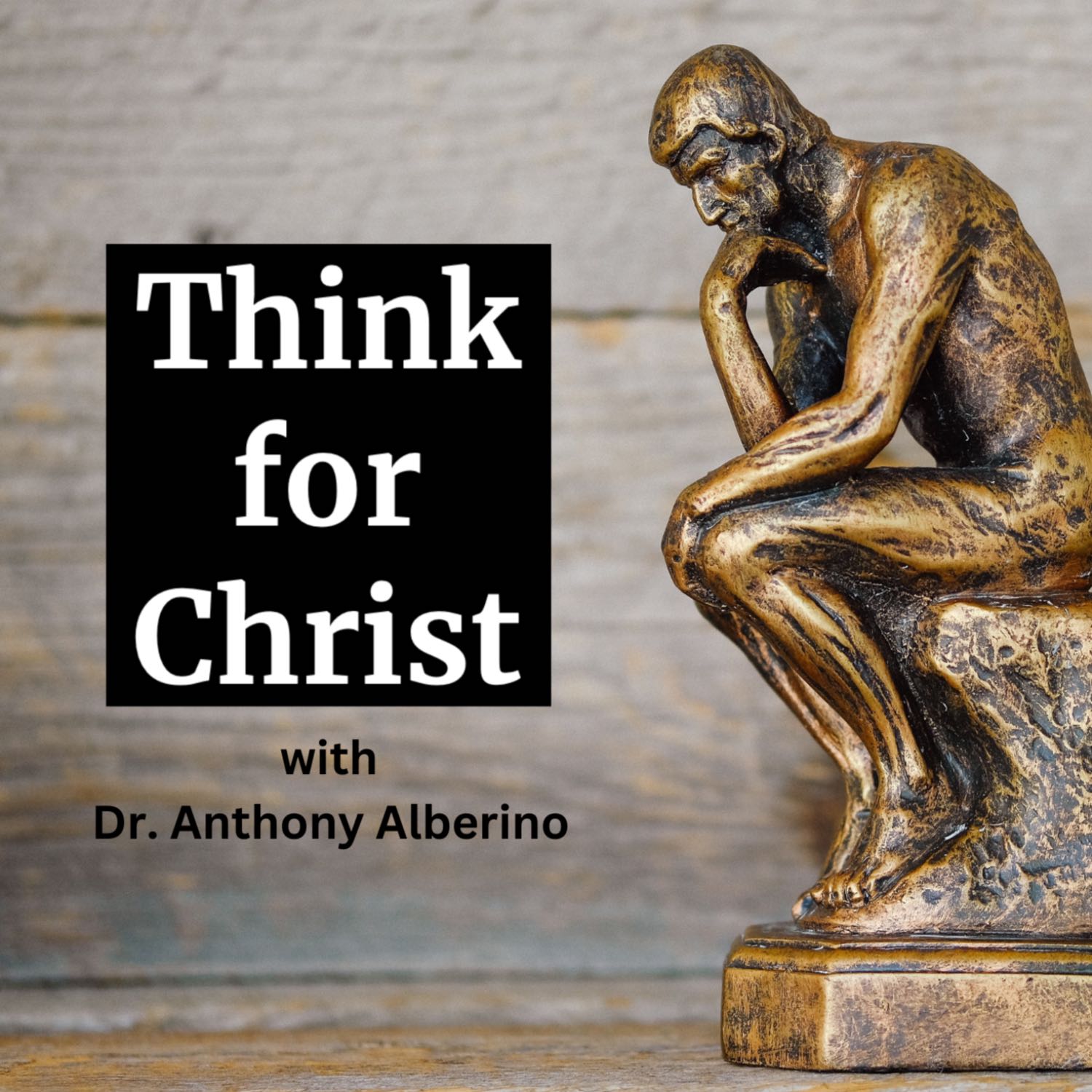 Think for ChristFaith and Reason: The Light of FaithIt’s instructive to think about human reason as a kind of light. Light enables our eyes to have access to the world––it illuminates things so that they may be seen by us. Likewise, by the light of reason human beings are able to see/understand that which is intelligible in things.By means of physical light we are able to see physical things in reality (a tree, a dog, a human); by means of the light of reason we are able to see the intelligible natures of things in reality (treeness, dogness, and humanness); the mind has the fu...2023-05-1415 min
Think for ChristFaith and Reason: The Light of FaithIt’s instructive to think about human reason as a kind of light. Light enables our eyes to have access to the world––it illuminates things so that they may be seen by us. Likewise, by the light of reason human beings are able to see/understand that which is intelligible in things.By means of physical light we are able to see physical things in reality (a tree, a dog, a human); by means of the light of reason we are able to see the intelligible natures of things in reality (treeness, dogness, and humanness); the mind has the fu...2023-05-1415 min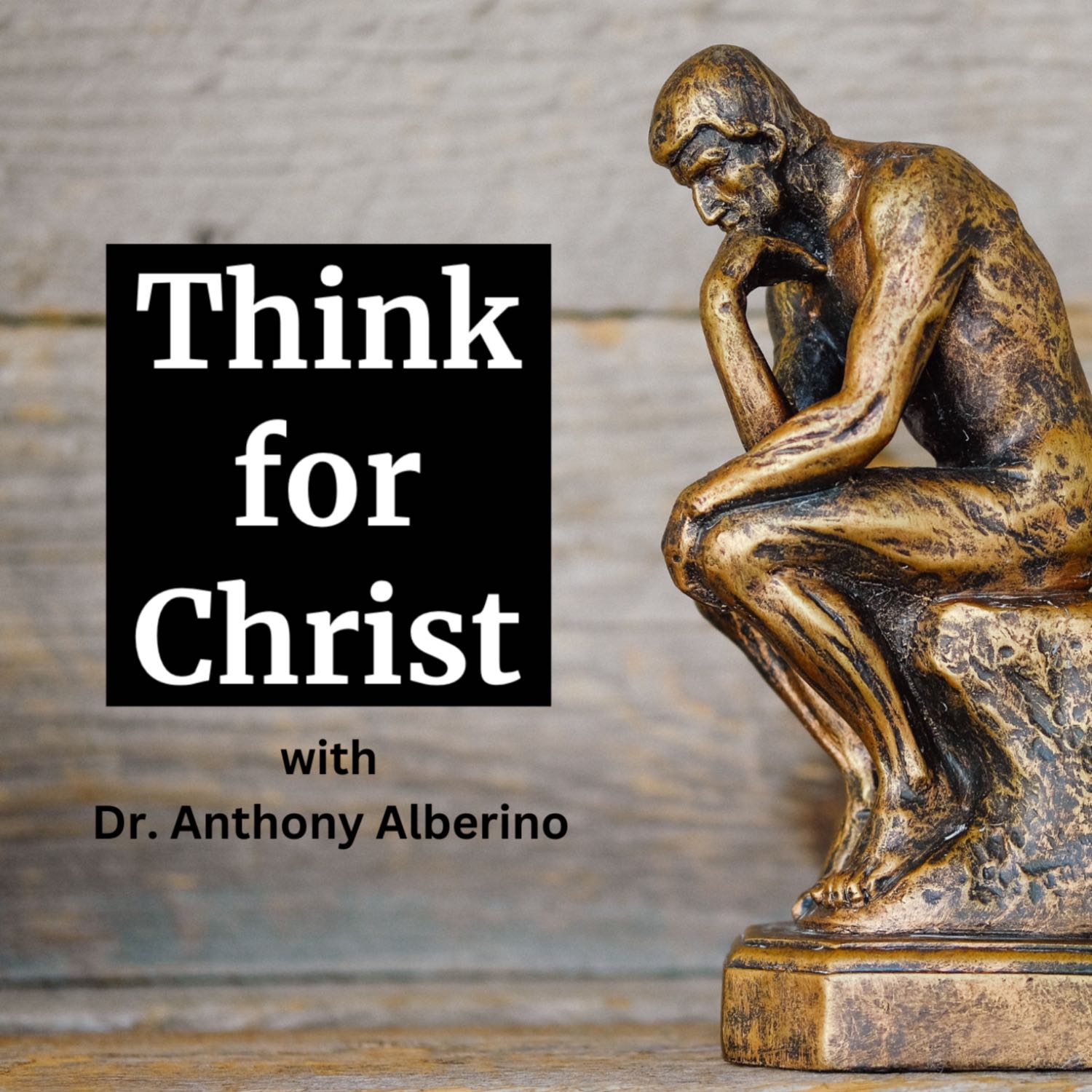 Think for ChristFaith and Reason: Reasonable FaithRecently I was out of town and away from my local church and I was watching a sermon on tv being delivered by a local pastor from the city in which I was staying. This was a very popular pastor in the city and the head of a large church with several satellite campuses, so he was speaking to thousands of people. He made a statement in his sermon that I found to be deeply problematic. He said, “Those who come to God must be willing to take a step of faith that is, in part, unreasonable.” He had the...2023-05-0315 min
Think for ChristFaith and Reason: Reasonable FaithRecently I was out of town and away from my local church and I was watching a sermon on tv being delivered by a local pastor from the city in which I was staying. This was a very popular pastor in the city and the head of a large church with several satellite campuses, so he was speaking to thousands of people. He made a statement in his sermon that I found to be deeply problematic. He said, “Those who come to God must be willing to take a step of faith that is, in part, unreasonable.” He had the...2023-05-0315 min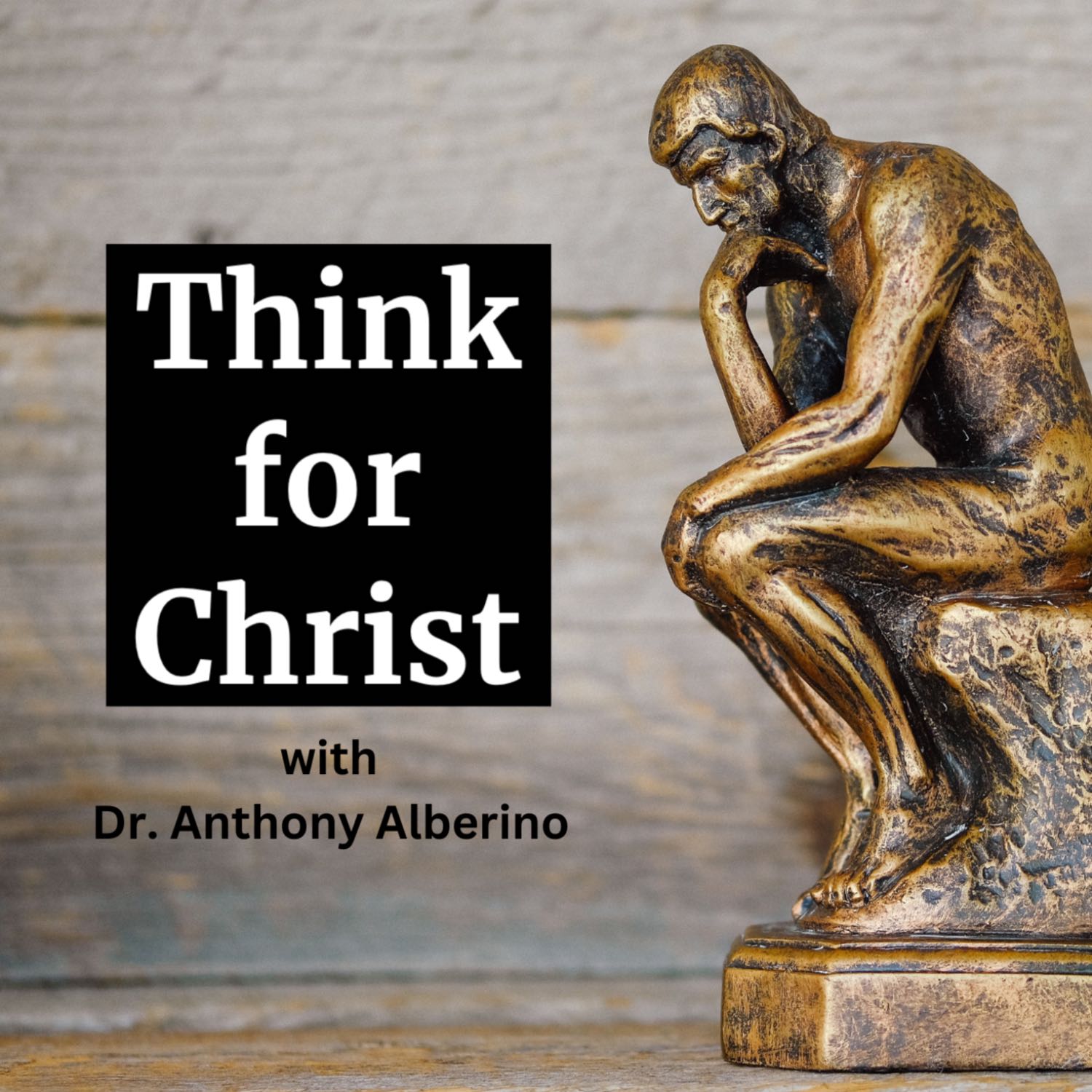 Think for ChristFaith and Reason: Supernatural FaithMy intention in the last two episodes has been to disabuse us of the idea that faith and reason are somehow fundamentally at odds with one another or that faith is an exclusively religious phenomenon, by showing that faith is a natural, rational, and practically unavoidable mode of human knowing. We believe things by faith when we trust in the testimony of another. If the person that we believe is trustworthy, then our faith will be, to that extent, reasonable.But what about theological faith, or what has traditionally been called the theological virtue of faith? Is there anything...2023-04-2417 min
Think for ChristFaith and Reason: Supernatural FaithMy intention in the last two episodes has been to disabuse us of the idea that faith and reason are somehow fundamentally at odds with one another or that faith is an exclusively religious phenomenon, by showing that faith is a natural, rational, and practically unavoidable mode of human knowing. We believe things by faith when we trust in the testimony of another. If the person that we believe is trustworthy, then our faith will be, to that extent, reasonable.But what about theological faith, or what has traditionally been called the theological virtue of faith? Is there anything...2023-04-2417 min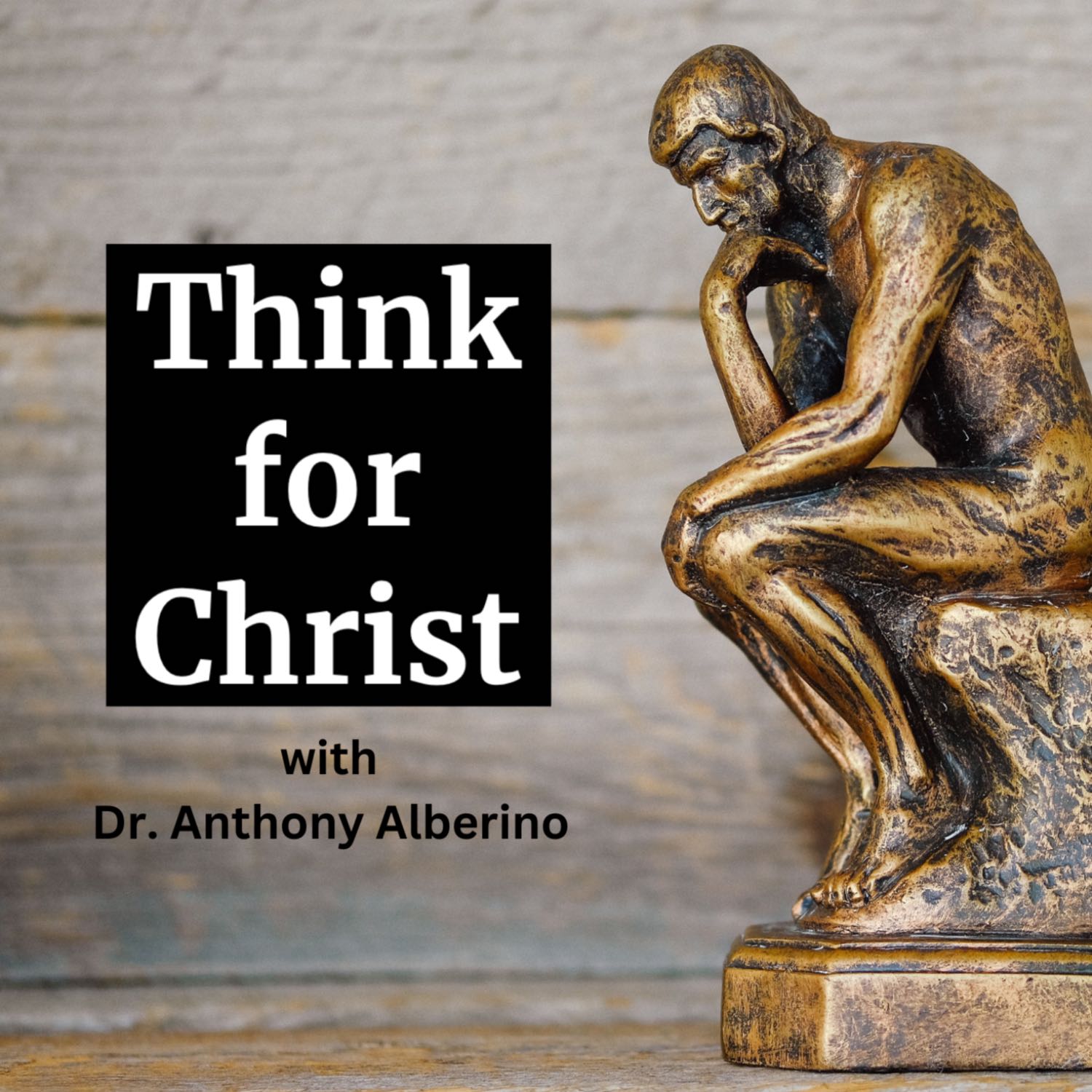 Think for ChristFaith and Reason: What is Faith?Last time we looked at defective view of faith, which is the idea that faith is a kind of noncognitive, irrational, and emotional activity that is entirety distinct from and even in opposition to reason. We also briefly considered a much better definition of faith that accords with our ordinary, commonsense usage: faith is belief based on the authority and testimony of another. In this episode we are going to take a deeper look at faith by analyzing it further as a natural and rational mode of human knowing.2023-04-2414 min
Think for ChristFaith and Reason: What is Faith?Last time we looked at defective view of faith, which is the idea that faith is a kind of noncognitive, irrational, and emotional activity that is entirety distinct from and even in opposition to reason. We also briefly considered a much better definition of faith that accords with our ordinary, commonsense usage: faith is belief based on the authority and testimony of another. In this episode we are going to take a deeper look at faith by analyzing it further as a natural and rational mode of human knowing.2023-04-2414 min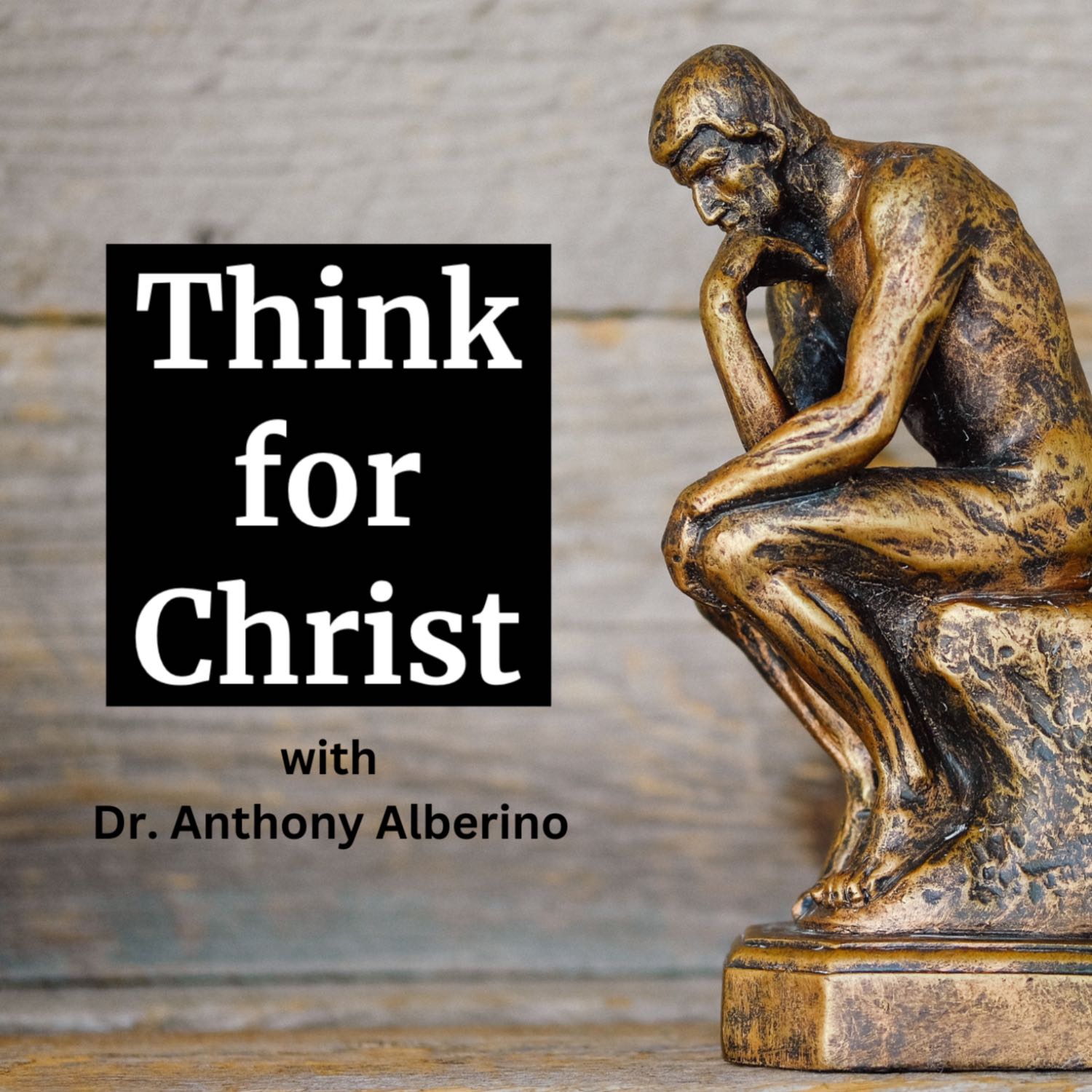 Think for ChristFaith and Reason: Bad FaithIn my experience, one of the most poorly understood relations among believers is that of faith and reason. Few have a clear understanding of the nature of faith, fewer still have a clear understanding of the relationship between faith and reason in the life of a Christian. So, over the next several episodes we’re going to tackle the subject head-on and try to work our way out of this confusion. Perhaps you’ve heard some well-meaning believer say something like this: “Christianity is all about faith, or the heart, and not about reason, or the head. I don’t need e...2023-04-2413 min
Think for ChristFaith and Reason: Bad FaithIn my experience, one of the most poorly understood relations among believers is that of faith and reason. Few have a clear understanding of the nature of faith, fewer still have a clear understanding of the relationship between faith and reason in the life of a Christian. So, over the next several episodes we’re going to tackle the subject head-on and try to work our way out of this confusion. Perhaps you’ve heard some well-meaning believer say something like this: “Christianity is all about faith, or the heart, and not about reason, or the head. I don’t need e...2023-04-2413 min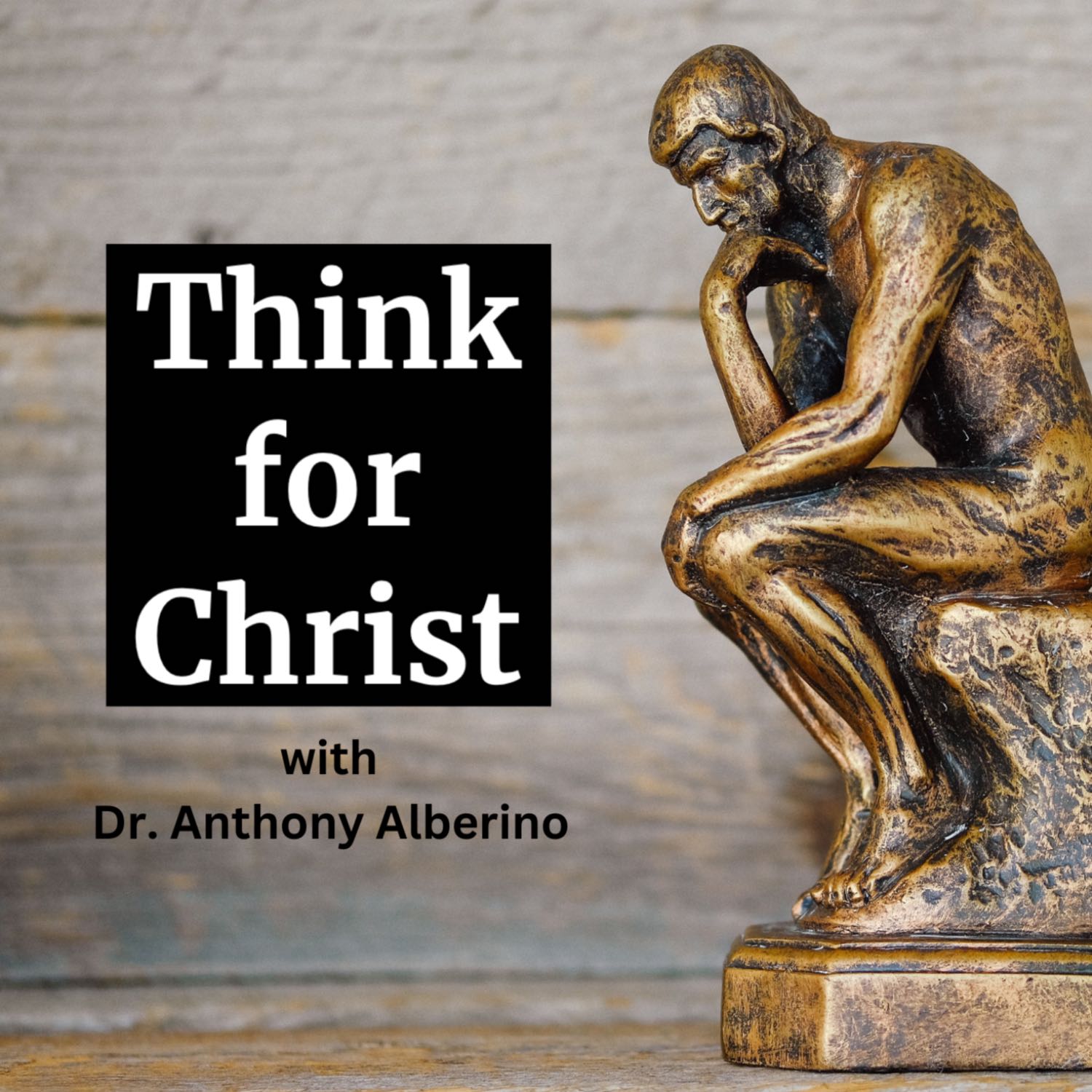 Think for ChristThe Benefits of a Life of the Mind: 7. Elevate Your WorshipIn the last episode I addressed the common concern that deep intellectual engagement leads to doubt and a crisis of faith. Here I consider a second concern often raised by well-meaning Christians. It is sometimes claimed that a focus on the intellectual side of the faith will result in intellectualism. By ‘intellectualism’ I mean a kind of an emotionless, affection-less, or dispassionate pursuit of knowledge. There is a worry that too much of a focus on the mind can produce a dryness of soul and a passionless faith. Moreover, some maintain that the pursuit of knowledge distracts believers from what...2023-04-2428 min
Think for ChristThe Benefits of a Life of the Mind: 7. Elevate Your WorshipIn the last episode I addressed the common concern that deep intellectual engagement leads to doubt and a crisis of faith. Here I consider a second concern often raised by well-meaning Christians. It is sometimes claimed that a focus on the intellectual side of the faith will result in intellectualism. By ‘intellectualism’ I mean a kind of an emotionless, affection-less, or dispassionate pursuit of knowledge. There is a worry that too much of a focus on the mind can produce a dryness of soul and a passionless faith. Moreover, some maintain that the pursuit of knowledge distracts believers from what...2023-04-2428 min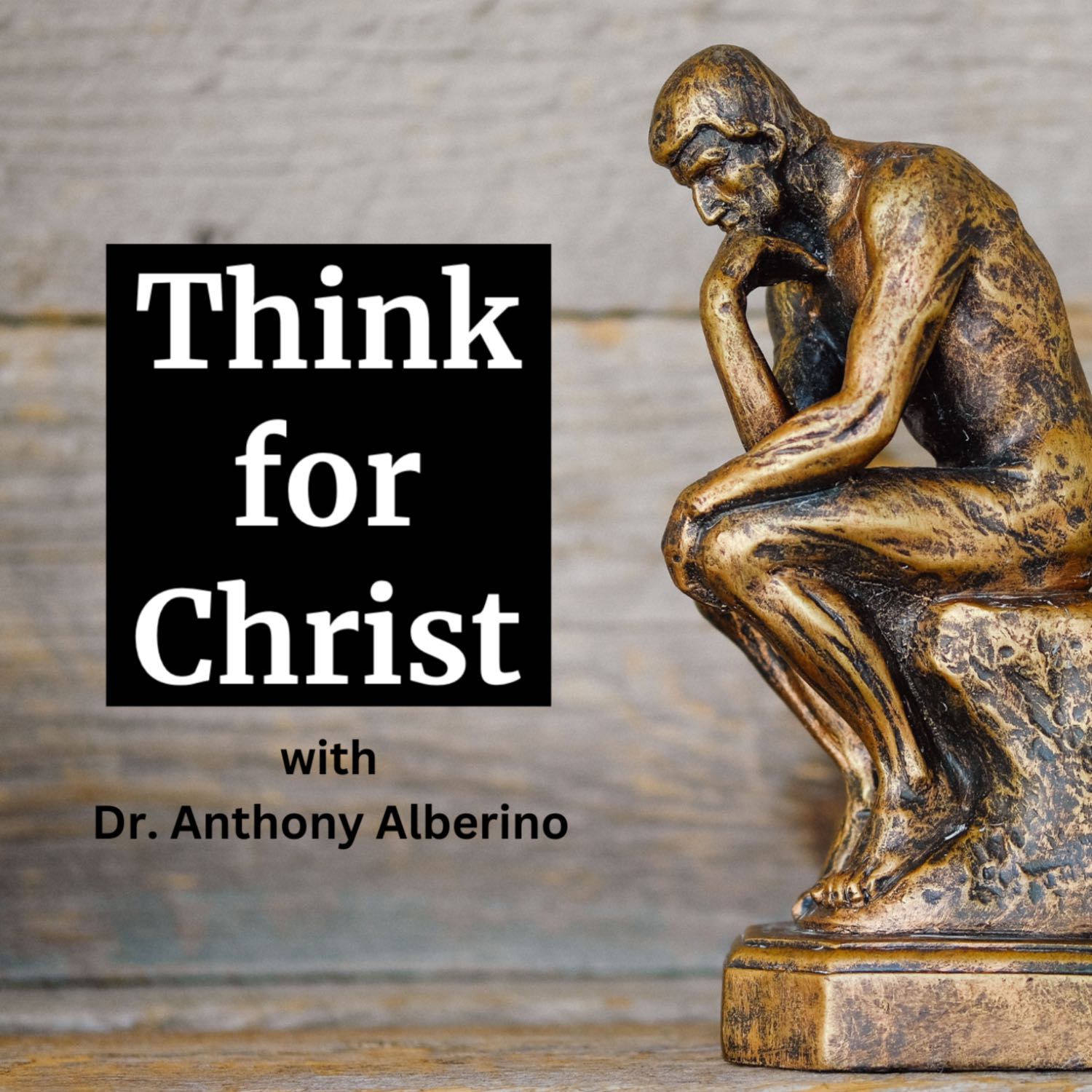 Think for ChristThe Benefits of a Life of the Mind: 6. Strengthen Your FaithMany people share the general assumption that intellectual pursuit is dangerous to the Christian soul; there is a fear that too much worldly wisdom, or secular learning will lead to doubt; that science and philosophy in particular are antithetical to faith. I understand why people think this way; it seems that today “experts” in every academic discipline are making claims that seem to be at odds with Christianity. This seems especially true in the fields of philosophy and science; philosophers today seem to be in the business of doubting and criticizing everything we’ve ever held dear and there is a g...2023-04-2420 min
Think for ChristThe Benefits of a Life of the Mind: 6. Strengthen Your FaithMany people share the general assumption that intellectual pursuit is dangerous to the Christian soul; there is a fear that too much worldly wisdom, or secular learning will lead to doubt; that science and philosophy in particular are antithetical to faith. I understand why people think this way; it seems that today “experts” in every academic discipline are making claims that seem to be at odds with Christianity. This seems especially true in the fields of philosophy and science; philosophers today seem to be in the business of doubting and criticizing everything we’ve ever held dear and there is a g...2023-04-2420 min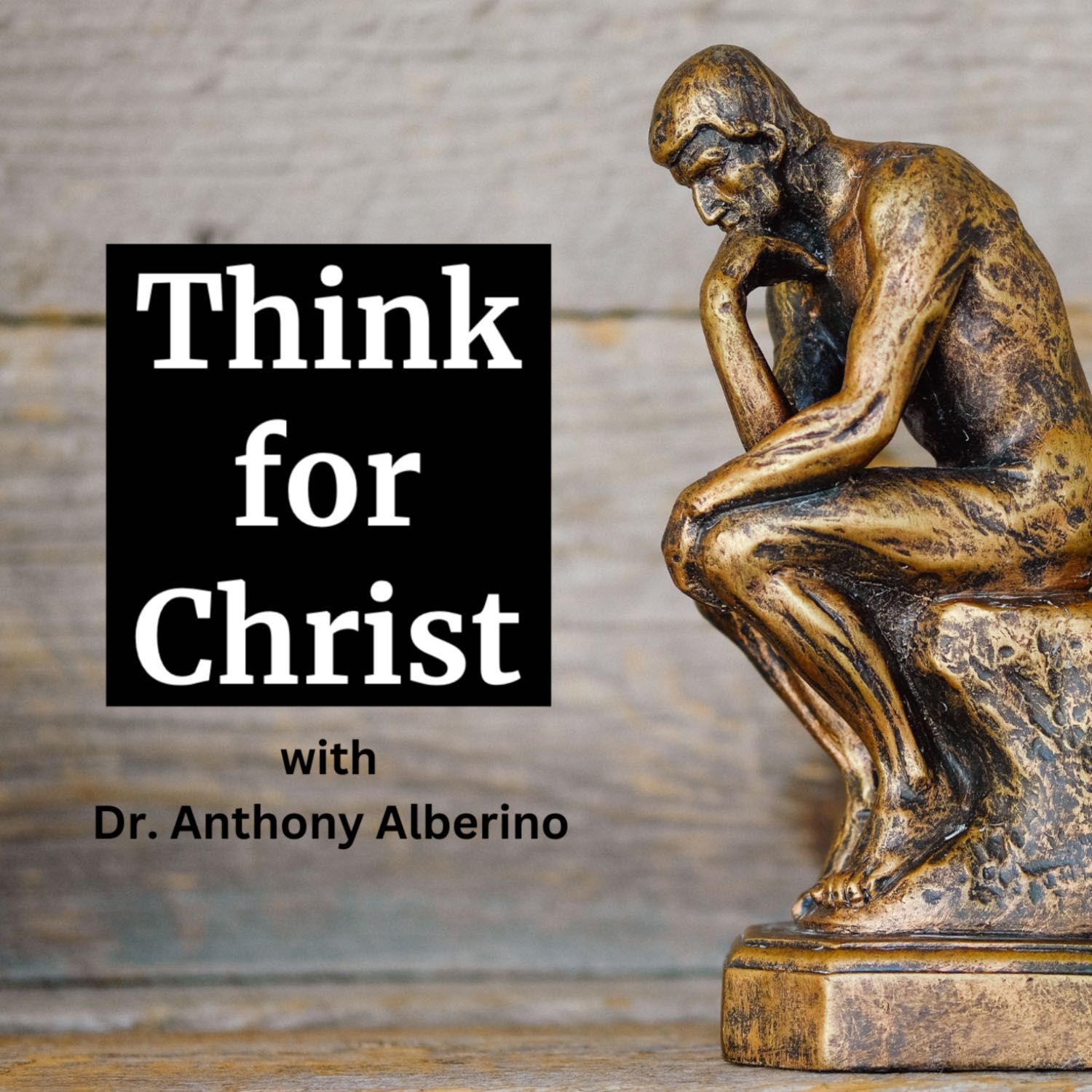 Think for ChristThe Benefits of a Life of the Mind: 5. Engage in Spiritual WarfareChristians are engaged in a spiritual war. This is not a war of bombs and bullets, but of ideas. Since the intellect is the realm of ideas, the spiritual war is, to a large extent, a war that wages on the battleground of the intellect. There is a spiritual clash of ideas happening all around us. False ideas make up the arsenal of the enemy, and to fight back, Christians have been armed with the truth. We attack false ideas by exposing them to the light of reason and Scripture. So, if you want to be well-trained spiritual soldier...2023-04-2409 min
Think for ChristThe Benefits of a Life of the Mind: 5. Engage in Spiritual WarfareChristians are engaged in a spiritual war. This is not a war of bombs and bullets, but of ideas. Since the intellect is the realm of ideas, the spiritual war is, to a large extent, a war that wages on the battleground of the intellect. There is a spiritual clash of ideas happening all around us. False ideas make up the arsenal of the enemy, and to fight back, Christians have been armed with the truth. We attack false ideas by exposing them to the light of reason and Scripture. So, if you want to be well-trained spiritual soldier...2023-04-2409 min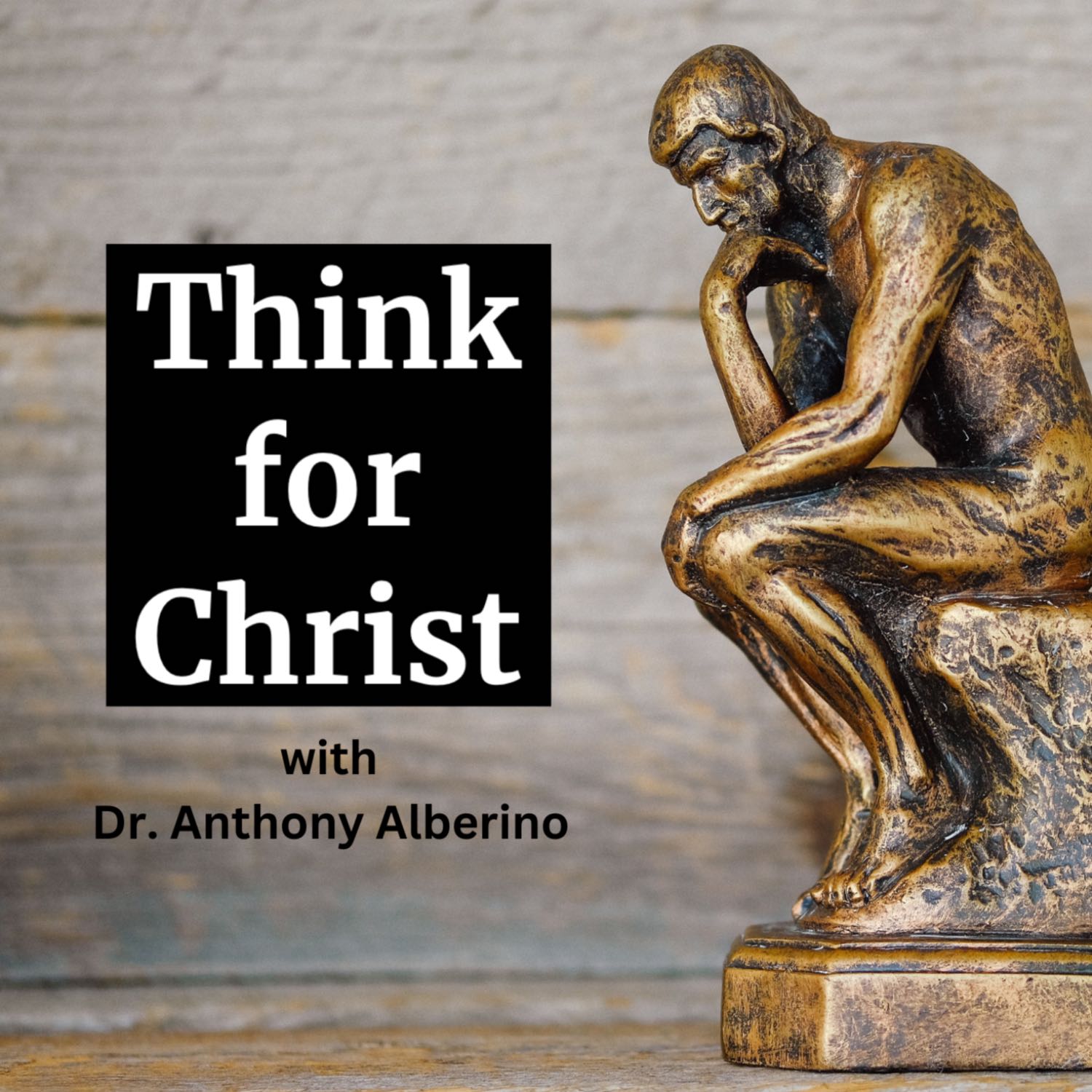 Think for ChristThe Benefits of a Life of the Mind: 4. Learn Intellectual HumilityThe next benefit that comes from pursuing a life of the mind is the learning of intellectual humility. The most arrogant people around are usually the ones who think that they know more than they actually know. Having some knowledge or a little learning can often lead to overconfidence and self-assurance. As Alexander Pope once wrote, "A little learning is a dangerous thing." One of the very best remedies for intellectual arrogance is to gain true understanding, to gain wisdom. Wisdom brings humility since it includes an understanding of the nature of reality, the order of things, and one's...2023-04-2409 min
Think for ChristThe Benefits of a Life of the Mind: 4. Learn Intellectual HumilityThe next benefit that comes from pursuing a life of the mind is the learning of intellectual humility. The most arrogant people around are usually the ones who think that they know more than they actually know. Having some knowledge or a little learning can often lead to overconfidence and self-assurance. As Alexander Pope once wrote, "A little learning is a dangerous thing." One of the very best remedies for intellectual arrogance is to gain true understanding, to gain wisdom. Wisdom brings humility since it includes an understanding of the nature of reality, the order of things, and one's...2023-04-2409 min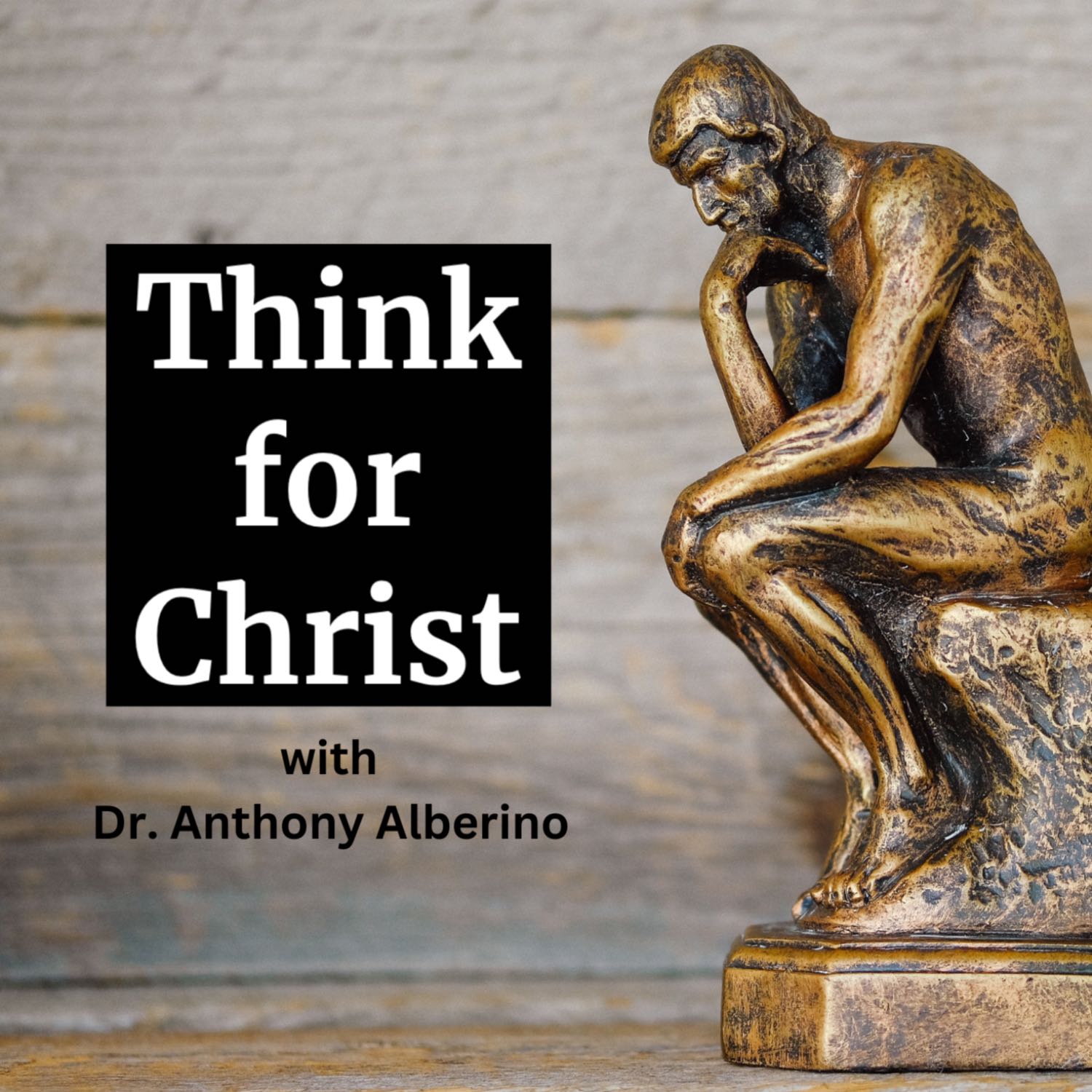 Think for ChristThe Benefits of a Life of the Mind: 3. Become Historically Literate.Another benefit that comes from pursuing a life of the mind is historical literacy. Anyone committed to broadening his or her thinking for Christ will inevitably encounter the great Christian Classics from the past. These works are some of the best ever written and come from some of the greatest minds the world has ever known. Here we discuss four reasons to become historically literate. First, you'll interact with Christians gifted to be intellectual giants. Second, you'll arm yourself against deceptive heresies and all-too-common false teachings. Third, you'll broaden your Christian family. And finally, you'll protect against cultural assimilation.2023-04-2419 min
Think for ChristThe Benefits of a Life of the Mind: 3. Become Historically Literate.Another benefit that comes from pursuing a life of the mind is historical literacy. Anyone committed to broadening his or her thinking for Christ will inevitably encounter the great Christian Classics from the past. These works are some of the best ever written and come from some of the greatest minds the world has ever known. Here we discuss four reasons to become historically literate. First, you'll interact with Christians gifted to be intellectual giants. Second, you'll arm yourself against deceptive heresies and all-too-common false teachings. Third, you'll broaden your Christian family. And finally, you'll protect against cultural assimilation.2023-04-2419 min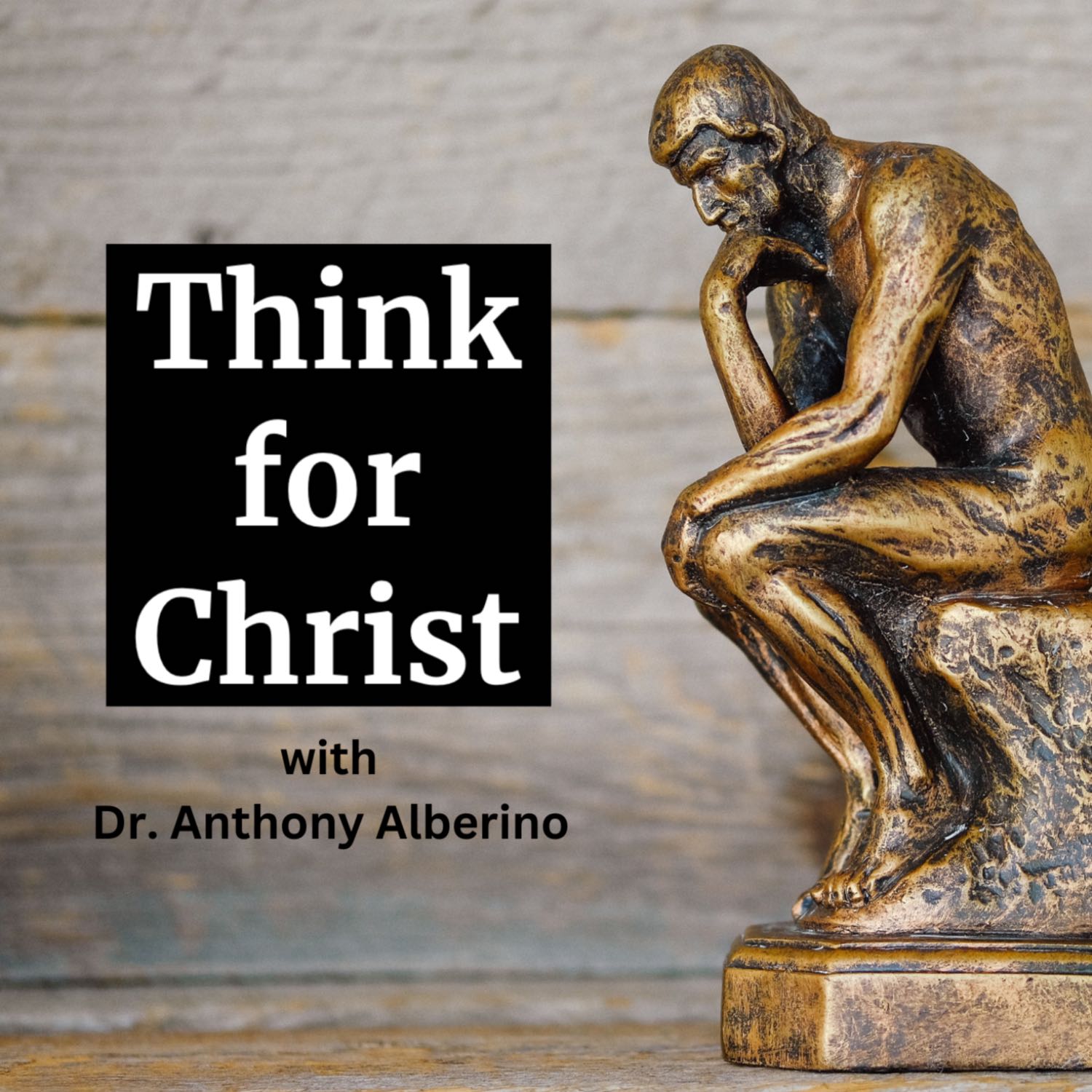 Think for ChristThe Benefits of a Life of the Mind: 2. Achieve a Well-Ordered SoulIn this episode Anthony considers the next benefit of pursuing a life of the mind: the achievement of a well-ordered soul. In the course of this talk, important ideas are reviewed including: realism, essentialism, nominalism, essence, nature, an objective and universal standard of human goodness, human flourishing, and human purpose.2023-04-2425 min
Think for ChristThe Benefits of a Life of the Mind: 2. Achieve a Well-Ordered SoulIn this episode Anthony considers the next benefit of pursuing a life of the mind: the achievement of a well-ordered soul. In the course of this talk, important ideas are reviewed including: realism, essentialism, nominalism, essence, nature, an objective and universal standard of human goodness, human flourishing, and human purpose.2023-04-2425 min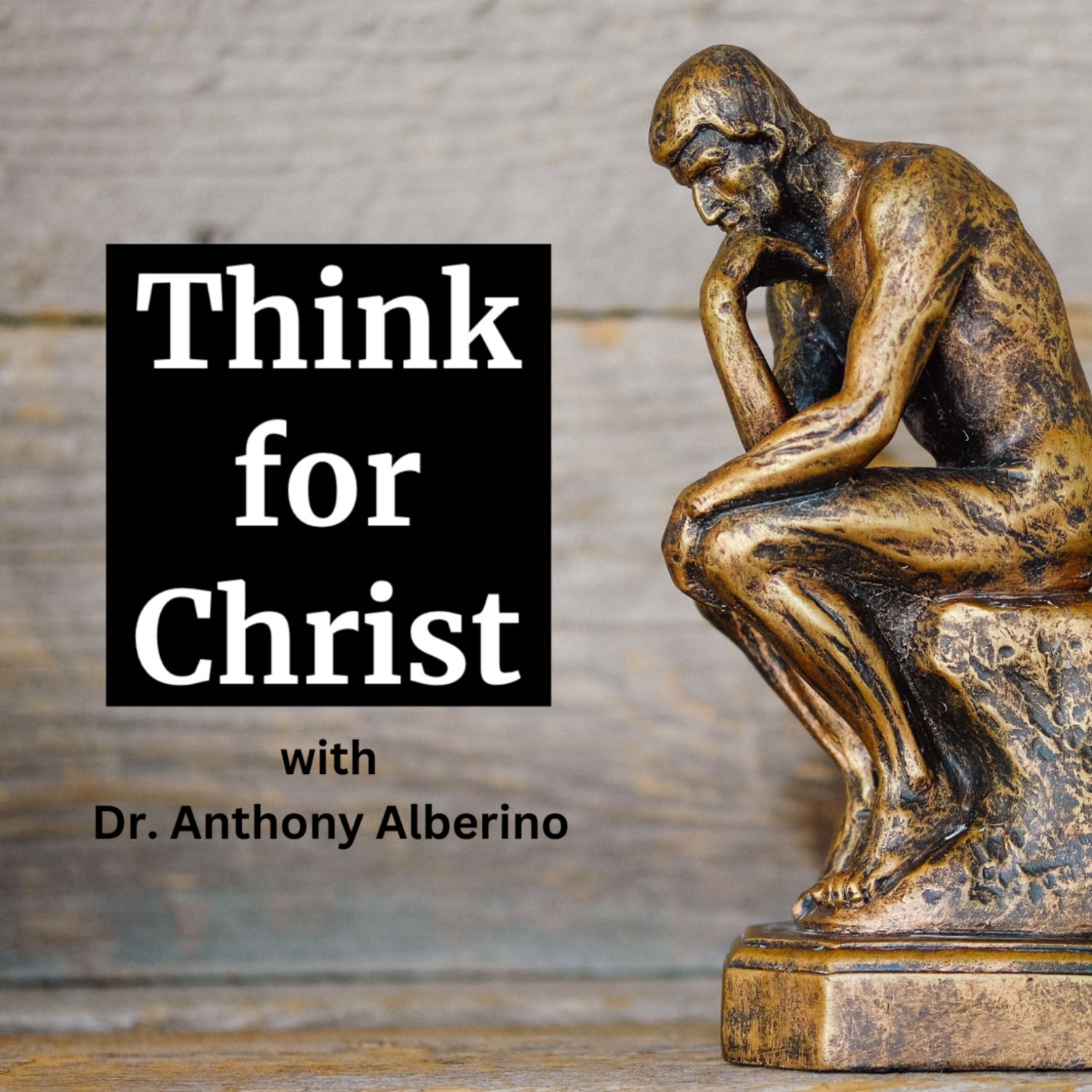 Think for ChristThe Benefits of a Life of the Mind: 1. Improve Your Ability to Reason.In this video, Anthony Alberino begins a new series titled "The Benefits of a Life of the Mind." There are many blessings that come from developing your intellect for Christ. Over the next several episodes, Anthony will share some of the ones that have been particularly useful in his own life. We begin by noting that when you develop your intellect, you'll improve your ability to reason. This is the first great blessing that comes from pursuing a life of the mind. The internet has ushered in an Age of Information and has left most of us adrift on...2023-04-2421 min
Think for ChristThe Benefits of a Life of the Mind: 1. Improve Your Ability to Reason.In this video, Anthony Alberino begins a new series titled "The Benefits of a Life of the Mind." There are many blessings that come from developing your intellect for Christ. Over the next several episodes, Anthony will share some of the ones that have been particularly useful in his own life. We begin by noting that when you develop your intellect, you'll improve your ability to reason. This is the first great blessing that comes from pursuing a life of the mind. The internet has ushered in an Age of Information and has left most of us adrift on...2023-04-2421 min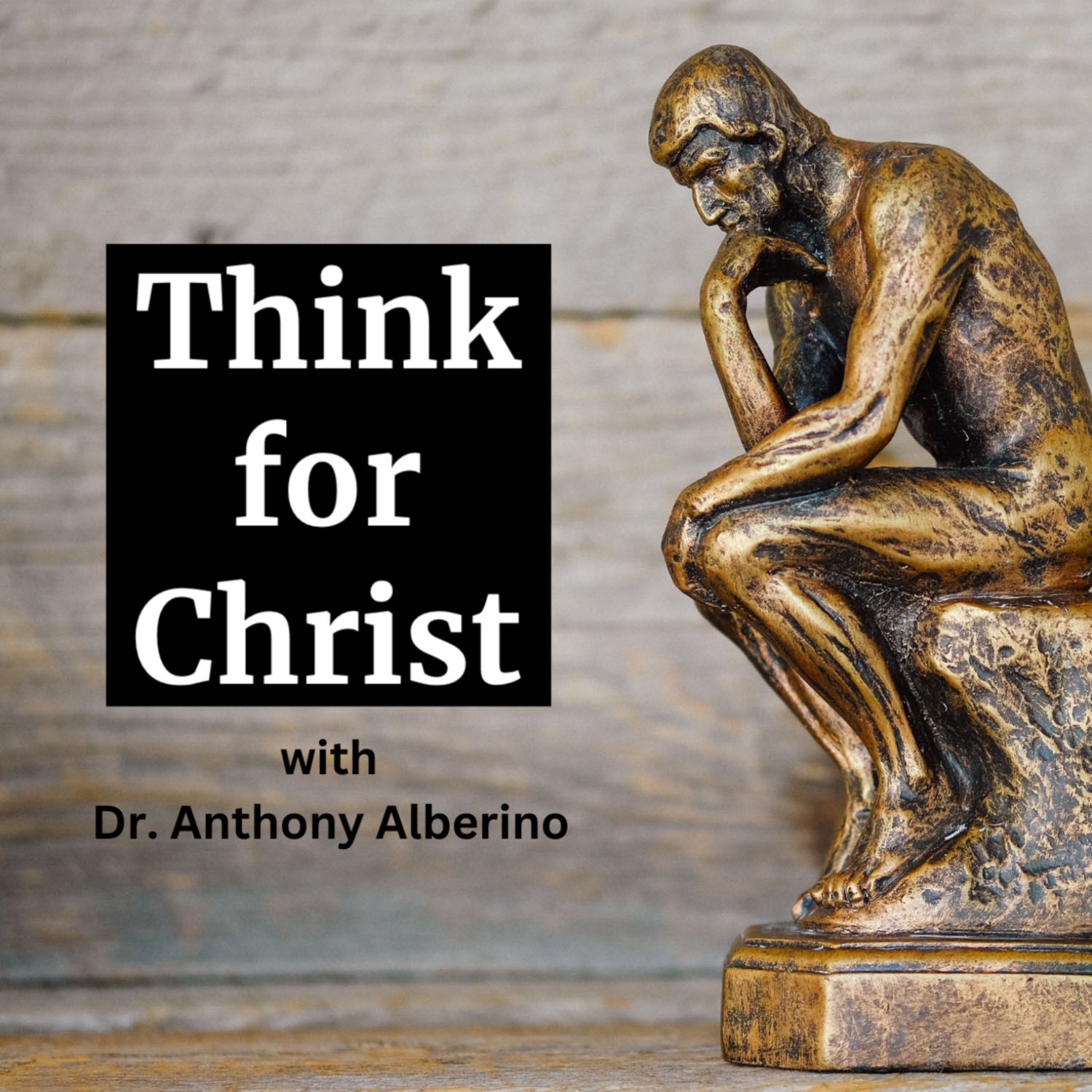 Think for ChristEvangelical Anti-intellectualism. Part Six: Hope?In the final episode of this series on Evangelical Anti-intellectualism, Anthony Alberino considers some recent developments that are causes for hope that the American Church may be beginning to wake from its intellectual slumber. After decades of suppression, the question of the nature and existence of God became a live option once more for philosophers in Anglo-American universities in the late 1960s. This philosophical revival of theism at the academy was instigated primarily by the highly influential work of Alvin Plantinga, an evangelical Christian philosopher. Today the philosophical renaissance of theism advances throughout universities in the English-speaking West as...2023-04-2424 min
Think for ChristEvangelical Anti-intellectualism. Part Six: Hope?In the final episode of this series on Evangelical Anti-intellectualism, Anthony Alberino considers some recent developments that are causes for hope that the American Church may be beginning to wake from its intellectual slumber. After decades of suppression, the question of the nature and existence of God became a live option once more for philosophers in Anglo-American universities in the late 1960s. This philosophical revival of theism at the academy was instigated primarily by the highly influential work of Alvin Plantinga, an evangelical Christian philosopher. Today the philosophical renaissance of theism advances throughout universities in the English-speaking West as...2023-04-2424 min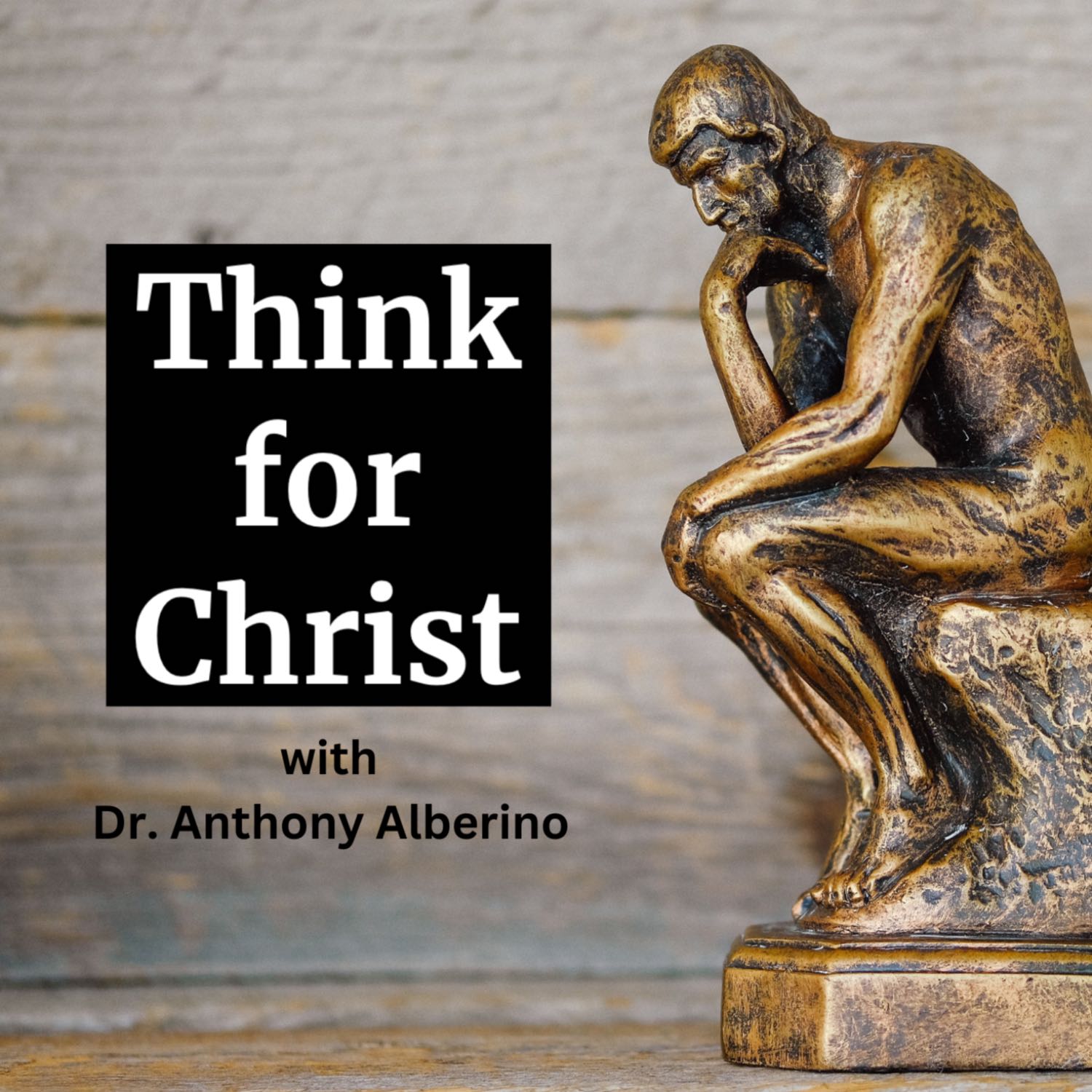 Think for ChristEvangelical Anti-intellectualism. Part Five: A Biblical Case for Anti-intellectualism?In Part Five of this series on Evangelical Anti-intellectualism Anthony Alberino turns to Scripture to see if there is a case to be made there for anti-intellectualism. A handful of passages from the New Testament are examined which are most often used by well-meaning Christians to discourage other Christians from intellectual pursuits. When considered in context, none of these passages give any support for the notion that Christians ought to avoid learning or pursuing a life of the mind.2023-04-2430 min
Think for ChristEvangelical Anti-intellectualism. Part Five: A Biblical Case for Anti-intellectualism?In Part Five of this series on Evangelical Anti-intellectualism Anthony Alberino turns to Scripture to see if there is a case to be made there for anti-intellectualism. A handful of passages from the New Testament are examined which are most often used by well-meaning Christians to discourage other Christians from intellectual pursuits. When considered in context, none of these passages give any support for the notion that Christians ought to avoid learning or pursuing a life of the mind.2023-04-2430 min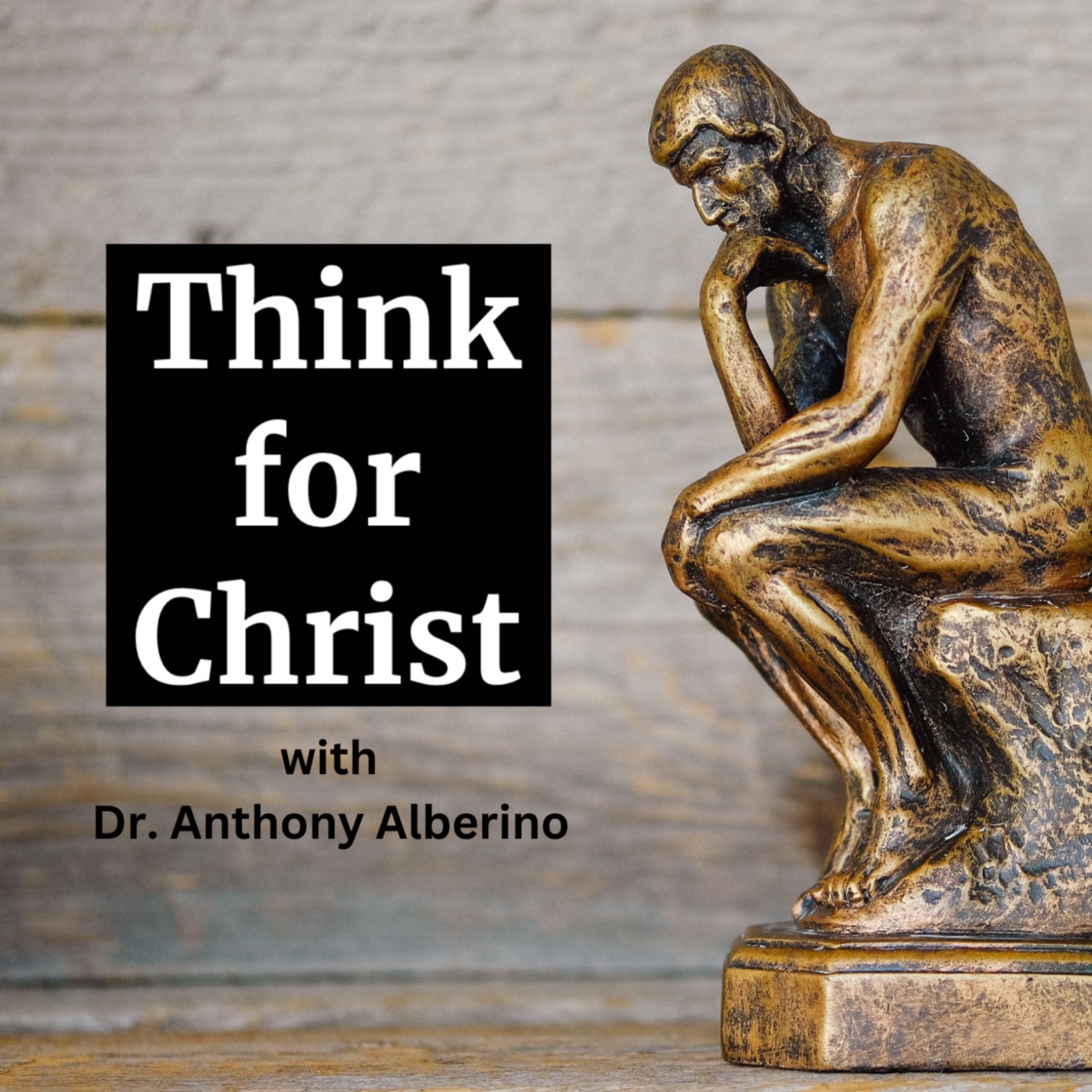 Think for ChristEvangelical Anti-intellectualism. Part Four: How Has it Come to This? A Sociological AnalysisIn Part Four of this series on Evangelical Anti-intellectualism Anthony Alberino takes a look at the problem from a sociological perspective. In addition to a historical legacy which still influences the evangelical community today, there are societal conditions that are exacerbating and reinforcing anti-intellectual tendencies in the church. As many observers and critics of popular culture have noted, there has been a general demise in our ability to think critically. Some have even referred to ours as the “idiot culture.” There are two broad modern trends that are contributing to the stupefying of American culture, one trend that has take...2023-04-2428 min
Think for ChristEvangelical Anti-intellectualism. Part Four: How Has it Come to This? A Sociological AnalysisIn Part Four of this series on Evangelical Anti-intellectualism Anthony Alberino takes a look at the problem from a sociological perspective. In addition to a historical legacy which still influences the evangelical community today, there are societal conditions that are exacerbating and reinforcing anti-intellectual tendencies in the church. As many observers and critics of popular culture have noted, there has been a general demise in our ability to think critically. Some have even referred to ours as the “idiot culture.” There are two broad modern trends that are contributing to the stupefying of American culture, one trend that has take...2023-04-2428 min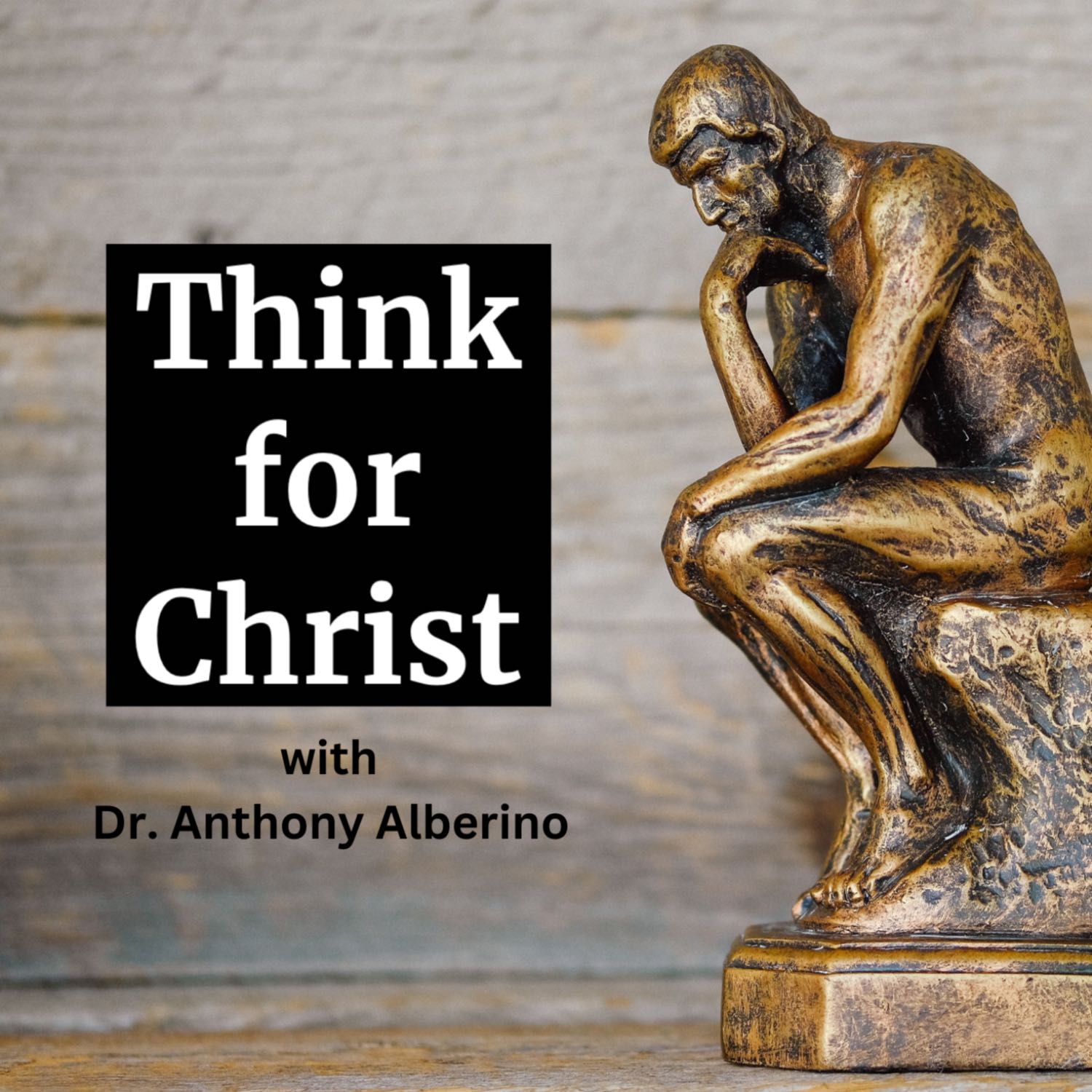 Think for ChristEvangelical Anti-intellectualism. Part Three: How Has It Come to This? A Historical AnalysisIn Part Three of this series on Evangelical Anti-intellectualism, Anthony Alberino explores the historical roots and development of the now-characteristic evangelical neglect of the mind. The Christian heritage is an intellectually rich one. Many of the most gifted thinkers over the last 2000 years have been committed Christians. Both the university and modern science are Christian innovations. The Colonial period of American Christianity carried forward this deep care for the mind. The Puritans, in particular, embodied a delicate balance of intellectual rigor and spiritual piety. Two broad historical movements contributed to the erosion of the Puritan mind in America. The...2023-04-2438 min
Think for ChristEvangelical Anti-intellectualism. Part Three: How Has It Come to This? A Historical AnalysisIn Part Three of this series on Evangelical Anti-intellectualism, Anthony Alberino explores the historical roots and development of the now-characteristic evangelical neglect of the mind. The Christian heritage is an intellectually rich one. Many of the most gifted thinkers over the last 2000 years have been committed Christians. Both the university and modern science are Christian innovations. The Colonial period of American Christianity carried forward this deep care for the mind. The Puritans, in particular, embodied a delicate balance of intellectual rigor and spiritual piety. Two broad historical movements contributed to the erosion of the Puritan mind in America. The...2023-04-2438 min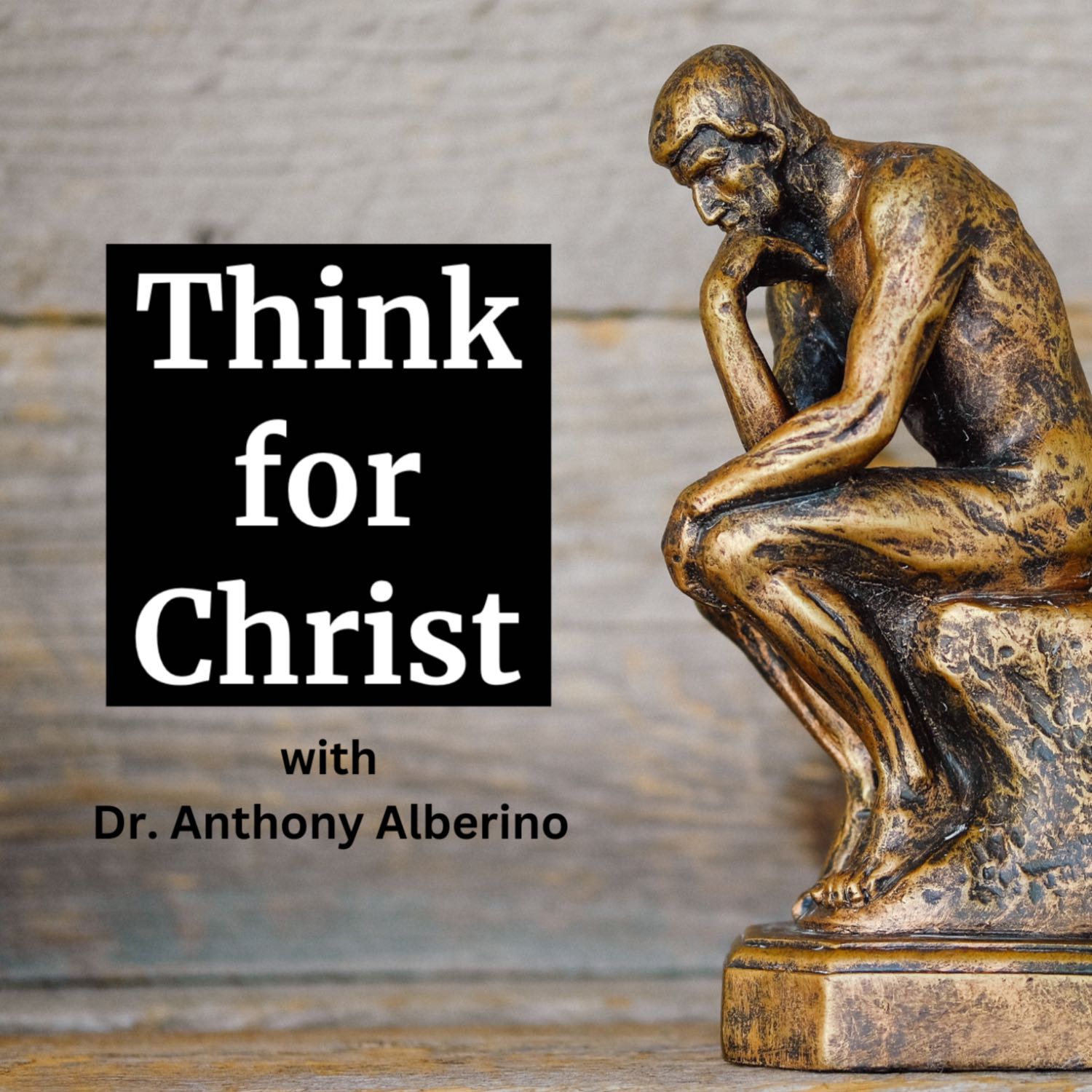 Think for ChristEvangelical Anti-intellectualism. Part Two: Why Should We Care?In Part Two of this series on Evangelical Anti-intellectualism, Anthony Alberino considers the disastrous fallout of the church's long neglect of the mind. Several crises now confront the church, at least in part, because of its deep-seated anti-intellectualism. First, the church is losing its young people. between 70-75% of Christian raised youth walk away from the faith by their sophomore year in college and between 80-90% of youth leave the church after the age of 18. When asked why they've left, the most common reasons given are intellectual in nature. Young Christians are not being mentally equipped to know what...2023-04-2445 min
Think for ChristEvangelical Anti-intellectualism. Part Two: Why Should We Care?In Part Two of this series on Evangelical Anti-intellectualism, Anthony Alberino considers the disastrous fallout of the church's long neglect of the mind. Several crises now confront the church, at least in part, because of its deep-seated anti-intellectualism. First, the church is losing its young people. between 70-75% of Christian raised youth walk away from the faith by their sophomore year in college and between 80-90% of youth leave the church after the age of 18. When asked why they've left, the most common reasons given are intellectual in nature. Young Christians are not being mentally equipped to know what...2023-04-2445 min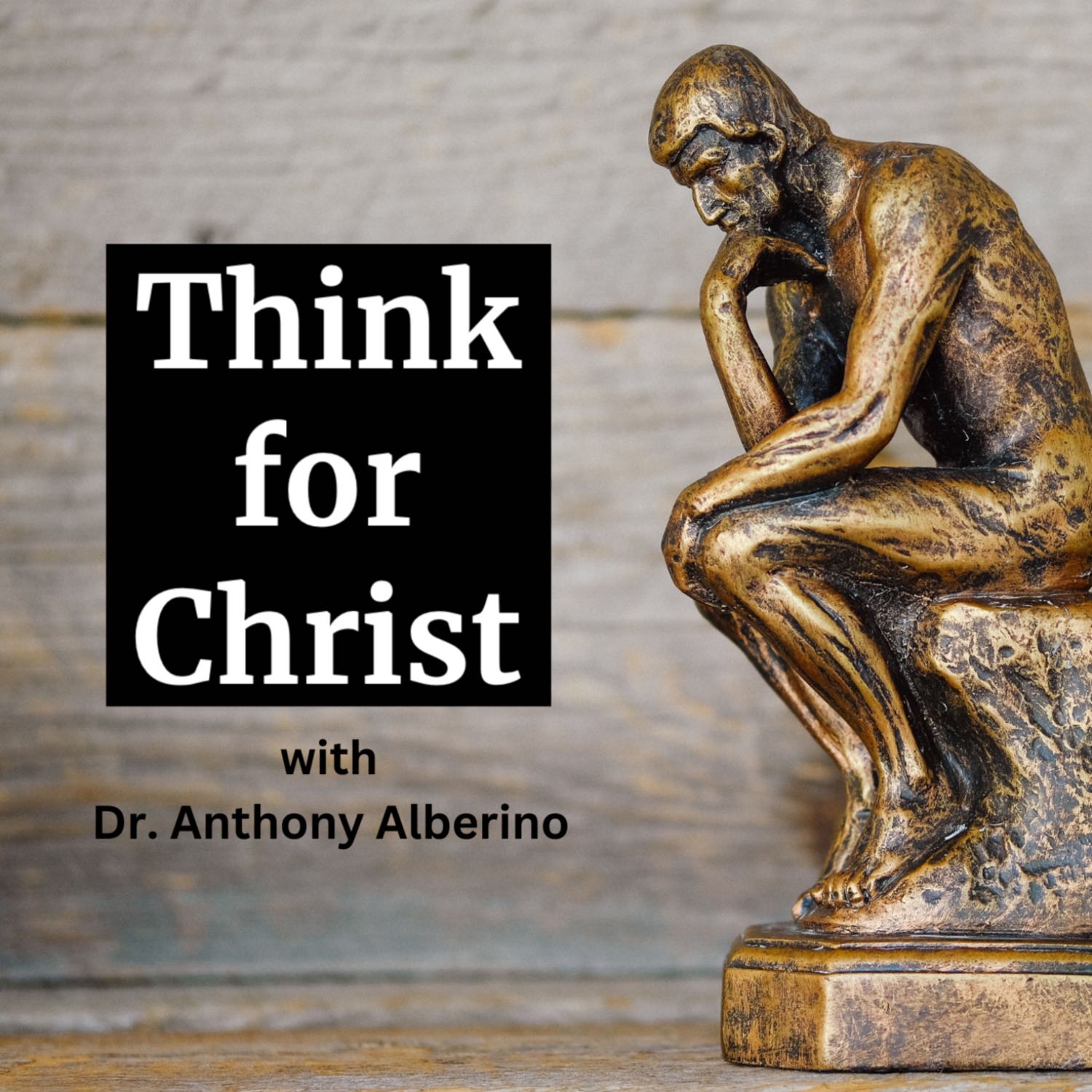 Think for ChristEvangelical Anti-intellectualism. Part One: The ProblemIn this episode Anthony Alberino begins a new series titled "Evangelical Anti-intellectualism." Part One in the series considers the problem. Too many believers in the evangelical community neglect the intellect as an essential component of Christian discipleship. Most evangelical believers are suck in "intellectual neutral" and are letting their minds go to waste. Too many evangelical congregations prioritize the cultivation of an experience and dismiss the vital role the mind plays in the life of the church. Too many intellectually gifted Christians who feel called to scholarship are left to fend for themselves with little to no support from...2023-04-2421 min
Think for ChristEvangelical Anti-intellectualism. Part One: The ProblemIn this episode Anthony Alberino begins a new series titled "Evangelical Anti-intellectualism." Part One in the series considers the problem. Too many believers in the evangelical community neglect the intellect as an essential component of Christian discipleship. Most evangelical believers are suck in "intellectual neutral" and are letting their minds go to waste. Too many evangelical congregations prioritize the cultivation of an experience and dismiss the vital role the mind plays in the life of the church. Too many intellectually gifted Christians who feel called to scholarship are left to fend for themselves with little to no support from...2023-04-2421 min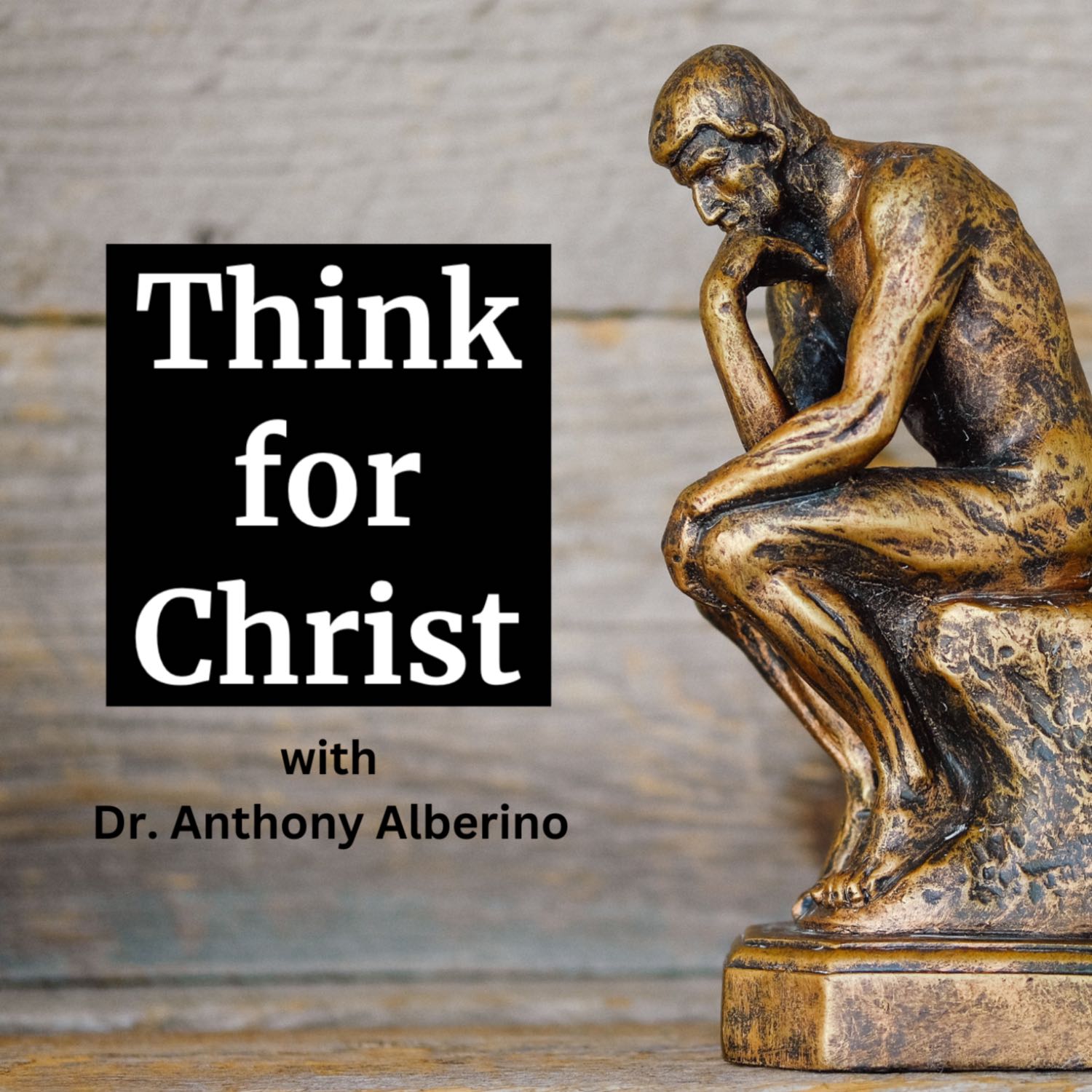 Think for ChristEpisode 1: IntroductionsIn this introductory episode Anthony Alberino provides a brief biography and shares the purpose behind the Think for Christ project. This channel is designed to be a place where believers can be encouraged to think, and a place where thinking believers can be encouraged. Since the 1800s, the American Evangelical Church has been beholden to a crippling anti-intellectualism. Our evangelical churches routinely challenge believers to experience their faith in new and deeper ways and to develop their passions for Christ. Rarely are they ever encouraged to think deeply about their faith or to develop their intellects for Christ. Our...2023-04-2412 min
Think for ChristEpisode 1: IntroductionsIn this introductory episode Anthony Alberino provides a brief biography and shares the purpose behind the Think for Christ project. This channel is designed to be a place where believers can be encouraged to think, and a place where thinking believers can be encouraged. Since the 1800s, the American Evangelical Church has been beholden to a crippling anti-intellectualism. Our evangelical churches routinely challenge believers to experience their faith in new and deeper ways and to develop their passions for Christ. Rarely are they ever encouraged to think deeply about their faith or to develop their intellects for Christ. Our...2023-04-2412 min